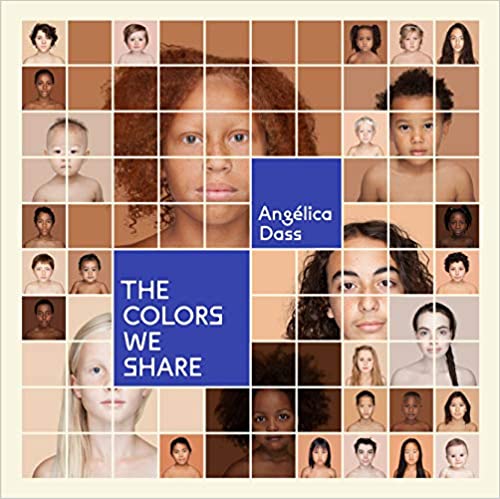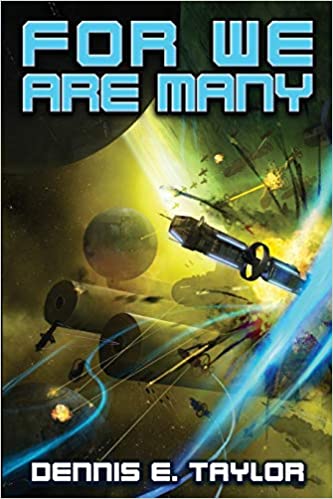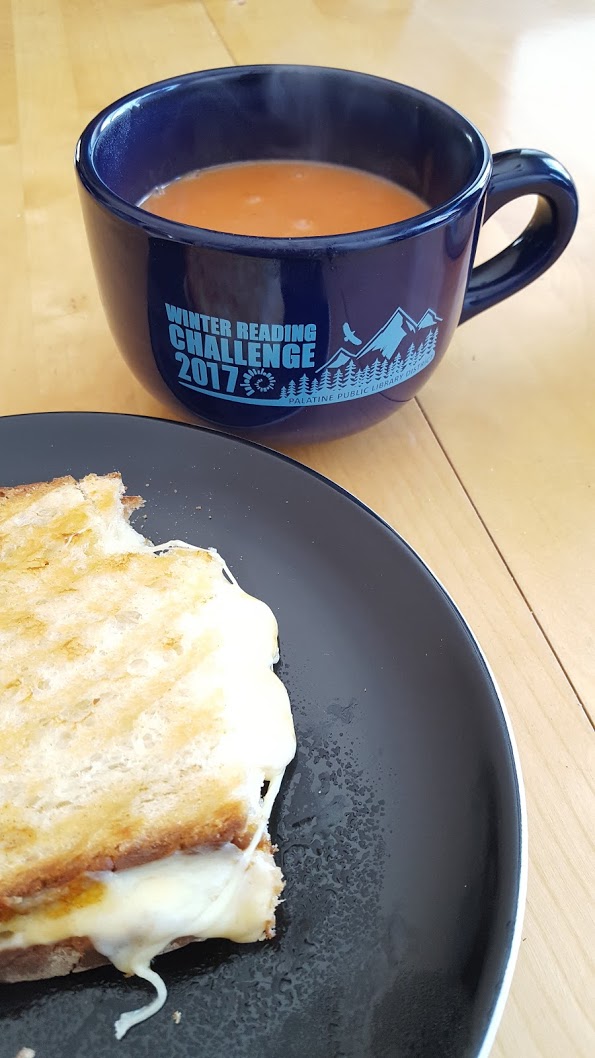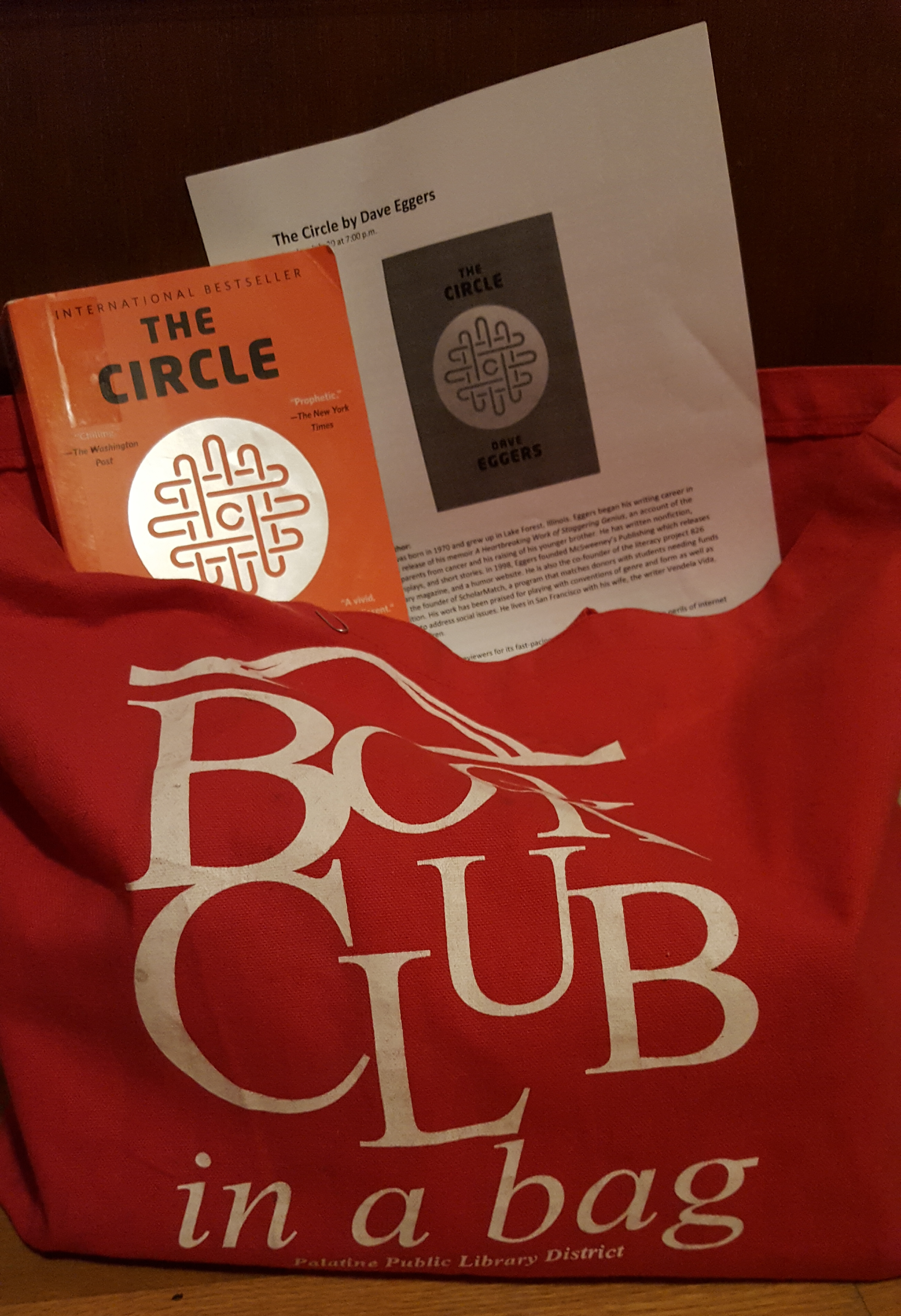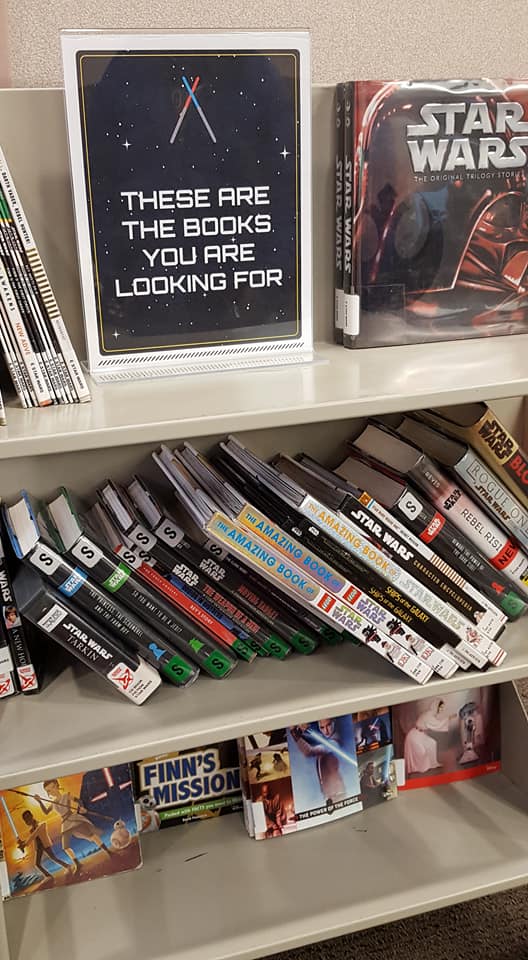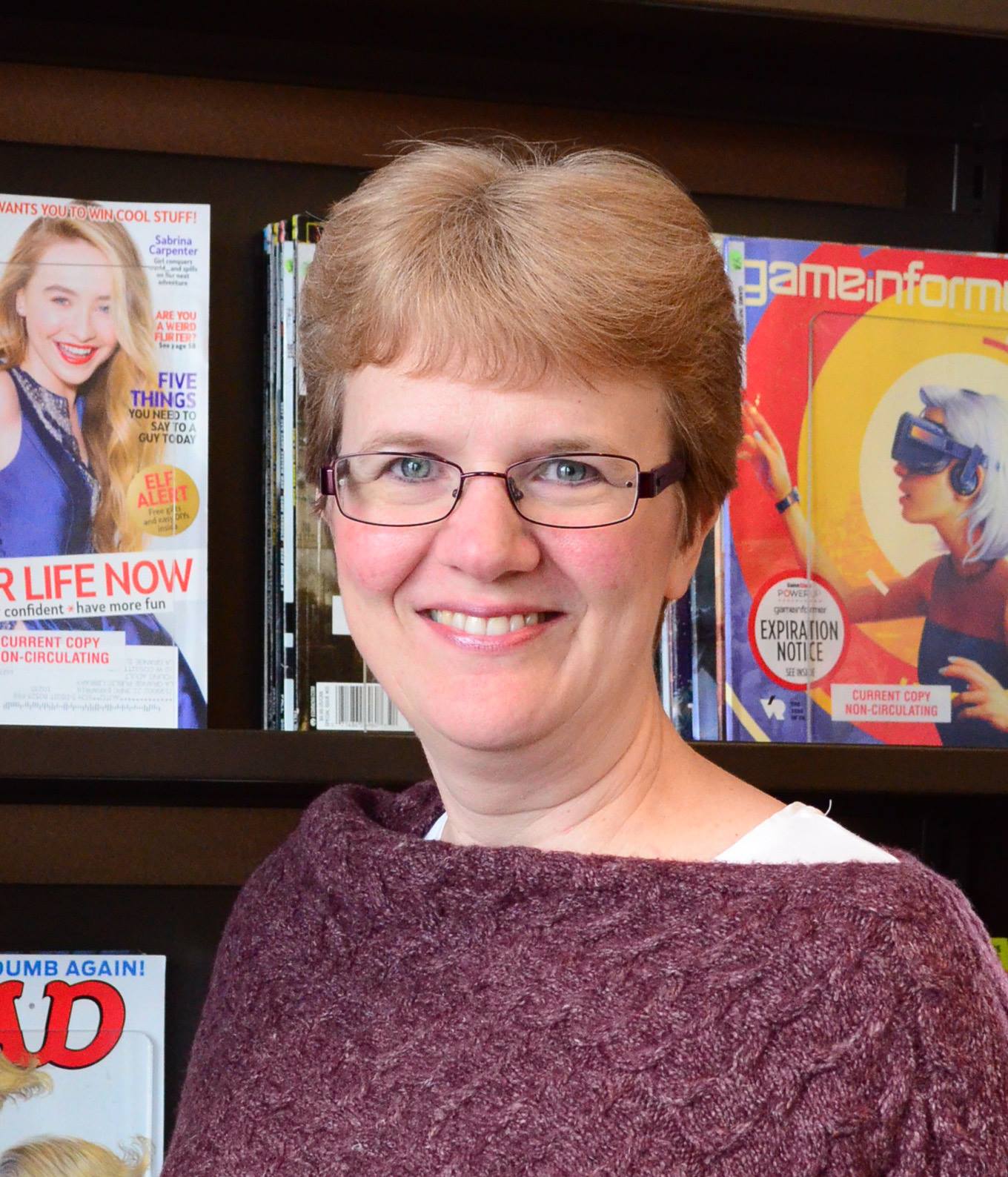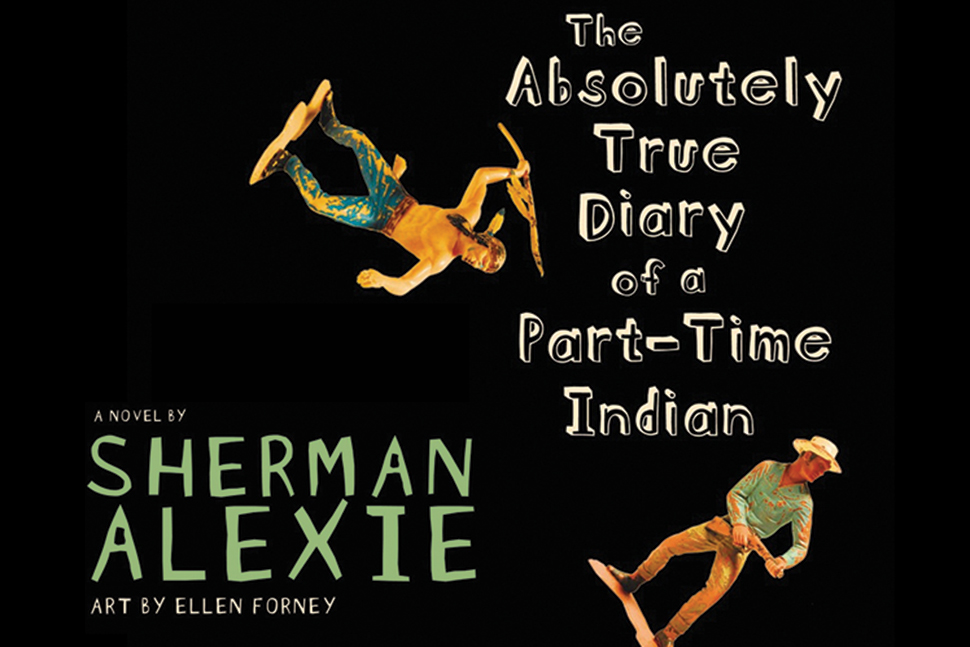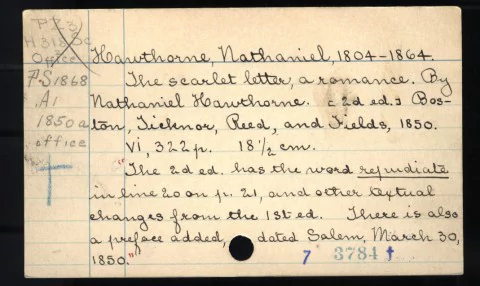A sortable/searchable list of all reviews is available under Index
31 December 2021
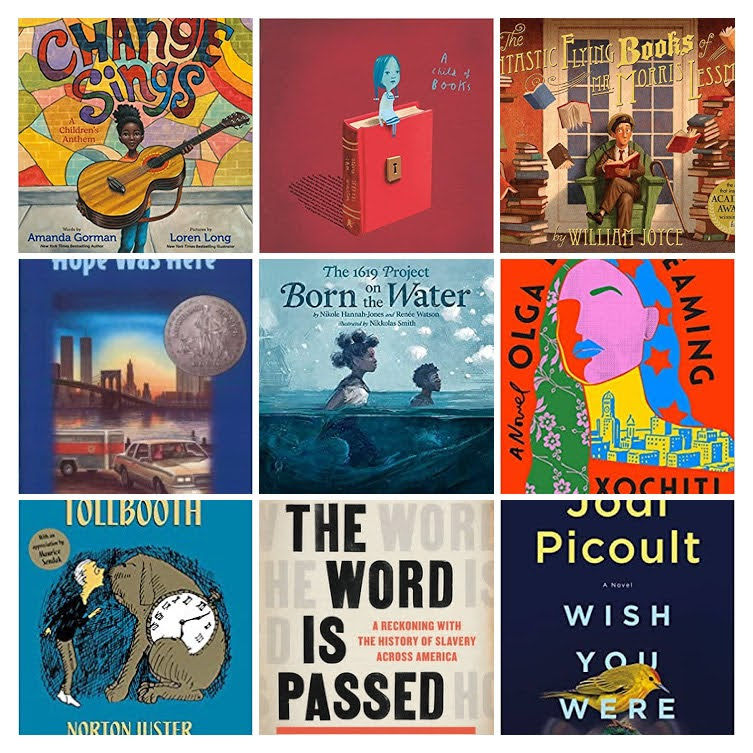
5-star reads
- Change Sings: A Children's Anthem, Amanda Gorman, Loren Long (Illustrator)
- A Child of Books, Oliver Jeffers, Sam Winston (Illustrator)
- The Phantom Tollbooth, Norton Juster (reread; first time reading with Rainn Wilson narration)
- Hope Was Here, Joan Bauer (reread)
- The 1619 Project: Born on the Water, Nikole Hannah-Jones & Renée Watson, Nikkolas Smith (Illustrator)
4-star reads
- How the Word Is Passed: A Reckoning with the History of Slavery Across America, Clint Smith
- Olga Dies Dreaming, Xóchitl González
- Wish You Were Here, Jodi Picoult
- The Fantastic Flying Books of Mr. Morris Lessmore, William Joyce, Joe Bluhm (Illustrator) (4.35)
honorable mention
- Is This Anything? Jerry Seinfeld (3.66)
- A Snake Falls to Earth, Darcie Little Badger (3.5)
- Let It Snow, John Green, Maureen Johnson & Lauren Myracle (3.5)
- Cece Rios and the Desert of Souls, Kaela Rivera (3.66)
- Girl Logic: The Genius and the Absurdity, Iliza Shlesinger (3.66)
31 December 2021
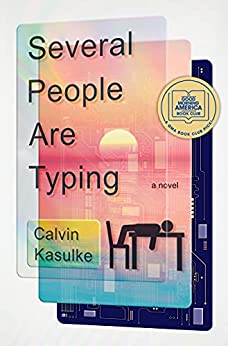
31 December 2021
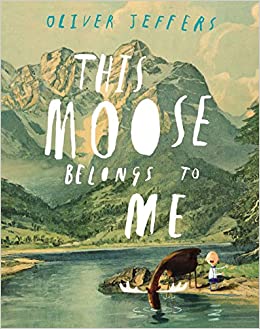
31 December 2021
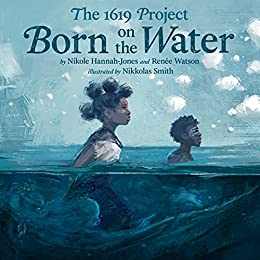
31 December 2021
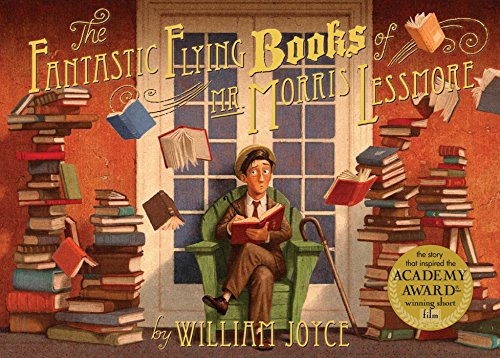
30 December 2021
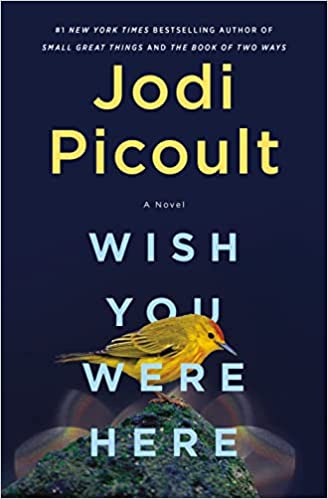
29 December 2021
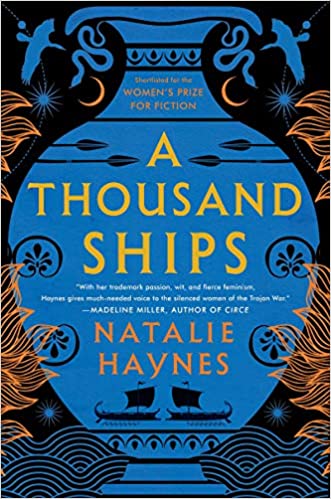
28 December 2021
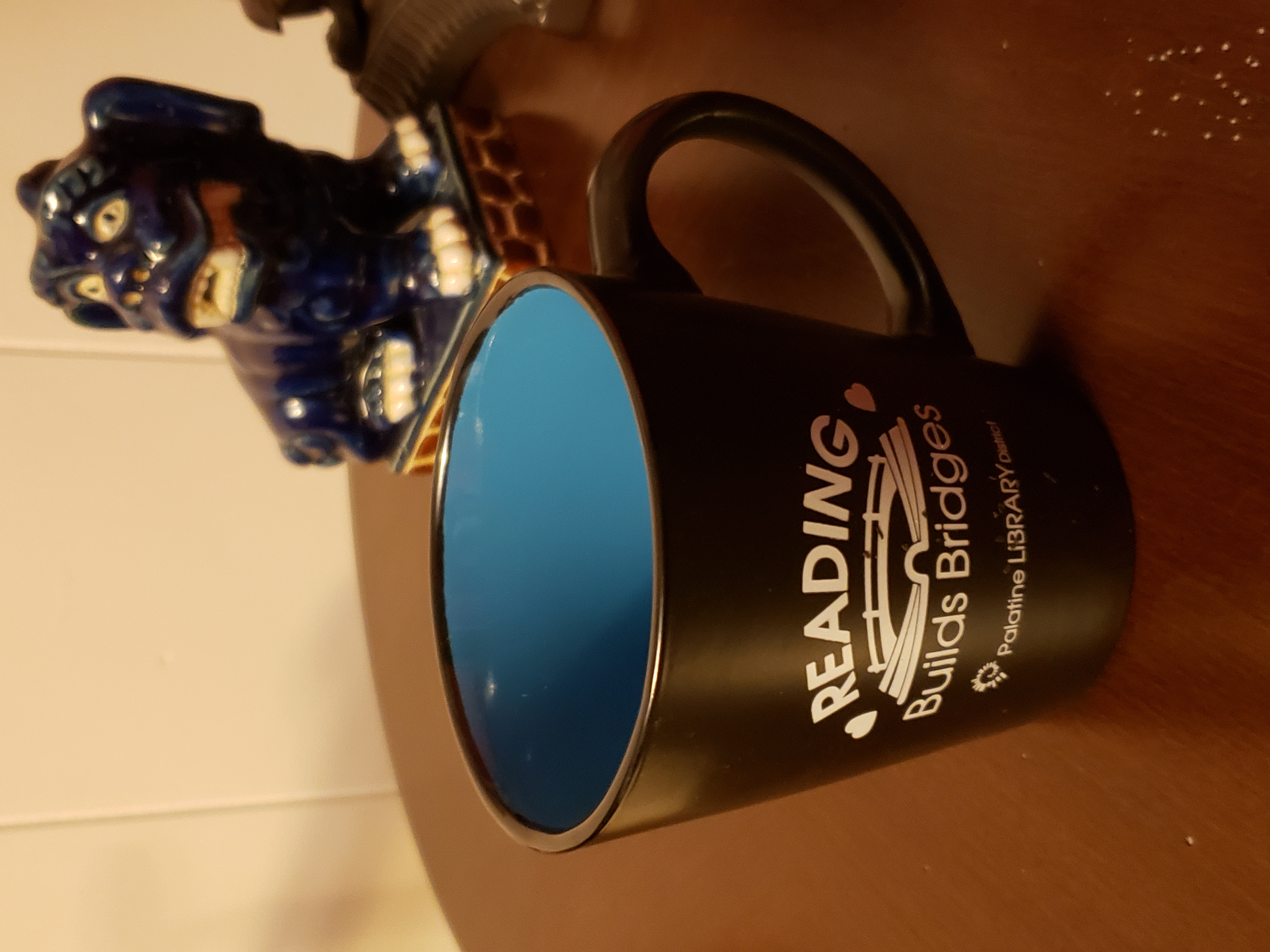
I took a much-needed break from blogging (and other responsibilities, real and self-imposed), but not from reading (of course)! Pictured is this year's adults & teens Winter Reading Program completion prize—a nifty mug. Children from birth through 6th grade get a toy upon completion. Register any time during the program—which runs through Monday, January 31, 2022—if you haven't already.
I haven't quite figured out how or when I'll catch up with posting reviews of books I read during my break. Reviews will likely be posted out of order, but will show up on the website under the date I finished each book. So, until I catch up, look for entries from December 9 to the "present" (which will go on for some weeks, I imagine). I'll post links on social media, individually or as a group, as I’m able.
I hope your winter reading has been fulfilling and fun so far, and that you have/had warm and meaningful family time during the holidays.
27 December 2021
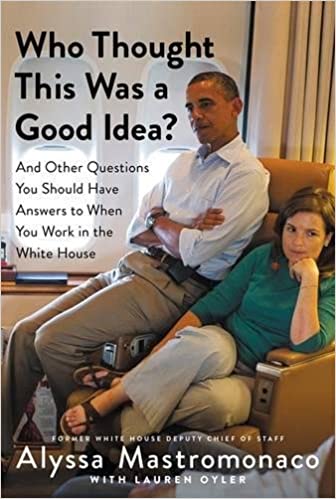
26 December 2021
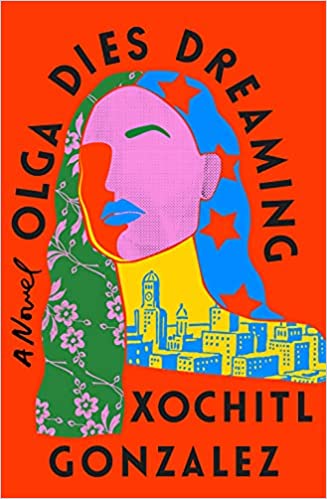
It’s 2017, and Olga and her brother, Pedro “Prieto” Acevedo are bold faced names in their hometown of New York. Prieto is a popular Congressman representing their gentrifying, Latinx neighborhood in Brooklyn while Olga is the tony wedding planner for Manhattan’s powerbrokers.Despite their alluring public lives, behind closed doors things are far less rosy. Sure, Olga can orchestrate the love stories of the 1%, but she can’t seem to find her own . . . until she meets Matteo, who forces her to confront the effects of long held family secrets. . . .
Twenty-seven years ago, their mother Blanca, a Young Lord-turned-radical, abandoned her children to advance a militant political cause, leaving them to be raised by their grandmother. Now, with the winds of hurricane season, Blanca has come barreling back into their lives.
Set against the backdrop of New York City in the months surrounding the most devastating hurricane in Puerto Rico’s history, Xochitl Gonzalez's Olga Dies Dreaming is a story that examines political corruption, familial strife and the very notion of the American Dream—all while asking what it really means to weather a storm. [from the publisher]
This debut novel grabbed me early on and kept me hooked. Olga isn't a warm fuzzy character, which sometimes makes her unlikeable. However, she has some pretty impressive skills, works hard (if not always above-board), and has loving relationships with family and friends. There is a lot of social and political commentary, which I personally enjoy. There are some especially funny scenes involving Olga's love/hate/passive-aggressive relationship with one of her cousins, along with more tender familial relationships with her brother, niece, grandmother, and at least one aunt. Olga and eventual love-interest Matteo are both emotionally fragile and flawed, but end up bringing out the best in each other. I noticed that another early reader felt the handling of an aspect of brother Pedro's story was outdated. I wonder if the anxiety Pedro experienced was appropriate to his cultural experience and age. Gonzalez did a good job of interlocking storylines between characters and over time.
Sensitive issues include mental health, drug addiction, suicide, racism, parental abandonment, and rape. Corporate and political corruption, misogyny, and the US government's mistreatment/mishandling of Puerto Rico also play significant roles.
Thank you, NetGalley and Macmillan Audio, for the audio ARC of the book in exchange for an honest review. Publication is expected January 4.
26 December 2021
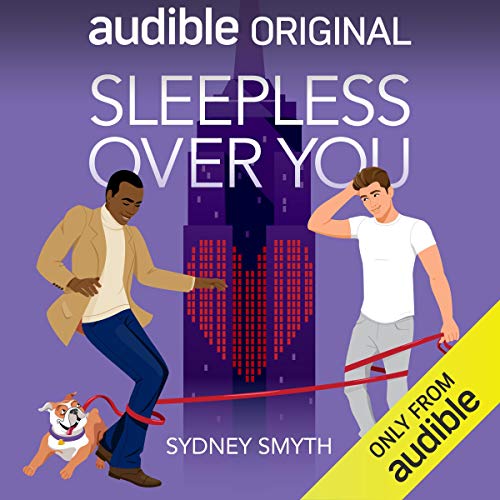
22 December 2021
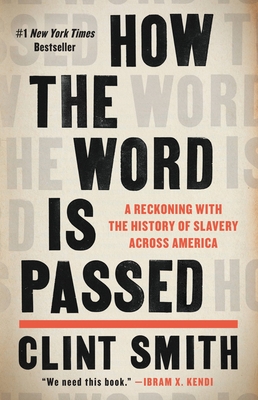
20 December 2021
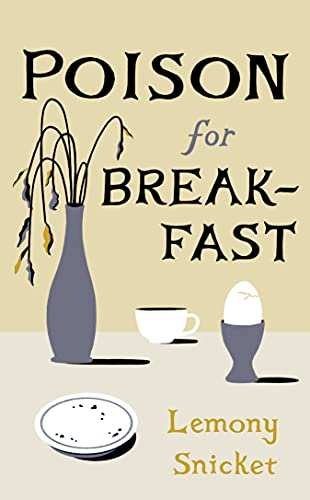
20 December 2021
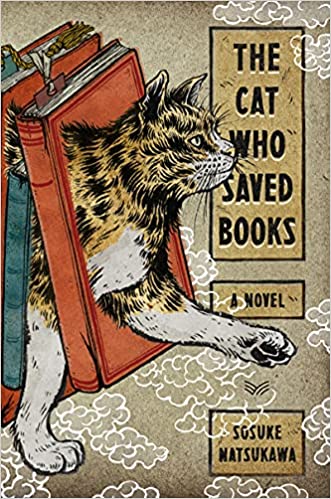
19 December 2021
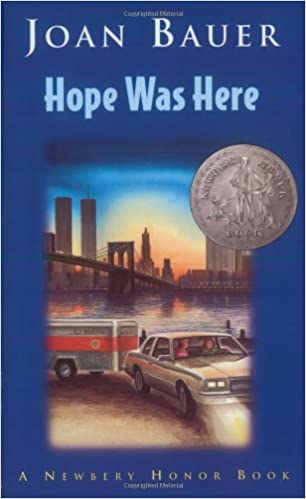
19 December 2021
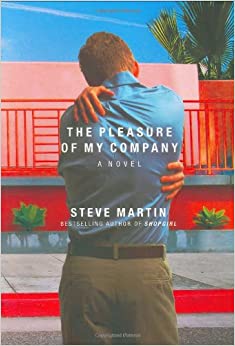
18 December 2021
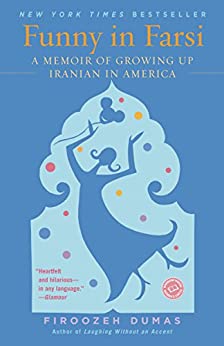
17 December 2021
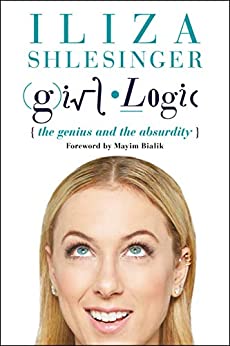
16 December 2021
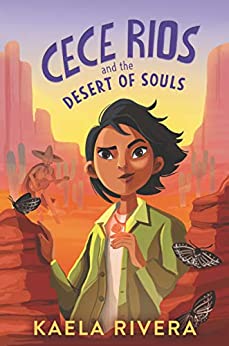
15 December 2021
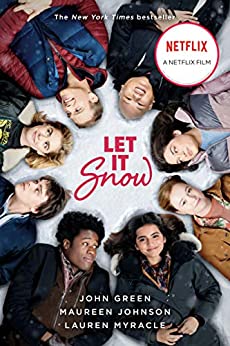
14 December 2021
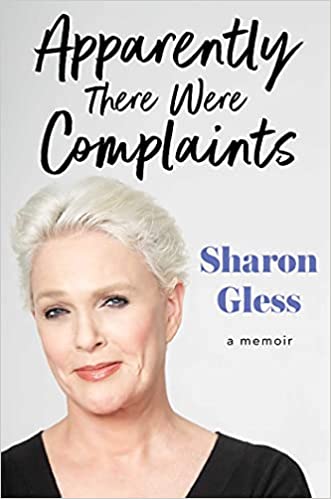
12 December 2021
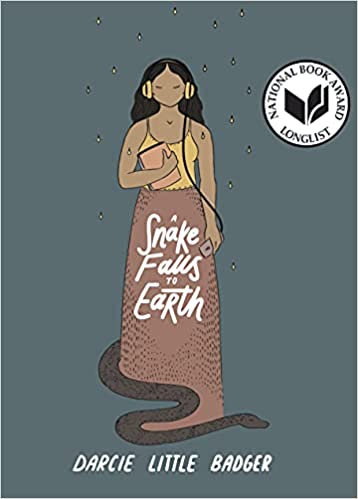
10 December 2021
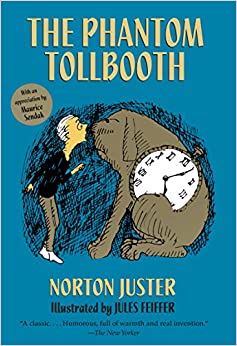
9 December 2021
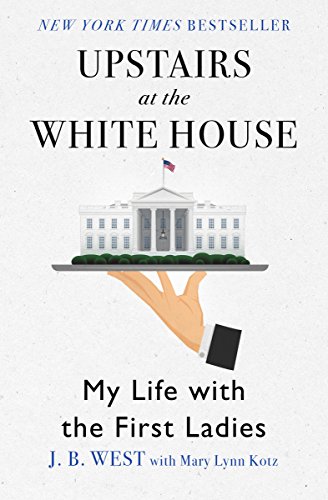
8 December 2021
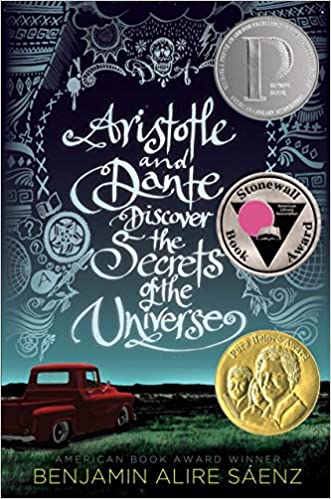
Both high-schoolers live in households with two parents and are of Mexican-American heritage. Aristotle has siblings (one of whom is a brother who is incarcerated).
I didn't like the book as much as I expected. I wasn't wowed—as so many are—by the characters or the writing. I didn't feel like the progression of the relationship was authentically organic. The story drags along until, all of a sudden, a switch goes off at the end and there's a happy-ish ending. Obviously, I'm not the target audience, but I read a fair amount of YA. Like my immediately previous read, I doubt that I'll continue reading the series.
7 December 2021
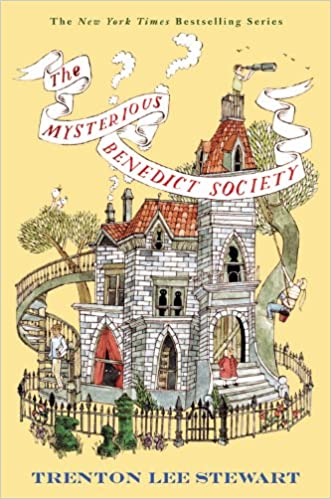
While the set-up of the story was promising, the cleverness of the children wasn't developed sufficiently. The bulk of the story concentrated on the behaviors and actions of various bad guys. There are some positive relationships, and the children are recognized for their unique gifts—they need each other to get the job done.
As middle-grade mysteries go, I greatly prefer Laura Ruby's York series.
5 December 2021
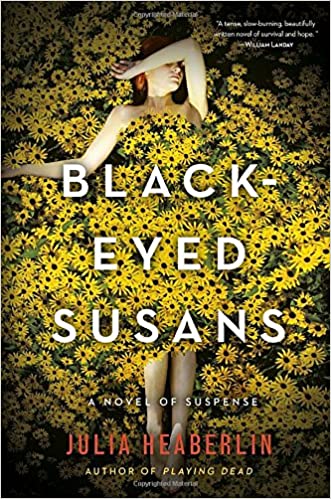
As a sixteen-year-old, Tessa Cartwright was found in a Texas field, barely alive amid a scattering of bones, with only fragments of memory as to how she got there. Ever since, the press has pursued her as the lone surviving “Black-Eyed Susan,” the nickname given to the murder victims because of the yellow carpet of wildflowers that flourished above their shared grave. Tessa’s testimony about those tragic hours put a man on death row.Now, almost two decades later, Tessa is an artist and single mother. In the desolate cold of February, she is shocked to discover a freshly planted patch of black-eyed susans—a summertime bloom—just outside her bedroom window. Terrified at the implications—that she sent the wrong man to prison and the real killer remains at large—Tessa turns to the lawyers working to exonerate the man awaiting execution. But the flowers alone are not proof enough, and the forensic investigation of the still-unidentified bones is progressing too slowly. An innocent life hangs in the balance. The legal team appeals to Tessa to undergo hypnosis to retrieve lost memories—and to share the drawings she produced as part of an experimental therapy shortly after her rescue.
What they don’t know is that Tessa and the scared, fragile girl she was have built a fortress of secrets. As the clock ticks toward the execution, Tessa fears for her sanity, but even more for the safety of her teenaged daughter. Is a serial killer still roaming free, taunting Tessa with a trail of clues? She has no choice but to confront old ghosts and lingering nightmares to finally discover what really happened that night. [from the publisher]
I was on-board with the premise. The story is told primarily from the points of view of past- and present-Tessa. There are multiple supporting characters in both timelines. The overall pace is painfully slow—there isn't much action or advancement. I correctly guessed the killer's identity quite early, but I was surprised by a small twist at the end. Because of this, I gave the book a tiny ratings boost.
4 December 2021
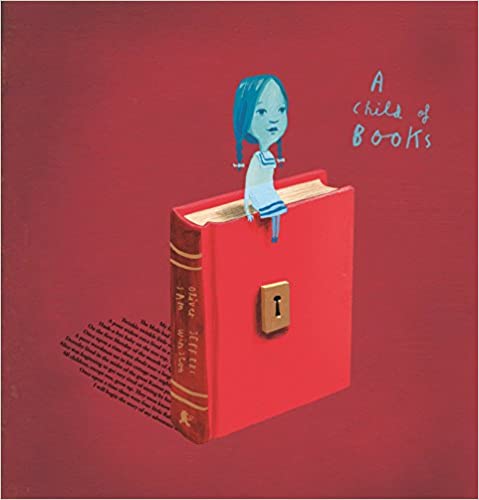
A little girl, a child of books, sails her raft across a sea of words and arrives at the house of a young boy. She invites him to go away with her on an adventure into the world of stories . . . where, with only a little imagination, anything at all can happen.Irresistibly engaging characters by Oliver Jeffers set sail and chart their way through Sam Winston's fascinating typographical landscapes in this extraordinary ode to the power and promise of storytelling. Forty treasured children's classics and lullabies are featured in the pictures, providing endless opportunities for discovery, memories, and sharing. [from the front cover flap]
The title called out to me, which is why I picked it to read the minute I got home from the library today. As I expected, this book spoke to my core. I was a child of books, and their import to me has never diminished.
An online bookish friend of mine said this in her review of the book: “My kids thought it was pretty good, but as an adult who feels created by the books I've read, it was a work of art.” I get it! I hope I'll be able to share this book with littles of my acquaintance or family in the future.
On my Oliver Jeffers quest, I have now read a book written by someone else/illustrated by Jeffers, a book written and illustrated by Jeffers, and a book written by Jeffers/illustrated by someone else. I picked up two more of his books (besides this one) today.
3 December 2021
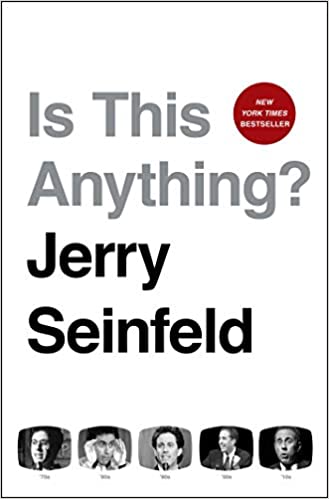
The first book in twenty-five years from Jerry Seinfeld features his best work across five decades in comedy.Since his first performance at the legendary New York nightclub “Catch a Rising Star” as a twenty-one-year-old college student in fall of 1975, Jerry Seinfeld has written his own material and saved everything. “Whenever I came up with a funny bit, whether it happened on a stage, in a conversation, or working it out on my preferred canvas, the big yellow legal pad, I kept it in one of those old school accordion folders,” Seinfeld writes. “So I have everything I thought was worth saving from forty-five years of hacking away at this for all I was worth.”
For this book, Jerry Seinfeld has selected his favorite material, organized decade by decade. In page after hilarious page, one brilliantly crafted observation after another, readers will witness the evolution of one of the great comedians of our time and gain new insights into the thrilling but unforgiving art of writing stand-up comedy. [from the publisher]
The audio edition is narrated by Seinfeld himself, and the book is just as promised by the publisher's description. It was a quick, fun read, especially while knitting to my heart's content at the end of a long week (though, what week doesn't feel long at this point?). I liked his discussion of the trends in comedy writing—talking about comedians having writers vs. writing all their own material. I think this book is a good bet for fans of comedy, whether or not you're a particular fan of Seinfeld's.
2 December 2021
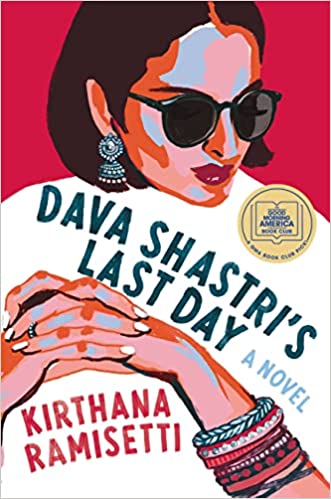
While Dava is portrayed as a generous philanthropist, she is not written particularly positively overall. Too, her children are entitled and not fully competent, independent adults (with the possible exception of one). Because I don't enjoy that kind of character, gossipy celebrity watching, or family drama, much of the book was slow and tedious to me. As Dava really approaches her end, she finally has some substantive conversations with her grandchildren, collectively, and their parents, individually. These conversations result in mending some relationships and calming some hurts.
1 December 2021
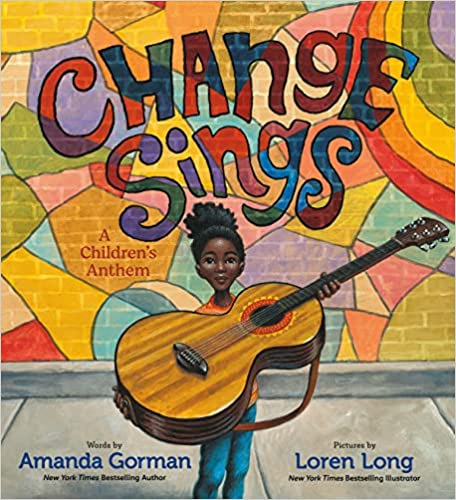
This book gave me chills and made me cry. It's so simple . . . or, at least, it should be.
30 November 2021
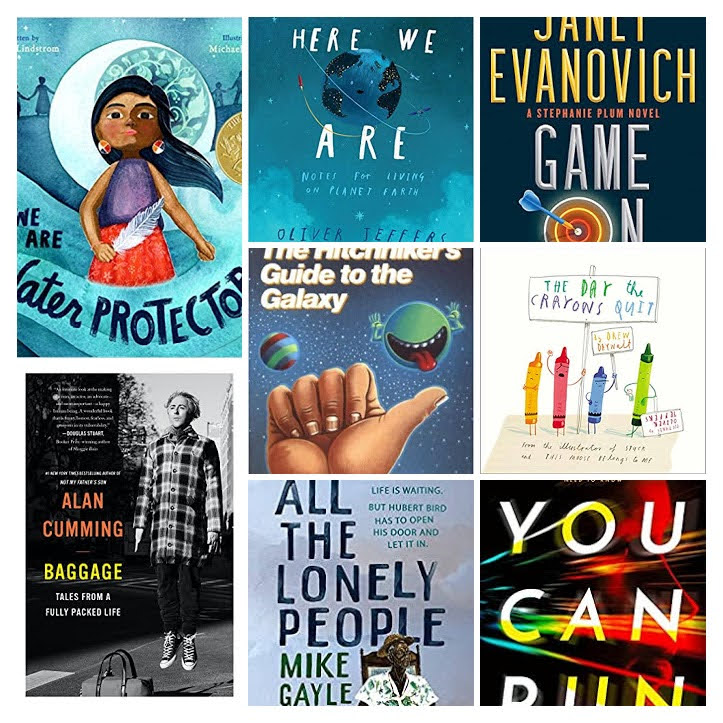
4-star reads
- Baggage: Tales from a Fully Packed Life, Alan Cumming (4.35)
- The Hitchhiker's Guide to the Galaxy, Douglas Adams (4.35)
- All The Lonely People, Mike Gayle (4.35)
- Here We Are: Notes for Living on Planet Earth, Oliver Jeffers (4.35)
- Game On: Tempting Twenty-Eight, Janet Evanovich
- You Can Run, Karen Cleveland
- The Day the Crayons Quit, Drew Daywalt & Oliver Jeffers (Illustrator)
- We Are Water Protectors, Carole Lindstrom & Michaela Goade (Illustrator)
honorable mention
- All Her Little Secrets, Wanda M. Morris (3.66)
- Malibu Rising, Taylor Jenkins Reid (3.66)
- The Book of Delights, Ross Gay (3.66)
- Taste: My Life through Food, Stanley Tucci (3.66)
- The Bone Cay, Eliza Nellums (3.66)
- An Ambush of Widows, Jeff Abbott (3.66)
- The Happy Ever After Playlist (The Friend Zone #2), Abby Jimenez (3.5)
- These Silent Woods, Kimi Cunningham Grant (3.5)
- Renegades: Born In the USA, Barack Obama & Bruce Springsteen (3.5)
30 November 2021
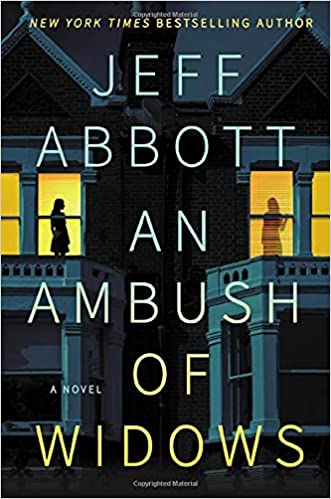
Henry North is a down-on-his-luck cybersecurity expert from New Orleans. Adam Zhang is the cofounder of one of Austin’s most successful venture capitalist firms. These two men didn’t know each other. They had never met. Yet they died together, violently, in a place neither had any business being.When Henry doesn’t return from a business trip, his wife, Kirsten, panics—and then gets an anonymous phone call: “Your husband is dead in Austin.”
Flora Zhang knew her husband was keeping secrets. She suspected an affair, but she had decided she could forgive him for his weakness—until her husband ended up dead. And with no explanation for her husband’s murder, the police begin to suspect her.
Together, these two widows will face a powerful foe determined to write a false narrative about the murders. In doing so, neither Flora nor Kirsten will remain the women the world thought they were. [from the publisher]
An “ambush” is the collective noun for a group of widows (the same goes for tigers); and, of course, there's a reason for this choice of title, as well as a discussion of other interesting collective nouns.
My interest in the story ebbed and flowed. Sometimes it felt either just too far-fetched or slow and dull. Other times, I enjoyed the characters' interchanges or the twists in/connectedness of the story. There's a large cast of supporting characters, including Adam's business partner and his wife (a close friend of Flora's); the Zhangs' neighbors; Kirsten's foster brother, who was also a friend of Henry's (who lived next door to Kirsten's foster family when they were in high school); Kirsten's foster parents; a female detective in Austin; a homeless man; a hit man and his family; and Adam's live-in cousin/protégé.
I was surprised by Kirsten's quickly expressed—and persisting—need for/talk of revenge. It didn't seem like a normal reaction. That is, I would expect someone in her position to want some sort of justice served, but not for her to want to institute revenge personally.
I was amused by this statement:
“I don't trust someone who reads so much. I like people who live in the real world.” —Mr. Fortunato to Kirsten, about Larry [Chapter 38]
The very end of the book creates the opportunity for a sequel, also with a revenge story.
29 November 2021
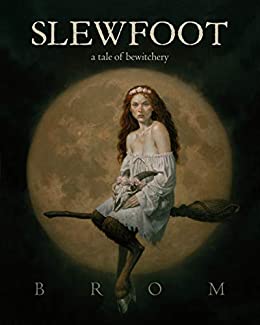
A spirited young Englishwoman, Abitha, arrives at a Puritan colony betrothed to a stranger – only to become quickly widowed when her husband dies under mysterious circumstances. All alone in this pious and patriarchal society, Abitha fights for what little freedom she can grasp onto, while trying to stay true to herself and her past.Enter Slewfoot, a powerful spirit of antiquity newly woken… and trying to find his own role in the world. Healer or destroyer? Protector or predator? But as the shadows walk and villagers start dying, a new rumor is whispered: Witch.
Both Abitha and Slewfoot must swiftly decide who they are, and what they must do to survive in a world intent on hanging any who meddle in the dark arts. [from the publisher]
I had high hopes for Slewfoot—from the start, I indeed found Abitha to be spirited in her determination and efforts to help her husband fend off his evil brother's attempts to essentially steal their farm to pay off his own debts, thus subjecting them to poverty and servitude. After her husband's death, the stakes were even higher, as a woman alone had no standing. Even the beginning of Abitha's association with Slewfoot was interesting, with them navigating what each needed or wanted and how they might choose to help each other. Unfortunately, between the evil brother-in-law's treachery and the interference from other supernatural beings around Slewfoot, it devolved into a gratuitously hyperviolent mess. I was no longer interested by the story, let alone inclined to root for Abitha.
28 November 2021
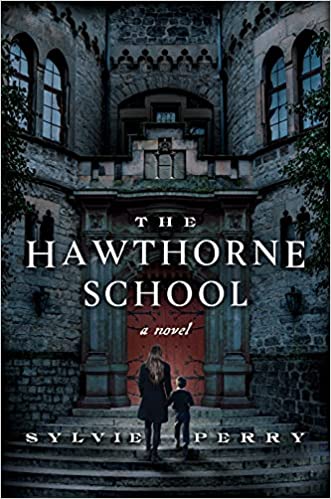
Claudia Morgan is overwhelmed. She's a single parent trying the best that she can, but her four-year-old son, Henry, is a handful—for her and for his preschool. When Claudia hears about a school with an atypical teaching style near her Chicagoland home, she has to visit. The Hawthorne School is beautiful and has everything she dreams of for Henry: time to play outside, music, and art. The head of the school, Zelma, will even let Claudia volunteer to cover the cost of tuition.The school is good for Henry: his “behavioral problems” disappear, and he comes home subdued instead of rageful. But there's something a bit off about the school, its cold halls, and its enigmatic headmistress. When Henry brings home stories of ceremonies in the woods and odd rules, Claudia's instincts tell her that something isn't quite right, and she begins to realize she's caught in a web of manipulations and power.
This exploration of what a mother will do for her child is guided by the author's work with narcissistic manipulation and addictive power dynamics in her role as a psychotherapist. [from the publisher]
The book is classified under mystery and thrillers. Mystery? Not at all. The reader knows all along what's going on. Thriller? Maybe, but not really. There's no real tension around whether the bad guy will get caught or whether the day will be saved. Throughout the story, so very little happens . . . there is little advancement. It is creepy (in an icky—not scary—way).
I disliked virtually all of the characters. Worst of all, contrary to the publisher's description of Claudia's “instincts,” she seems downright clueless and ineffectual.
Thank you, NetGalley and Dreamscape Media, for the audio ARC of the book in exchange for an honest review. Publication is expected December 7.
27 November 2021
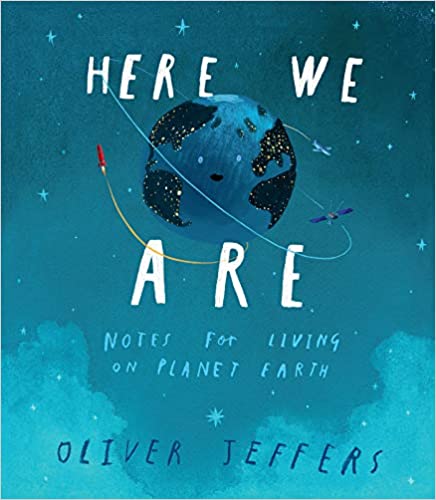
Here We Are is both written and illustrated by Jeffers. It was written for his infant son about some things he needs to know about living on Earth. Again, the illustrations—this time in a more developed style—are colorful and fun. As far as the words are concerned, the overall message is about where we live, how diverse nature and animal life is, and the fact that we're never alone.
I thought this tidbit was cute.
You are a person. You have a body.Look after it, as most bits don't grow back.
There is a two-page spread showing many shapes, sizes, and colors of people, followed by another two-page spread for an array of animals.
Jeffers tells his son the staggering number of us who live here on Earth, with an admonition to “. . . be kind. There is enough for everyone.”
I wish I had discovered Jeffers sooner. Now that I have, I'm enjoying the simple pleasures of his children's picture books during the hustle of the holiday season.
26 November 2021
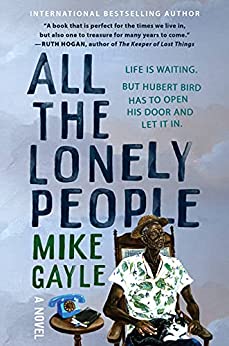
In weekly phone calls to his daughter in Australia, widower Hubert Bird paints a picture of the perfect retirement, packed with fun, friendship and fulfilment.But Hubert Bird is lying.
Now Hubert faces a seemingly impossible task: to make his real life resemble his fake life before the truth comes out.
Along the way Hubert stumbles across a second chance at love, renews a cherished friendship and finds himself roped into an audacious community scheme that seeks to end loneliness once and for all. . . . [from the publisher]
As a young man, Hubert moves from Jamaica to England, where he meets his future wife, a white native of England. Joyce and Hubert experience horrible racist disapproval of their relationship, causing challenges to employment, housing, child care, familial relationships, and friendships. Quite a bit of the back story is delivered to us via Hubert's memories. In the present, Joyce is dead, their daughter is a professor at an Australian university, and their son is estranged.
For me, All The Lonely People was reminiscent of Fredrik Backman's A Man Called Ove, which I read just over 10 years ago. [Where does the time go?!] Hubert isn't curmudgeonly like Ove—he's actually quite sweet and positive (at least in his reminiscences). Where they are similar is that they are widowed elderly men whose lives are positively impacted by new neighbors who are young mothers.
There are several well-realized supporting characters in this story, each with their own personality and relationship with Hubert. The result is a charming story.
It's unusual for me to get misty over books. Perhaps it's because I read a lot of nonfiction, mysteries, and thrillers—books that evoke different emotions. At various stages, this story had me verklempt (overcome with emotion)—sometimes happy; sometimes sad.
25 November 2021
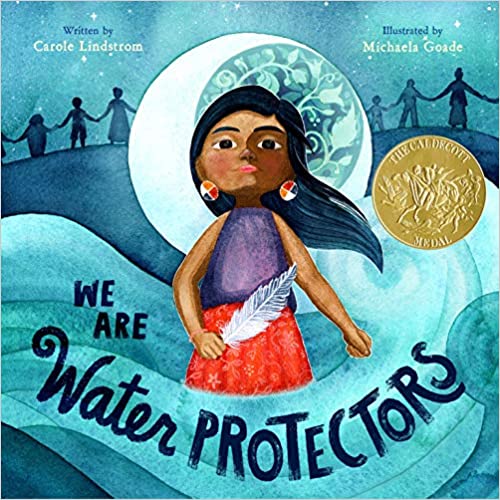
When a black snake threatens to destroy the Earth and poison her people's water, one young water protector takes a stand to defend Earth's most sacred resource.Inspired by the many Indigenous-led movements across North America, this bold and lyrical picture book issues an urgent rallying cry to safeguard the Earth's water from harm and corruption. [from front cover flap]
This beautifully illustrated children's picture book has an environmental justice message coming from Native American culture and tradition. It is recommend for ages three to six years, but I think it could be enjoyed by thoughtful people of all ages.
24 November 2021
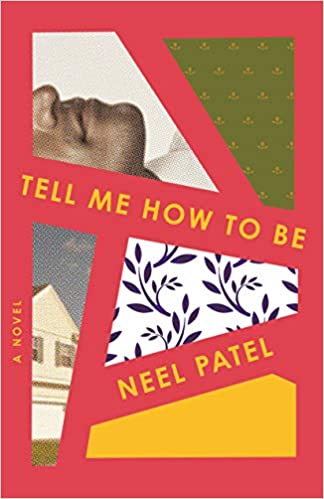
Renu Amin always seemed perfect: doting husband, beautiful house, healthy sons. But as the one-year anniversary of her husband’s death approaches, Renu is binge-watching soap operas and simmering with old resentments. She can’t stop wondering if, thirty-five years ago, she chose the wrong life. In Los Angeles, her son, Akash, has everything he ever wanted, but as he tries to kickstart his songwriting career and commit to his boyfriend, he is haunted by the painful memories he fled a decade ago. When his mother tells him she is selling the family home, Akash returns to Illinois, hoping to finally say goodbye and move on.Together, Renu and Akash pack up the house, retreating further into the secrets that stand between them. Renu sends an innocent Facebook message to the man she almost married, sparking an emotional affair that calls into question everything she thought she knew about herself. Akash slips back into bad habits as he confronts his darkest secrets—including what really happened between him and the first boy who broke his heart. When their pasts catch up to them, Renu and Akash must decide between the lives they left behind and the ones they’ve since created, between making each other happy and setting themselves free. [from the publisher]
If you're in the mood for a dark and emotional story, this may be for you. It felt longer than 336 pages to me, with essentially no comic relief, a bunch of unhappy—and fairly unpleasant—characters, and family drama to the hilt.
While the book was overwhelmingly dark and brooding, there were small moments of humor. Most of these had to do with Renu's negative attitudes toward American women (not entirely without merit; I was especially amused by her commentary on use of hot peppers). There was also a moment of mirth (and only this one moment in the whole book—they argue and physically fight throughout) between Akash and his older brother in which they make fun of the (in this case) Indian “uncles'” head wobble (if you've seen it, you understand).
Thank you, NetGalley, Macmillan Audio, and Flatiron Books, for the audio ARC of the book in exchange for an honest review. Publication is expected December 7.
23 November 2021
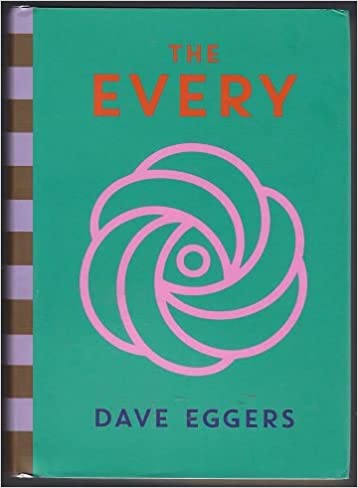
When the world’s largest search engine/social media company, the Circle, merges with the planet’s dominant e-commerce site, it creates the richest and most dangerous—and, oddly enough, most beloved—monopoly ever known: the Every.Delaney Wells is an unlikely new hire. A former forest ranger and unwavering tech skeptic, she charms her way into an entry-level job with one goal in mind: to take down the company from within. With her compatriot, the not-at-all-ambitious Wes Makazian, they look for the company’s weaknesses, hoping to free humanity from all-encompassing surveillance and the emoji-driven infantilization of the species. But does anyone want what Delaney is fighting to save? Does humanity truly want to be free? [from the publisher]
When The Circle first came out, I couldn't stop talking about it. [If you were the object of my enthusiastic recommendations of it in the early post-publication months, I apologize.] When I reread it just over four years later, I downgraded my rating a full star. It was even more disturbing to me in the second reading. I also noticed how repetitive the writing was.
The Every is more of the same—disturbing, but also obvious and repetitive. This time, beyond attacking the ills of social media behemoths (completely valid), the e-commerce behemoth becomes the focus (also completely valid). [Yes, of course, Eggers is talking about Amazon.] Delaney wants to destroy The Every because it cost her parents their independent store (and swallowed them up to work for The Every).
Five of the six bookmarks I placed came in the final 10% of the book. In Chapter XLI (90%), Mae (from the first book) completely gives away what happens in Chapter XLIV (99%). My comment for the first tag was “OMG! Seriously, Mae?”; for the second, “where Mae does what I knew she'd do back at OMG note.”
Dion Graham has become one of my favorite narrators. The exception in this book is a shockingly monotonous overemphasis of “she said” and the like. The greatest blame lies with the author, of course, for his overuse/lack of imagination. I would hope, though, that the narrator could deemphasize the excess during the delivery.
If you absolutely loved The Circle, you'll probably want to read The Every to see what happens next. If you need a break from the sorry state of our affairs, you might want to skip this.
22 November 2021
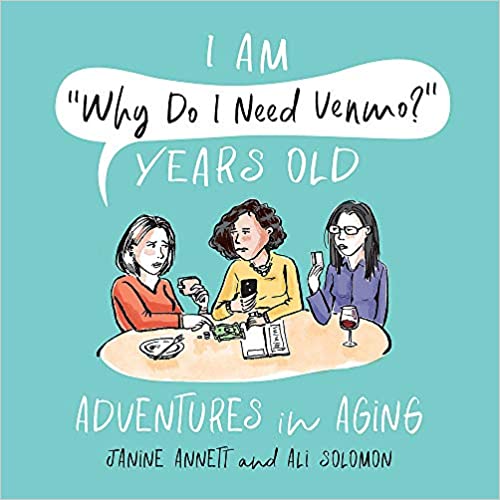
21 November 2021
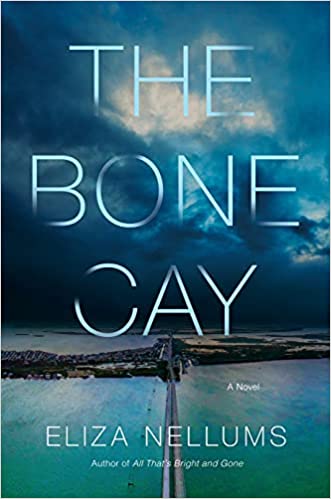
Magda Trudell is the present-day caretaker of Whimbrel Estate, the Key West home of the famous poet Isobel Reyes. Isobel's suicide at the residence in 1918 has nearly overshadowed her creative legacy, but Magda, a botanist and avid historian, is determined to protect it. Over the past decade, Magda has lovingly restored the house to the exact condition Isobel would have known. And even though a fierce October hurricane is headed straight for the Keys, she isn't about to abandon her life's work to evacuate.As the mighty storm makes landfall, the dangers mount. First, a fire and flood threaten to destroy the house. Then the storm claims most of Magda's supplies. When part of the house collapses, she unearths an old steamer trunk in the rubble that contains a woman's remains. Is there more to Isobel's story than Magda knows?
The unexpected appearance of a teenage girl and her father seeking shelter from the storm poses unnerving new questions: Are they really who they seem? And could they have a connection to the house's shadowy past? As the storm rages, Magda desperately tries to solve the real mystery of Isobel's death—and keep the living in one piece. [from the publisher]
Pro: the narrator; I felt like I was on the house tour at the beginning of the book; Magda's determination/persistence; Magda's relationship with the teen girl during the storm
Con: not much really happens/limited action (it is a short book, so I guess it's understandable); the paranormal aspect seems sort of tossed in, but MILD SPOILER ALERT—click to reveal
maybe it works because it could be explained as effects of her physical condition during the storm
I liked the writing well enough that I've added the author's previous book to my TBR list. I appreciate that—I have a hard time keeping my pipeline full.
Thank you, NetGalley and Dreamscape Media, for the audio ARC of the book in exchange for an honest review. Publication is expected December 7.
20 November 2021
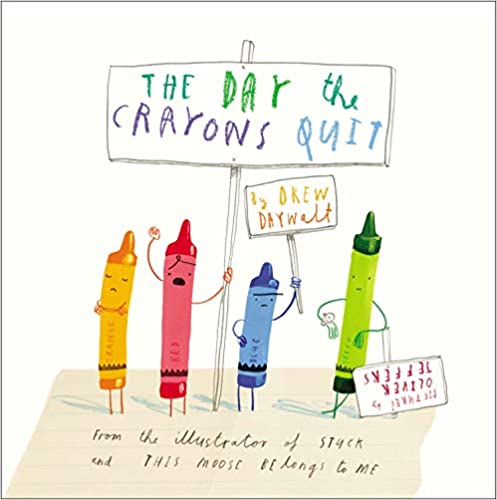
The premise is that Duncan's crayons are full of complaints—they get used too much and need a break; they get used too little and want more work; they argue over which of them is best suited for a particular use; and so on—which they deliver to Duncan in the form of letters. My favorite letter is from Purple. Which is yours?
20 November 2021

As interesting as their conversations are, the photos from their private archives are the best.
I binged the entire book in one sitting, in lieu of the better part of a weekend day's chores. Knowing that the book is in demand, it was worth it. But, I wish I had spread it out over my loan period instead of waiting until the last minute. Maybe you'll be more disciplined in that regard.
19 November 2021
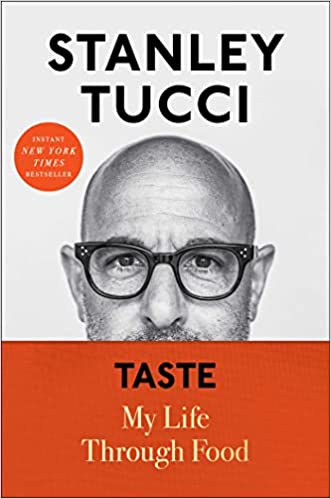
Before Stanley Tucci became a household name with The Devil Wears Prada, The Hunger Games, and the perfect Negroni, he grew up in an Italian American family that spent every night around the table. He shared the magic of those meals with us in The Tucci Cookbook and The Tucci Table, and now he takes us beyond the recipes and into the stories behind them.Taste is a reflection on the intersection of food and life, filled with anecdotes about growing up in Westchester, New York, preparing for and filming the foodie films Big Night and Julie & Julia, falling in love over dinner, and teaming up with his wife to create conversation-starting meals for their children. Each morsel of this gastronomic journey through good times and bad, five-star meals and burnt dishes, is as heartfelt and delicious as the last. [from the publisher]
Counter to the publisher's description, there are several recipes included in Taste. The focus, however, is on Tucci's memories and experiences and how food factored in to them. Just as I've appreciated the acting roles I've seen Tucci play, I found his narration and story charming. I learned, among other things, that his second wife, Felicity, is fellow actor Emily Blunt's older sister.
I found this passage especially entertaining. [That's an understatement—it made me laugh out loud!]
I know what you're thinking: "My God, what a fascinating conundrum of a man is that Stanley Tucci." Whereas my wife was thinking: "My God, how many neuroses can one man have? I wonder if there's an app that can help him." [Chapter 18]
18 November 2021
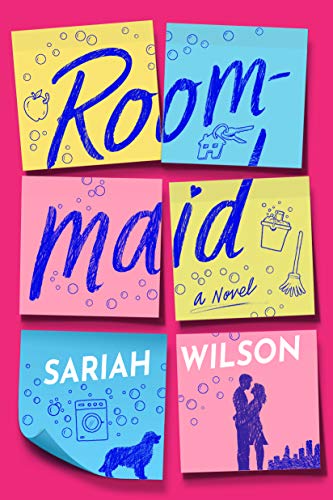
I found the premise—and a bunch of silly events early in her side hustle—ridiculous (of course) and annoying. However, unlike most "chick lit," Madison (formerly spoiled rich girl) and Tyler (successful rich guy) form a friendship first and come to care for each other in a pretty organic fashion. [I don't care for "chick lit" as a name for a genre—why not just call it "fiction"? However, I think this is a better classification than "romance," which seems nowadays to be assigned to any book that includes a romantic relationship. I think that's nothing short of obnoxious.] This book also doesn't employ the hate-to-love trope, thank goodness! Madison has a couple of ride-or-die girlfriends, who are also teachers. Madison's family members are stereotypical snobs, narcissists, and spoiled princesses.
17 November 2021
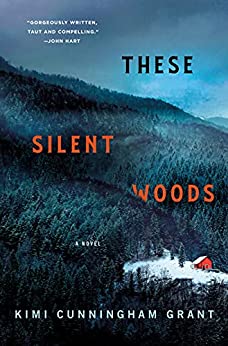
No electricity, no family, no connection to the outside world. For eight years, Cooper and his young daughter, Finch, have lived in isolation in a remote cabin in the northern Appalachian woods. And that's exactly the way Cooper wants it, because he's got a lot to hide. Finch has been raised on the books filling the cabin’s shelves and the beautiful but brutal code of life in the wilderness. But she’s starting to push back against the sheltered life Cooper has created for her—and he’s still haunted by the painful truth of what it took to get them there.The only people who know they exist are a mysterious local hermit named Scotland, and Cooper's old friend, Jake, who visits each winter to bring them food and supplies. But this year, Jake doesn't show up, setting off an irreversible chain of events that reveals just how precarious their situation really is. Suddenly, the boundaries of their safe haven have blurred—and when a stranger wanders into their woods, Finch’s growing obsession with her could put them all in danger. After a shocking disappearance threatens to upend the only life Finch has ever known, Cooper is forced to decide whether to keep hiding—or finally face the sins of his past. [from the publisher]
I didn't feel like the book quite lived up to the hype of the publisher description. Nonetheless, this was a slightly more interesting than average read. I think the underlying issue that caused what Cooper has to hide was done a disservice.
Pro: Cooper & Finch's relationship (for the most part); Scotland's grand gesture; Jake and his substitute (when he doesn't show up for his annual visit)
Con: handling of Cooper's condition; Scotland (for most of the book)
This statement is true, in my experience:
That's the nice thing about books. You can experience all different people and all sorts of places through them, all in the safety and comfort of your own home. —Cooper to Finch [Chapter 11]
16 November 2021
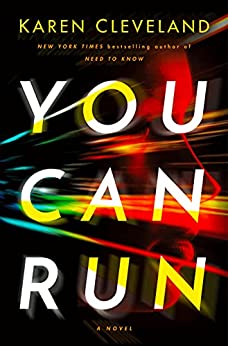
As one of my colleagues noted this week, I've been having a hard time finding truly satisfying mysteries lately. When I finished this one (actually just hours after our conversation), I texted to let her know that I had a winner. While I was mildly annoyed at several points during the book, the very end redeemed it for me. I'd love to have someone to talk to about this. You know where to find me when you've finished.
15 November 2021
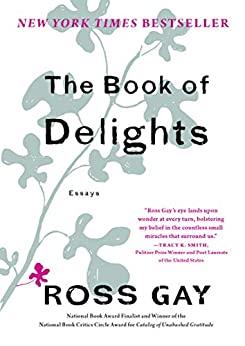
A few passages especially stuck with me. The first is not delightful, but is important.
. . . innocence is an impossible state for black people in America who are, by virtue of this country's fundamental beliefs, always presumed guilty. [Chapter 8]
This interchange cracked me up.
Real conversation I had with my father at age seven or so: "What happens when you die, Dad?" "The worms eat you. Now go play." [Chapter 31]
This seems like a good philosophy.
"The more stuff you love the happier you will be." —an acquaintance of the author's speaking to his own daughter [Chapter 97]
I devoured the book in a day. Others have suggested reading one a day for maximum enjoyment. I think it works either way.
14 November 2021
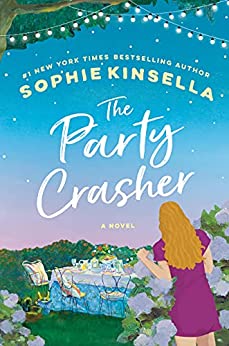
Sophie Kinsella's Confessions of a Shopaholic was published in 2001, but I didn't read it until 2004 (still, almost 20 years ago—proving, I suppose, that time flies when you're having fun . . . reading). I must have liked it, because I read Can You Keep a Secret? (published in 2003) three books/less than a week later. The Party Crasher is probably my tenth Kinsella book. As I remember it, none of them were bad reads; but, few, if any, were extraordinary reads. If I'm in the mood for something fluffy, Kinsella is a good enough bet.
13 November 2021
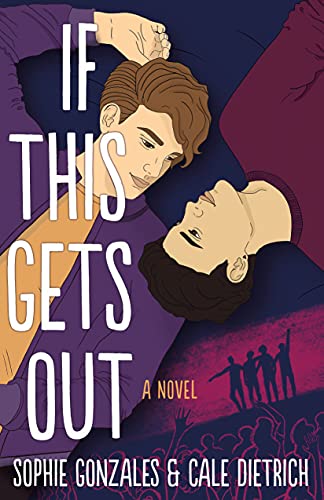
Eighteen-year-olds Ruben Montez and Zach Knight are two members of the boy-band Saturday, one of the biggest acts in America. Along with their bandmates, Angel Phan and Jon Braxton, the four are teen heartbreakers in front of the cameras and best friends backstage. But privately, cracks are starting to form: their once-easy rapport is straining under the pressures of fame, and Ruben confides in Zach that he’s feeling smothered by management’s pressure to stay in the closet.On a whirlwind tour through Europe, with both an unrelenting schedule and minimal supervision, Ruben and Zach come to rely on each other more and more, and their already close friendship evolves into a romance. But when they decide they’re ready to tell their fans and live freely, Zach and Ruben start to truly realize that they will never have the support of their management. How can they hold tight to each other when the whole world seems to want to come between them? [from the publisher]
I'm wildly outside of the target audience for this story, both in terms of age and interests (that is, I was never a boy-band fangirl). Even so, the story was entertaining, if a little long and repetitive.
As one can probably guess from the summary, many heavy issues are covered, including sexuality in relation to social norms and religion (Catholicism, in this case), as well as drug and alcohol abuse. The demands of the management company, lack of privacy, and Zach's personal journey of coming to terms with his sexuality are covered in-depth.
I'd recommend this book for boy-band fans and readers of YA and/or LGBTQIA representation (gay and bi in this book).
Thank you, NetGalley, Macmillan Audio, and Wednesday Books, for the audio ARC of the book in exchange for an honest review. Publication is expected December 7.
12 November 2021
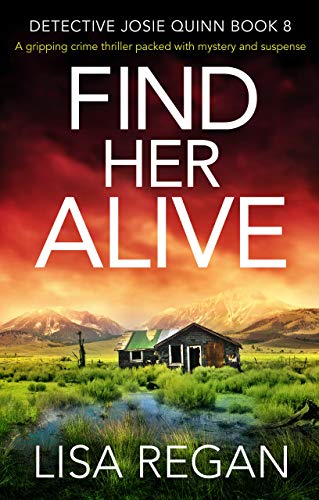
Detective Josie Quinn hasn’t heard from her sister since Trinity stormed out of the house in the heat of an argument three weeks ago. So, when human remains are found at the remote hunting cabin where Trinity was last seen, Josie can only assume the worst. [from the publisher]
This is the eighth in a series; the first I've read. Maybe starting from the beginning would have been helpful, at least in terms of building some brand loyalty. But, the author does a pretty good job of letting us newbies know the background of the major characters. A particularly important piece of background in this installment is that Josie and Trinity are twins. Josie was kidnapped as a baby, and was reunited with her birth family only in her thirties. Beyond Trinity, the birth parents and younger brother appear in this book. Also, Josie's adopted grandmother, who played a role in her upbringing, appears. She's fantastic.
The story is told in chapters voiced by Josie and the serial killer, who creates sculptures with his victim’s bones. I disliked the prominence of the serial killer's story—it was largely unnecessary and gave away a key piece of the mystery early on. I did like Josie using her dual family connections to help solve the mystery. There were some interlocking storylines that were mildly interesting.
All in all, it was a lackluster mystery. I probably won't actively seek out other installments, but I won't necessarily shy away from them either.
11 November 2021
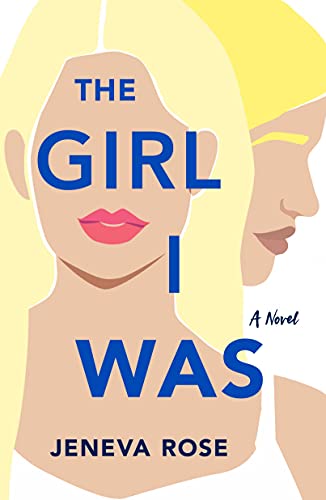
Alexis Spencer thinks she has it all figured out. Even when life gets her down, she’s never too far away from another inspirational quote to rationalize her failures and ignore all her problems. Her boyfriend breaks it off, she loses her job, her closest friends are a distant memory, and her college debt is still as high as the day she left. In typical fashion, she blames the world for her problems, including her eighteen-year-old self who should have just tried harder and put their life on a better track.After feeling sorry for herself, she goes on a bender to forget her problems and ends up blacking out. But this time she doesn't wake up at home; she isn't even in the right city; in fact, she isn't even in the right year. She’s back in her college town in the year 2002, and she thinks she's been given a second chance to do things over—that is, until she comes face-to-face with her unruly eighteen-year-old self, who goes by the name of Lexi because it's "sexier."
Right from the get-go, she has to get acclimated to life in the early 2000s again, which has its ups (no Kardashians) and downs (no cell phone). Once she meets Lexi though, the hard part truly begins. First, Alexis must convince her that she is, in fact, from the future. Then she has to convince Lexi to let her live in the dorm with her. Finally, they must learn to get along and come to terms with the fact that, alone, they will never make things right but, together, they could change their life for the better. [from the publisher]
As far as I can tell, I'm the first early reviewer not to rave about this book (expected publication date November 30). Here's why I'm not crazy about the story: Lexi/Alexis—then as a college student and now in her mid–30s—isn't a nice or pleasant character. The first half, at least, is painfully slow and unpleasant—it takes a long time for Alexis to grow up, and I didn't have the patience to enjoy that ride. The ending is pretty satisfying, but it didn't erase the bad taste of the rest of the book for me.
This is a good example of the subjective and personal nature of our reading. For the reviewers who especially related to the time setting or Alexis' delayed maturation, this book was more enjoyable. As always, if the premise sounds interesting to you, give it a try!
Thank you, NetGalley and Dreamscape Media, for the audio ARC of the book in exchange for an honest review.
10 November 2021
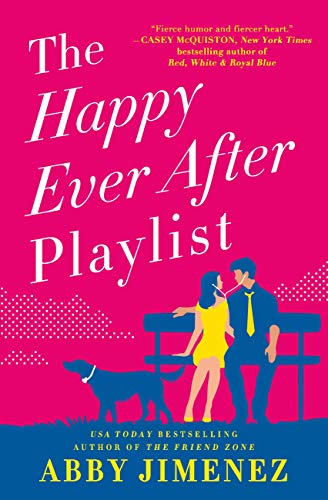
In at least the second and third (the first was pre-blogging, and I just don't remember this level of detail), I was really enjoying the whirlwind romances until the author decided to throw some tension into the relationships. In both cases, I found the manufactured tension to be tedious and ridiculous—not at all in keeping with the relationships as they had been developing. However unrealistic (and, let's face it—the stories are completely unrealistic and that's why people like them so much), occasionally I'm OK with there not being a monkey wrench thrown into the relationship. Sometimes, it's OK to have not only the happy ending, but the happy beginning and middle, too!
In this installment, the meet-cute happens when Sloan ("Girl") thinks she hits a dog that has bounded in front of her car, but instead, Tucker ("Boy's Dog"), jumps excitedly into Sloan's car and adores her forevermore. Sloan tries to track down Tucker's person, but gets no response to her calls/texts. Eventually, Jason ("Boy") emerges from whatever no-cell-signal zone he's been in and calls Sloan back; but he's still out of the country, and Sloan is furious that he hasn't arranged appropriate care for his dog while he's away. They start flirting on the phone, daily, and fall madly in love, even though Sloan has been mourning her fiancé for two years, completely removing herself from daily life.
Because relationships and character development are high on my list of requirements in fiction, I'll mention that there is a good cast of secondary and tertiary characters, including Kristen (Sloan's best friend and heroine of the series' first book) and rock star Jason's agent, staff, and parents.
For what it's worth, there is one very explicit sex scene, quite a bit of mature language (swearing and sexual), and alcohol and drug abuse.
9 November 2021
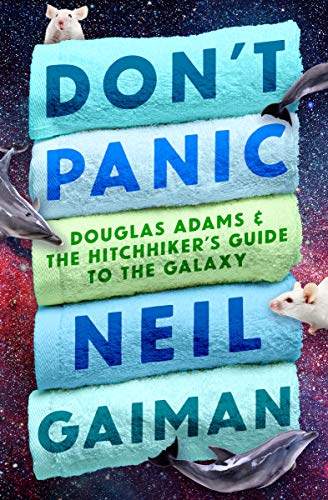
Don't Panic was first published in 1986, when Neil Gaiman was a young journalist who gained access to Adams and his files. We end up with a volume that is part biography, part history, part interviews, part analysis—it's really a mish-mash of all things Hitchhiker's (in its radio, book, television, and movie forms), Dirk Gently, and Douglas Adams (including a fair amount of Doctor Who and Monty Python).
I had heard many of the stories in this work before. I was particularly interested by a discussion about whether American audiences understand and like English humor [Chapter 15]. According to Adams, American audience members say "yes," while the entertainment industry says "no." [I've always said "yes," but I grew up in a household with one British expat parent, so I figured I came by it naturally.] In Chapter 34, an assertion is made that ". . . Hitchhiker's just doesn’t work well in a visual medium. Certainly the BBC TV series was Douglas’s least favourite incarnation of the work. Film places different demands on its source material and in doing so it played to Hitchhiker’s weaknesses rather than its strengths." I've always felt that the books were the best delivery method for the series.
I wasn't a fan of the narration of the audio edition by Simon Jones, which is odd, as he portrayed Hitchhiker's protagonist, Arthur Dent, on radio (1978) and on television (1981), as well as having a cameo in the later movie. I wish Gaiman had just narrated the entire thing himself (he only narrates the intro). I reread sections in the e-book edition afterward.
I'd recommend this book for Douglas Adams superfans and sci-fi trivia folks.
8 November 2021
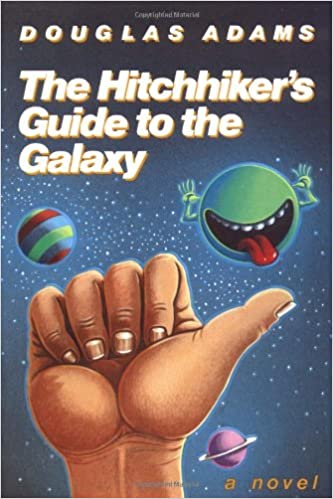
Seconds before the Earth is demolished to make way for a galactic freeway, Arthur Dent is plucked off the planet by his friend Ford Prefect, a researcher for the revised edition of The Hitch Hiker's Guide to the Galaxy who, for the last fifteen years, has been posing as an out of work actor. [from Goodreads summary]
The first time I read The Hitchhiker's Guide to the Galaxy almost had to have been quite close to its original publication. I watched the 1981 television series with my parents and the 2005 movie with my partner (and maybe my kids). I may be compelled to rewatch both in the near future. I chose now to reread it so I could refresh my memory before reading Neil Gaiman's Don't Panic: Douglas Adams & The Hitchhiker's Guide to the Galaxy.
The middle-aged me is still every bit as delighted by this science fiction comedy as the teen me was. It's sometimes clever, often ridiculous, and pretty much always over-the-top; but it's exactly the brand of silly fun I love—and, frankly, need.
7 November 2021
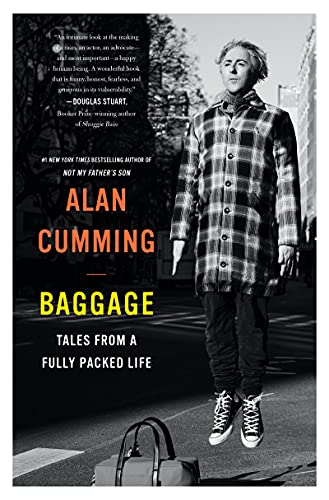
This reading was with ears—Cumming narrates in his wonderful Scottish accent, as he did for the first. I have placed a hold on a print copy so I may enjoy his photos and reread several sections that were especially funny, thoughtful, inspirational, or interesting.
I recommend this for fans of Alan Cumming or acting in general (TV, movies, and stage), along with those who are interested in current affairs.
6 November 2021
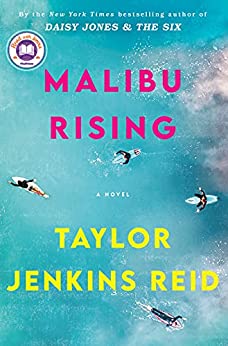
The book is about the four children of Mick (a famous singer) and June (heir to an oft-struggling seafood restaurant) Riva: Nina, Jay, Hud, and Kit. The first half is part the 12 hours preceding the annual end-of-summer party, with a lot of flashbacks to early Mick and June and the childhoods of the kids. The second half (roughly 12 hours of the party and aftermath) brings in hundreds of new characters—the party attendees—with explosive results.
The family characters were well-developed, and I think the ending was satisfying. The party part may have been a bit long and over-the-top, but not enough to mar the story overall.
5 November 2021
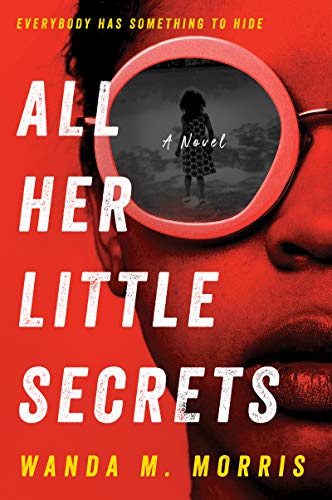
After her boss's death, Ellice gets promoted to his position. As the only Black member of the executive team, she does not feel welcomed by her colleagues. Is it a boys' club situation or something more sinister? [You know it's something more sinister.] Ellice has few allies at work, and a couple of family members get pulled into the mess.
The tension remains high throughout the book. In addition to the present-day mystery, the story includes flashbacks to Ellice's childhood, revealing other critical secrets.
3 November 2021
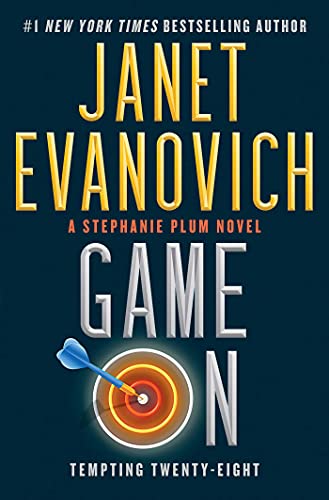
If you're not familiar with the latter, it's a formulaic, frivolous romp. Stephanie is a Jersey girl bounty hunter, working for her weasel of a cousin Vinnie the bail bondsman. A wacky cast of recurring characters includes sidekick Lula (an ex-hooker), longtime on-again/off-again boyfriend Morelli (a cop), former mentor/often lover Ranger, long-suffering parents, Grandma Mazur (an unstoppable bundle of energy), and more, along with a rotating cast of bail-skippers.
Over the years, the installments rise and fall slightly in their entertainment value, but they're never terrible, and they're occasionally really good. In the early years, I would crack up so often while I was reading in the car that my partner ended up reading several installments, too (FOMO at its finest). All I expect from these books is to be entertained, usually humorously.
So, what's to say about the latest installment in a long-running series? SPOILER ALERT—If you really want to know, click to reveal.
One complaint of many who have bailed on the series (Ha! See what I did there? I crack myself up.) is that Stephanie is wishy-washy between Ranger and Morelli. They tire of her failure to commit. This installment finds Stephanie's love-life more stable. There's still a nod to the smoldering chemistry with (two) others. But, for better or for worse, there's much less steam. In this episode, Stephanie has a more cooperative arrangement with a competing bounty hunter (in this case, the returning Diesel). Grandma Mazur still wants to go to every visitation at the funeral home, but she also gets productively distracted by her tutelage from a local computer hacker. Said hacker forms several relationships in the story and contributes well to the outcome. Stephanie's mom—whose main purpose is to be the dependable domestic of the family—gives up on ironing to reclaim her calm and takes up knitting with a process-over-product mentality.
If you're a fan of the series, I don't think you'll be disappointed with this one. There's plenty of what you'd expect, plus a couple of new treats. If you're new to the series, they're really standalone stories—you can pick up anywhere. If you're open to some silly fun, I don't think you'll be disappointed either. For me, this was the perfect one-day distraction on my worst sick day this week. Now, the year-long wait for the next one!
2 November 2021
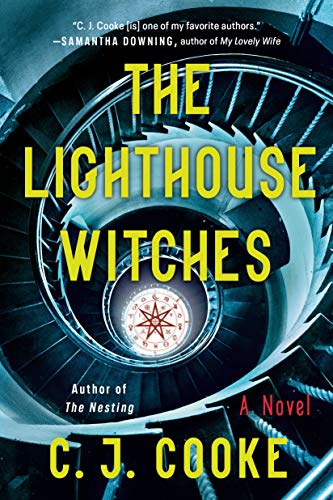
The most exciting part of The Lighthouse Witches is . . . the publisher's description. There. I said it. About a woman who suddenly relocates with her three daughters to a lighthouse on a Scottish island to accept a mural painting assignment, this Gothic fiction is overly long and downright dull. It's so repetitive that it drags down any hope for surprise and excitement. The story is told from several characters' points of view—in the 1990s, some 20-plus years later, and during the Scottish witch trials in the 1590s. There was only one character I sort of liked, and he was minor to the story—a lost opportunity, in my mind.
I am in the slim minority who really didn't like the book, for what it's worth. Please let me know what you think of the story, if you read it.
31 October 2021
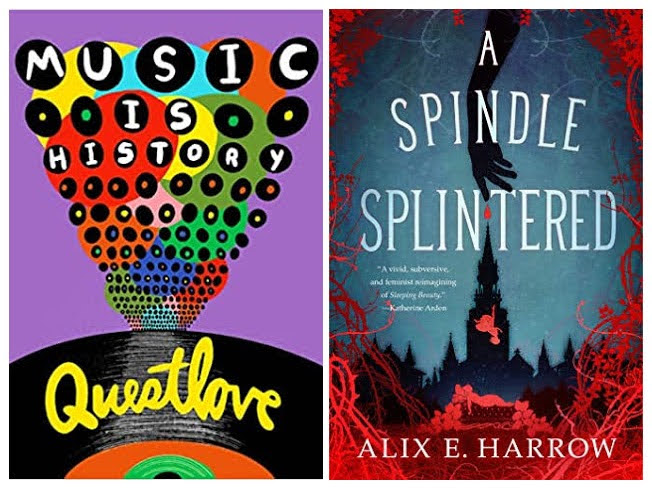
4-star reads
- A Spindle Splintered, Alix E. Harrow
- Music Is History, Questlove
honorable mention (3+ or 4-)
- Please Don't Sit on My Bed in Your Outside Clothes: Essays, Phoebe Robinson (4-)
- State of Terror, Louise Penny & Hillary Rodham Clinton (4-)
- Grave Reservations (The Booking Agents #1), Cherie Priest (4-)
- A Line to Kill (Hawthorne and Horowitz Mystery #3), Anthony Horowitz (3+/4-)
- Shelf Life: Chronicles of a Cairo Bookseller, Nadia Wassef (3+)
- My Monticello, Jocelyn Nicole Johnson (3+)
- The Last Thing He Told Me, Laura Dave (3+)
- Where the Deer and the Antelope Play: The Pastoral Observations of One Ignorant American Who Loves to Walk Outside, Nick Offerman (3+)
31 October 2021
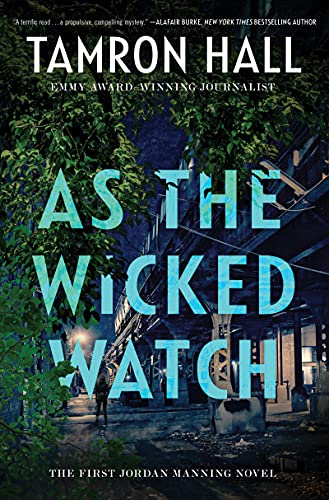
Good things:
- mystery
- set in Chicago
- addresses systemic racism in terms of lack of investment in Black and brown communities and racial stereotypes
- accomplished and driven female main character
- familial ties—blood and chosen
Not-so-good things:
- graphic violence (comes with the territory of the genre)
- main character not as good at relationships as she thinks she is
- implausible behaviors from characters who supposedly know better
- so much repetition
The author is a TV journalist of some renown, which I didn't discover until after finishing this debut novel.
27 October 2021
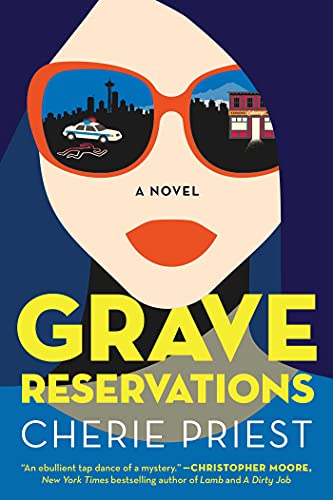
Meet Leda Foley: devoted friend, struggling travel agent, and inconsistent psychic. When Leda, sole proprietor of Foley's Flights of Fancy, impulsively re-books Seattle PD detective Grady Merritt’s flight, her life changes in ways she couldn’t have predicted.After watching his original plane blow up from the safety of the airport, Grady realizes that Leda’s special abilities could help him with a cold case he just can’t crack.
Despite her scattershot premonitions, she agrees for a secret reason: her fiancé’s murder remains unsolved. Leda’s psychic abilities couldn’t help the case several years before, but she’s been honing her skills and drawing a crowd at her favorite bar’s open-mic nights, where she performs Klairvoyant Karaoke—singing whatever song comes to mind when she holds people’s personal effects. Now joined by a rag-tag group of bar patrons and pals alike, Leda and Grady set out to catch a killer—and learn how the two cases that haunt them have more in common than they ever suspected. [from the publisher]
I went into Grave Reservations with, well, slightly-less-than-grave reservations. I'm not usually a fan of reading cozy or light mysteries—Janet Evanovich's Stephanie Plum series excepted—though I like watching some cozy mysteries, including Pie in the Sky and Agatha Raisin.
So, I was pleasantly surprised by this book, which has a bunch of appealing characters, some with especially big personalities. It also has humor, relationships (romantic, platonic friends, parent/child, coworkers, people/animal), and a surprisingly decent mystery plot. If you could use a light mystery pick-me-up, give it a try!
26 October 2021
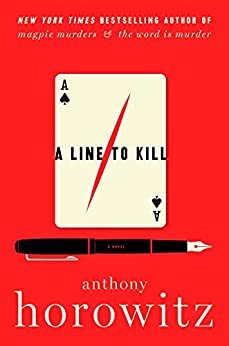
In this installment, the pair is appearing at a literary festival on an island off the southern coast of England. We meet other authors, along with locals; murder happens; and Hawthorne solves the case.
24 October 2021
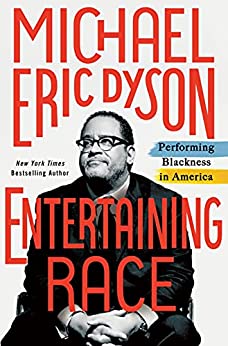
For more than thirty years, Michael Eric Dyson has played a prominent role in the nation as a public intellectual, university professor, cultural critic, social activist and ordained Baptist minister. He has presented a rich and resourceful set of ideas about American history and culture. Now for the first time he brings together the various components of his multihued identity and eclectic pursuits.Entertaining Race is a testament to Dyson’s consistent celebration of the outsized impact of African American culture and politics on this country. Black people were forced to entertain white people in slavery, have been forced to entertain the idea of race from the start, and must find entertaining ways to make race an object of national conversation. Dyson’s career embodies these and other ways of performing Blackness, and in these pages, he entertains race with his pen, voice and body, and occasionally, alongside luminaries like Cornel West, David Blight, Ibram X. Kendi, Master P, MC Lyte, Ta-Nehisi Coates, Alicia Garza, John McWhorter, and Jordan Peterson.
Most of this work will be new to listeners, a fresh light for many of his long-time fans and an inspiring introduction for newcomers. Entertaining Race offers a compelling vision from the mind and heart of one of America’s most important and enduring voices. [from the publisher]
This is a long—544 pages or 21 hours of audio narrated by the author—collection of speeches and essays that were given or published previously. As such, there is quite a bit of repetition, especially in terms of Mr. Dyson introducing himself and giving his substantial qualifications. There's also some content repetition between and within the pieces. His topics include Michael Jackson/Beyonce/Prince, Nas, the Isley Brothers, Aretha Franklin, Martin Luther King Jr., Nelson Mandela, hip hop, the blues, Joe Biden, identity politics, Al Sharpton, and several basketball players (individually and in comparison to each other). This isn't a complete list.
Early in the collection, Dyson refers to an enslaved young woman who can't perform for her enslaver's entertainment any more and is tortured and killed because of it. He then mentions tennis player Naomi Osaka putting her self care ahead of her performance for others. [Dyson might have mentioned gymnast Simone Biles instead of or in addition to Osaka, but I'm not going to go back and try to find the reference.] This is what I was expecting more of throughout the book. I guess I took the description and early content too literally.
Instead, many of the chapters about musicians and athletes sound more like fan gushing. I admire several of these musicians and athletes, but I didn't care for the extended "so & so is the greatest of all time" essays. Even the segments that were less subjective were minimally instructive or valuable. I wasn't familiar with Nas before this book, so I was somewhat interested in learning that Nas and Dyson share the experience of having a loved one incarcerated. That piece did talk a bit about the heinous inequities in policing, incarceration, and the after-effects on the incarcerated, their families, and their communities. [This, of course, is handled much more comprehensively in other works, including Michelle Alexander's The New Jim Crow.]
Some of the chapters/pieces were downright sesquipedalian [See what I did there?!]—reading like an especially tedious textbook. As alluded to in the publisher's description, race needs to be an object of national conversation. We shouldn't need to be entertained to enter such critical discussions. Regardless, I was not entertained, engaged, inspired, or fired up by Dyson's essays, as I am often by other authors/professors/ministers/historians/cultural critics.
Thank you, NetGalley, Macmillan Audio, and St. Martin's Press, for the audio ARC of the book in exchange for an honest review.
21 October 2021
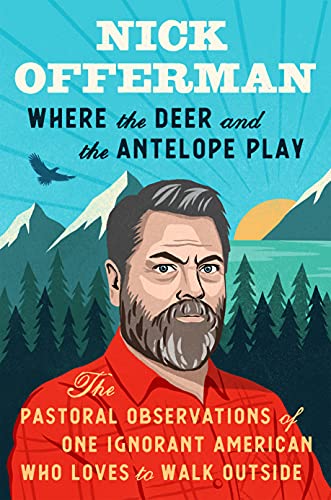
19 October 2021
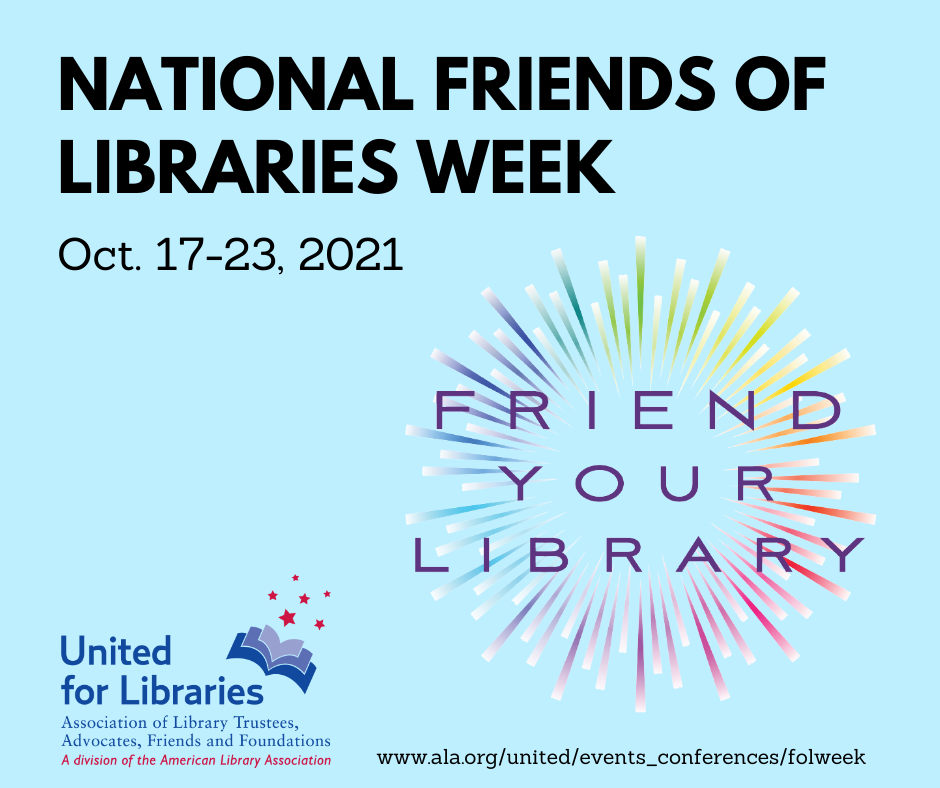
18 October 2021
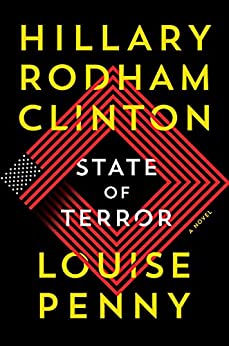
Now, on to the book at hand. . . .
State of Terror follows a novice Secretary of State who has joined the administration of her rival, a president inaugurated after four years of American leadership that shrank from the world stage. A series of terrorist attacks throws the global order into disarray, and the secretary is tasked with assembling a team to unravel the deadly conspiracy, a scheme carefully designed to take advantage of an American government dangerously out of touch and out of power in the places where it counts the most. [from the publisher]
This story takes place in the present, including references to the "near-criminal incompetence of the former administration . . . a delusional American President and his flying monkeys in the cabinet”—a clear reference to the USA's 2017–2020 administration.
While Hillary Rodham Clinton's term as Secretary of State was prior to that administration, the fictional Ellen Adams' term is following that administration. [In the book, the immediate past president is named Eric Dunn, nicknamed "Eric the Dumb."] I don't know how closely the experiences of fictional Ellen Adams match HRC's experiences as Secretary of State; but it's fun to wonder which events might be true or close to it.
There are certainly differences between Ellen and HRC, including but not limited to different marriages and children. Ellen's closest advisor is a lifelong friend, Betsy, apparently modeled after a close friend of HRC's. Apparently, Louise Penny and HRC are friends in real life. I haven't read or viewed any interviews of them as coauthors, but would like to.
Despite a very few mild irritations in the text and a couple of slightly slow parts, this was a pretty good mystery/thriller. It's got intrigue, suspense, deep and interlocking relationships, and even humor.
15 October 2021
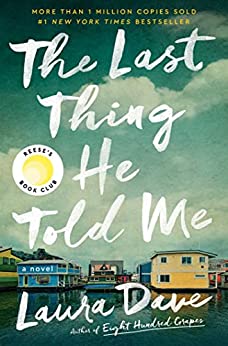
In The Last Thing He Told Me, Hannah's newish husband Owen disappears suddenly when the company for which he works comes under investigation. He has a teenage neighbor deliver a note to Hannah saying "Protect her." The "her" is Owen's 16-year-old daughter Bailey, who doesn't like her stepmom.
We don't know where Owen is or whether he's done anything wrong. Quickly, a US Marshal arrives at Hannah's home, followed closely by FBI agents. Not trusting anyone, Hannah takes Bailey and starts her own investigation, which leads to a deeper mystery around Owen and Bailey's identities. Hannah's best friend plays a very small role, as does Hannah's ex-fiancé, who's a lawyer. Hannah is a likeable character, which Sunshine (in my other recent Dave experience) was not.
I wasn't entirely satisfied with the ending. The majority of the book is pretty slow-paced; really close to the end things sort of explode; then there's a short epilogue. It seemed a bit rushed and anticlimactic to me. Overall, I was entertained.
13 October 2021
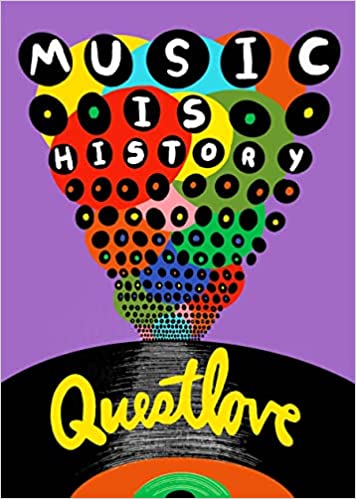
In Music Is History, bestselling author and Sundance award-winning director Questlove harnesses his encyclopedic knowledge of popular music and his deep curiosity about history to examine America over the past fifty years. Choosing one essential track from each year, Questlove unpacks each song’s significance, revealing the pivotal role that American music plays around issues of race, gender, politics, and identity.Music Is History focuses on the years 1971 to the present, not only the country’s most complex and rewarding half-century when it comes to the ways that pop culture and culturally diverse history intersect and interact, but also the years that overlap with Questlove’s own life. Music Is History moves fluidly from the personal to the political, examining events closely and critically, to unpeel and uncover previously unseen dimensions, and encouraging readers to do the same. Whether he is exploring how Black identity reshaped itself during the blaxploitation era, analyzing the assembly-line nature of disco and its hostility to Black genius, or remembering his own youth as a pop fan and what it taught him about America, Questlove finds the hidden connections in the American tapestry.
Complete with playlists organized around personal, playful themes that touch on everything from the relationship of hip-hop to music’s past to the secret ingredient in all funk songs, Music Is History is filled with and informed by Questlove’s preferences, perspectives, and particularities. It feels like both a popular history of contemporary America and a conversation with one of music's most influential and unique voices. [from the publisher]
If you're not familiar with Questlove (you probably are), he's worth an online search. I am especially glad to have previewed this book via audio narrated by the author, as there is a heavy personal component to the text—best to hear directly from the source. There were also some musical moments (typically fun) and some sound effects (sometimes jarring and usually silly, but OK).
As a music lover myself—and being only a few years older than the author—I was interested in both the historical connections and Questlove's personal commentary. Each chapter starts with a list of some of the year's notable events. Overall, the content was fascinating and the presentation was impactful, somber, delightful, or funny, as warranted by the subject at hand.
Thank you, NetGalley and RB Media, for the audio ARC of the book in exchange for an honest review.
12 October 2021
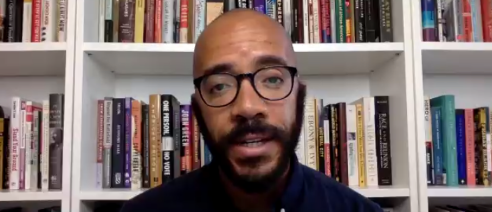

The first day of the 2021 Illinois Library Association Conference is in the bag. It couldn't have gotten off to a better start than to have Clint Smith as the opening general session speaker. He was absolutely captivating and personable. Check out his personal library, which is truly deserving of shelf envy. He pulled a bunch of books off the shelves, one by one, to recommend to us.
Toward the end of this morning's session, Mr. Smith mentioned that signed copies of his latest book (published June 1) are available from a Black-owned bookstore in DC. As soon as the conference day ended, I made my order (including a tiny piece of bookstore swag). Here's the link, if you're going to buy vs. borrow.
#ILAAC21
11 October 2021
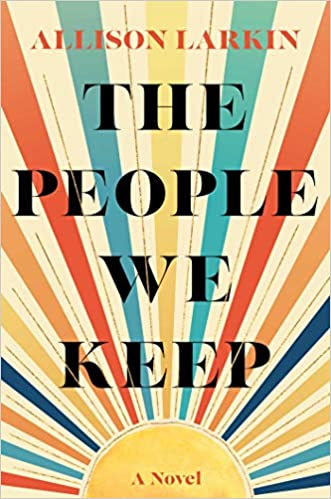
I almost bailed in the first half (I don't remember the exact spot), but the story started to pick up and seem more promising toward the middle. Shortly thereafter, all hope is yanked away and we start on another painful downturn for April. Overall, the story is unsettling, depressing, and, frankly, sort of boring. One can understand how April would have relationship issues; but, many people have had poor childhood experiences yet manage not to repeatedly self-destruct, leaving collateral damage in their wake.
While I'm usually all about the relationships, April's propensity for making ridiculously poor life choices without regard for the few people who are her true allies was infuriating to me. There are several characters who care deeply for April along the way. My favorites were Margo, Carly, and Ethan.
9 October 2021
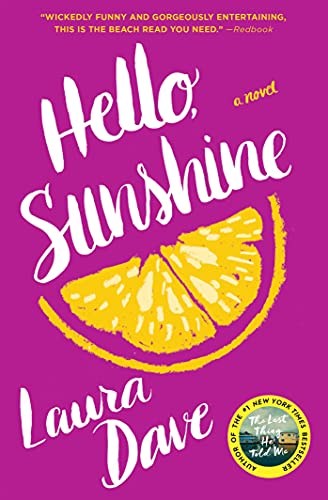
7 October 2021
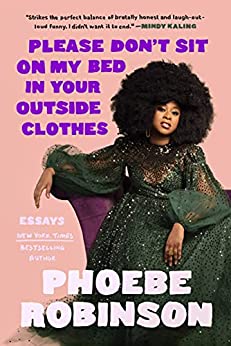
New York Times bestselling author, comedian, actress, and producer Phoebe Robinson is back with a new essay collection that is equal parts thoughtful, hilarious, and sharp about human connection, race, hair, travel, dating, Black excellence, and more. [from the publisher]
I liked (not super-liked) and own in print Robinson's first book—You Can't Touch My Hair. I missed her second, but will pick up that one another time. This—her third book—is funny (sometimes laugh-out-loud level) and honest (sometimes rightfully sharply). The only passages I flagged for later reflection pertained to allyship. My lack of bookmarking doesn't reflect on my enjoyment of the book.
Robinson has her own publishing imprint, which is pretty cool. I'll be interested to see how that grows beyond her own books.
If you like commentary by comedians (live, on TV, in books, or via podcasts), check out Robinson's work.
5 October 2021
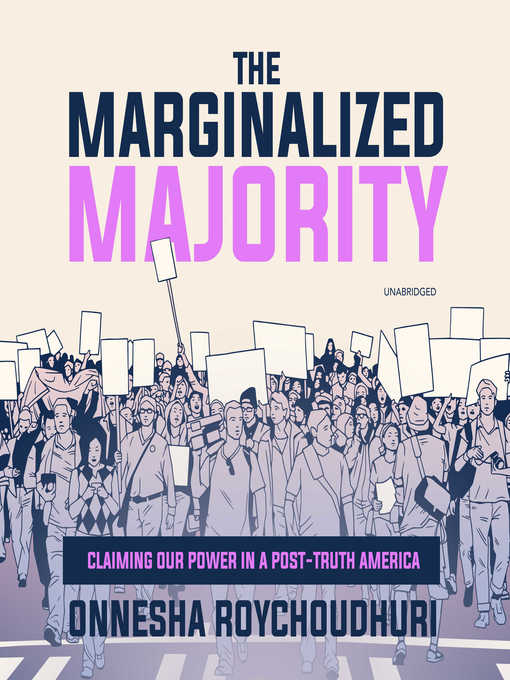
Ever since the 2016 election, pundits have been saying our country has never been more divided—that if progressives want to reclaim power, we need to be “pragmatic,” reach across the aisle, and look past identity politics.But what if we’re getting the story all wrong?
In The Marginalized Majority, Onnesha Roychoudhuri makes the galvanizing case that our voices are already the majority—and that our plurality of identities is not only our greatest strength, but is also at the indisputable core of successful progressive change throughout history.
From the Civil Rights Movement to the Women’s March, Saturday Night Live to the mainstream media, Roychoudhuri holds the myths about our disenfranchisement up to the light, illuminating narratives from history that reveal we have far more power than we’re often led to believe. With both clear-eyed hope and electrifying power, she examines our ideas about what’s possible, and what’s necessary—opening up space for action, new realities, and, ultimately, survival.
Now, Roychoudhuri urges us, is the time to fight like the majority we already are. [from the publisher]
I flagged 14 passages in this short book. Seven of them appear in the Introduction. This leads me to believe that the piece could have been better as a substantial article, instead of a weak book. Still, it's a quick read—if you're intrigued by the publisher's summary, give the book a try.
4 October 2021
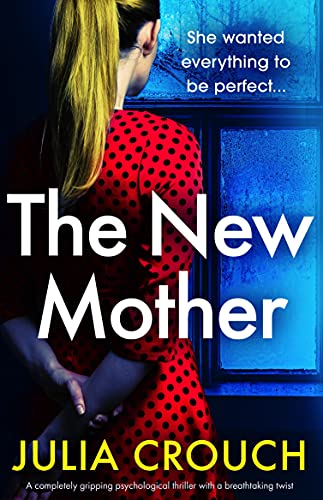
Who would you trust with your precious family?Wanted: full-time, live-in help for expectant mother. Must be organised, friendly and willing to do anything.
Rachel is determined to be the perfect mother. She has a birth plan, with a playlist and a bag ready by the door. She’s chosen a lovely light cream paint for the nursery, and in wide-eyed, innocent Abbie she’s found the perfect person to help her with her baby.
After all, every mother needs a bit of help, don’t they?
But Rachel needs a little more than most.
She still makes sure her bedroom door is locked before she goes to sleep. She still checks the cameras that are dotted throughout the house.
Rachel trusts Abbie. Even if Abbie’s smiles don’t always reach her eyes, and the stories she tells about her past don’t always add up, it doesn’t matter.
Because Rachel knows better than to trust herself. . . . [from the publisher]
Had the publisher's description included the fact that Rachel is a social media influencer, I likely would not have requested this book for early reading and review. I don't follow unboxing videos and paid endorsements. So, I didn't enjoy the frequent social media posts, including "like" counts and excessive hashtags. If you do enjoy social media influencers, you might have a completely different—and better—reading experience.
Both Rachel and Abbie are horrid characters, and they're not the only ones. I don't typically enjoy books that have no appealing characters. I need at least one person about whom to care/for whom to root.
This book was unrelentingly vicious, chock-full of trolling/online bullying, brutal torture, rape, domestic abuse, murder, child abuse and neglect, and emotional cruelty.
The author did a fine job, I suppose, of stringing the reader along, slowly revealing tiny bits of information. There were several connecting storylines. My rating in this case is based solely on my connection to the book, regardless of the writer's technical skill level. That is, I'm not awarding brownie points for her deftness in being consistently brutal, nor for tying all the ugliness together.
Thank you, NetGalley and Bookouture Audio, for the audio ARC of the book in exchange for an honest review.
2 October 2021
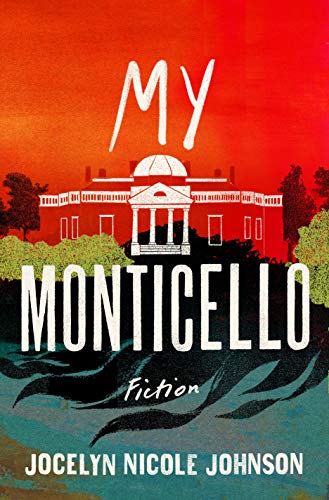
Tough-minded, vulnerable, and brave, Jocelyn Nicole Johnson’s precisely imagined debut explores burdened inheritances and extraordinary pursuits of belonging. Set in the near future, the eponymous novella, “My Monticello,” tells of a diverse group of Charlottesville neighbors fleeing violent white supremacists. Led by Da’Naisha, a young Black descendant of Thomas Jefferson and Sally Hemings, they seek refuge in Jefferson’s historic plantation home in a desperate attempt to outlive the long-foretold racial and environmental unravelling within the nation.In “Control Negro,” hailed by Roxane Gay as “one hell of story,” a university professor devotes himself to the study of racism and the development of ACMs (average American Caucasian males) by clinically observing his own son from birth in order to “painstakingly mark the route of this Black child too, one whom I could prove was so strikingly decent and true that America could not find fault in him unless we as a nation had projected it there.” Johnson’s characters all seek out home as a place and an internal state, whether in the form of a Nigerian widower who immigrates to a meager existence in the city of Alexandria, finding himself adrift; a young mixed-race woman who adopts a new tongue and name to escape the landscapes of rural Virginia and her family; or a single mother who seeks salvation through “Buying a House Ahead of the Apocalypse.” [from the publisher]
The publisher's blurb sufficiently describes this short story collection. I'll add a few personal impressions. All the stories were fine-to-good, as short stories go. Of course, one of the limitations of the short story is that it can be hard to imbue enough depth and commitment to characters and action. Johnson uses rich language to give heft and emotion to each story.
"Control Negro" is narrated by Levar Burton, and might be my favorite in the collection. "My Monticello"—the longest story—is also in the running. [Early in that story, I thought it was my favorite; but, by the end I wasn't sure.] I didn't care for the narrator of this piece—her performance was flat and monotonous. The topic was timely and jarring, given our country's resurgence of violent white supremacist demonstrations and attacks.
I definitely recommend the collection, and I'll be interested in reading more work from Johnson.
Thank you, NetGalley and Macmillan Audio, for the audio ARC of the book in exchange for an honest review.
1 October 2021
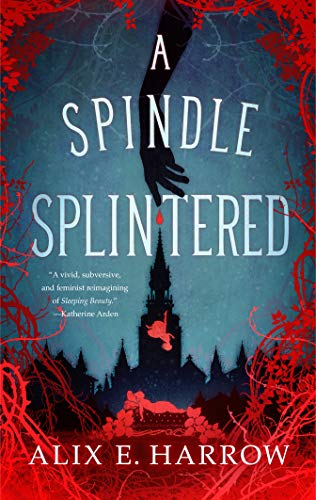
It's Zinnia Gray's twenty-first birthday, which is extra-special because it's the last birthday she'll ever have. When she was young, an industrial accident left Zinnia with a rare condition. Not much is known about her illness, just that no-one has lived past twenty-one.Her best friend Charm is intent on making Zinnia's last birthday special with a full sleeping beauty experience, complete with a tower and a spinning wheel. But when Zinnia pricks her finger, something strange and unexpected happens, and she finds herself falling through worlds, with another sleeping beauty, just as desperate to escape her fate. [from the publisher]
In A Spindle Splintered, the sleeping beauties take charge of their own fates. The story is told by Zin, a woman from present-day Ohio. The wicked witch who cursed Princess Primrose makes an appearance and important contribution to the story.
This is a short, feminist reboot of the Sleeping Beauty tale. This is a novella, so don't expect fully fleshed characters or multiverses. Just enjoy it for what it is. To me, it was a fun romp with a little food for thought. I'll read it again when the print book is published (expected October 5) in order to view the illustrations.
There are some themes that may be difficult for sensitive readers. If you are one or are choosing for one, you may want to dig a little deeper (or ask your librarian) to determine if it's a good fit for you.
Thank you, NetGalley, Macmillan Audio, and Tor, for the audio ARC of the book in exchange for an honest review.
1 October 2021
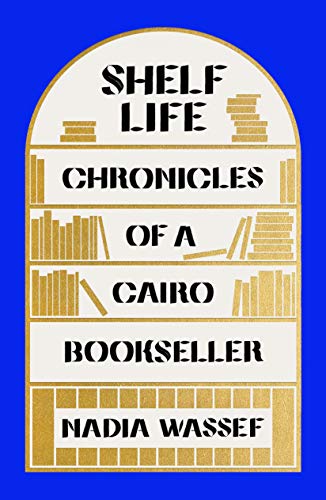
In 2002, with her sister, Hind, and their friend, Nihal, [Nadia Wassef] founded Diwan, a fiercely independent bookstore. They were three young women with no business degrees, no formal training, and nothing to lose. At the time, nothing like Diwan existed in Egypt. Culture was languishing under government mismanagement, and books were considered a luxury, not a necessity. Ten years later, Diwan had become a rousing success, with ten locations, 150 employees, and a fervent fan base.Frank, fresh, and very funny, Nadia Wassef’s memoir tells the story of this journey. Its eclectic cast of characters features Diwan’s impassioned regulars, like the demanding Dr. Medhat; Samir, the driver with CEO aspirations; meditative and mythical Nihal; silent but deadly Hind; dictatorial and exacting Nadia, a self-proclaimed bitch to work with; and the many people, mostly men, who said Diwan would never work.
Shelf Life is a portrait of a country hurtling toward revolution, a feminist rallying cry, and an unapologetic crash course in running a business under the law of entropy. Above all, it is a celebration of the power of words to bring us home. [from the publisher]
From the moment I heard this book was coming (expected publication date October 5), I was ever-so-anxious to read it. Learning about three women building a successful business in a religiously conservative patriarchy—and including the Arab Spring protests/rebellions starting in 2011—was fascinating.
The book is loosely organized by chapters relating to the genre sections of the bookshop. This didn't prove as effective or interesting a tool as it might have been.
Aspects I especially liked: history of the area; description of the particular challenges women business owners face in Egypt; the bookstore as a third place (community-building); discussion about what makes a book a classic; some of the anecdotes involving individual people in her life; anecdote of her visit to the censorship office; the author's personal empowerment.
Aspects I didn't like as much: repetition of certain themes [how tough she is to work with/for; marriage failure (or divorce success)]; excessive/gratuitous swearing; the rest/bulk of the anecdotes about individuals.
Thank you, NetGalley and Dreamscape Media, for the audio ARC of the book in exchange for an honest review.
30 September 2021
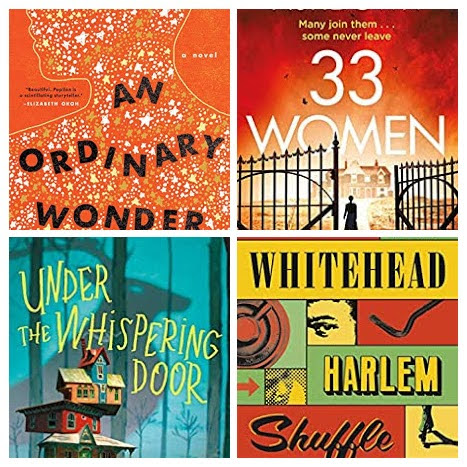
5-star read
- Harlem Shuffle, Colson Whitehead
4-star reads
- An Ordinary Wonder, Buki Papillon
- 33 Women, Isabel Ashdown (4+)
- Under the Whispering Door, TJ Klune (4+)
honorable mention (3+ or 4-)
- The Orphan Witch, Paige Crutcher (3+/4-)
- The Final Girl Support Group, Grady Hendrix (3+/4-)
30 September 2021
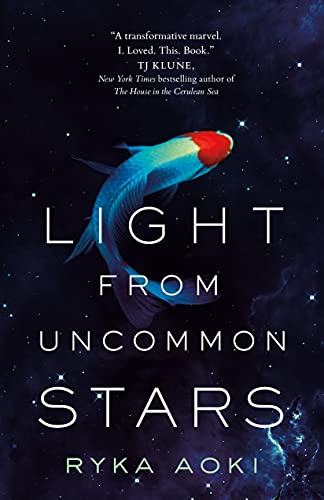
Good Omens meets The Long Way to a Small, Angry Planet in this defiantly joyful adventure set in California's San Gabriel Valley, with cursed violins, Faustian bargains, and queer alien courtship over fresh-made donuts.Shizuka Satomi made a deal with the devil: to escape damnation, she must entice seven other violin prodigies to trade their souls for success. She has already delivered six.
When Katrina Nguyen, a young transgender runaway, catches Shizuka's ear with her wild talent, Shizuka can almost feel the curse lifting. She's found her final candidate.
But in a donut shop off a bustling highway in the San Gabriel Valley, Shizuka meets Lan Tran, retired starship captain, interstellar refugee, and mother of four. Shizuka doesn't have time for crushes or coffee dates, what with her very soul on the line, but Lan's kind smile and eyes like stars might just redefine a soul's worth. And maybe something as small as a warm donut is powerful enough to break a curse as vast as the California coastline.
As the lives of these three women become entangled by chance and fate, a story of magic, identity, curses, and hope begins, and a family worth crossing the universe for is found. [from the publisher]
The only comparison I see between Good Omens (which I've read twice so far) and Light From Uncommon Stars is that there are demon characters in both—several (and more prominent) in the former; one (of minimal importance, overall) in the latter. As for Light From Uncommon Stars being a "defiantly joyful adventure," I'm afraid I have to take exception to that, too. There is little humor or happiness in the book (put a pin in this statement for a moment). Instead, there is racism, oppression, misogyny, and abuse. This is particularly true for Katrina, who is misgendered, deadnamed, assaulted, and more.
The book jumps willy-nilly from one character and topic to another. At the same time, there isn't a lot of movement in the story. It felt particularly and painfully long in that very little actually happens.
Light From Uncommon Stars is not without merit. There's a heavily female cast of characters—in addition to those highlighted in the publisher's summary, there's a female assistant/housekeeper to Ms. Satomi who is a real gem; a violin master builder/repairer from a line of (male) masters; and two of Ms. Tran's children, who are smart and warm. Several close/warm relationships form during the story, across generations and backgrounds. The book celebrates music (particularly but not exclusively violin) and food. It is in the relationships, music, and food that satisfaction and happiness can be found.
While this wasn't a stunner for me, it might be for you.
Content warnings (incomplete): racism, transphobia, sexual assault, violence.
Thank you, NetGalley, Macmillan Audio, and Tor Books, for the audio ARC of the book in exchange for an honest review.
28 September 2021
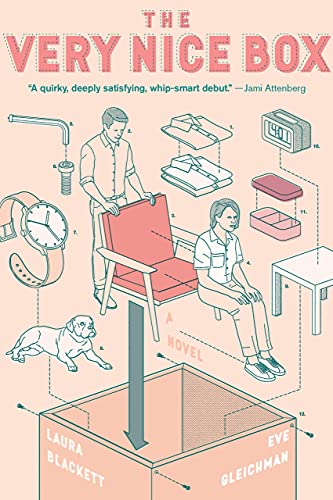
Ava Simon designs storage boxes for STÄDA, a slick Brooklyn-based furniture company. She’s hard-working, obsessive, and heartbroken from a tragedy that killed her girlfriend and upended her life. It’s been years since she’s let anyone in.But when Ava’s new boss—the young and magnetic Mat Putnam—offers Ava a ride home one afternoon, an unlikely relationship blossoms. Ava remembers how rewarding it can be to open up—and, despite her instincts, she becomes enamored. But Mat isn’t who he claims to be, and the romance takes a sharp turn.
The Very Nice Box is a funny, suspenseful debut—with a shocking twist. It’s at once a send-up of male entitlement and a big-hearted account of grief, friendship, and trust. [from the publisher]
This has been recommended for fans of Eleanor Oliphant Is Completely Fine, which I am not. Let's start there. There are, no doubt, plenty of strong introverts who are smart, good at their jobs, and socially anxious (or outright socially inept). I am sensitive to their feelings, and in no way disparaging. It's just that—as an extremely introverted, smart, competent person who can be, actually, quite social (with appropriate periods of solitude to replenish my energy)—I'd like to see more books with main characters like me. That is, it would be nice if the extroverts of the world understood that not all introverts are shy and/or antisocial. See The Bookish Life of Nina Hill as a decent example.
In The Very Nice Box, Ava is on (or at least quite near) the Eleanor Oliphant end of the social spectrum, though she does stretch far outside her norm as the story progresses. We understand her hesitancy to trust and care for others, considering the loss of both her girlfriend/fiancé and her parents in a horrific auto accident of which she was the only survivor. Ava is devoted to her dog, and has one friend at work, with whom she has regular, weekly lunches . . . until she gets involved with Mat.
The company is clearly meant to resemble IKEA, with product names like "alert percolator," "peaceful headphones," "polite hamper," "studious backpack," and so many more (including the titular "very nice box"). I didn't catch on right away that this was going to be such a big deal, so I was late to capturing these product names. Still, I recorded 32 names. Some of the products are cited multiple times each. It was funny at first, but eventually contributed to the company's somewhat cultish feel. I'm sure that was purposeful.
The publisher's description refers to a "shocking twist," which isn't revealed until beyond the 90% mark. It's pretty good, though I don't think most thriller readers will be entirely surprised. I thought the bulk of the story/build-up was slow and tedious, but enjoyed the excitement of the climax and conclusion.
Pro: diverse characters (age, race, sexuality); women in STEM roles; relationships, including outside of the main and secondary characters; humor (light); twistiness (minimal, eventually).
26 September 2021
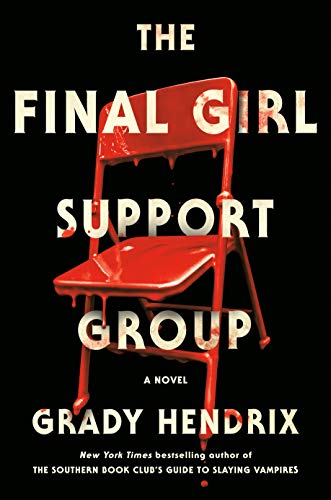
In horror movies, the final girl is the one who's left standing when the credits roll. The one who fought back, defeated the killer, and avenged her friends. The one who emerges bloodied but victorious. But after the sirens fade and the audience moves on, what happens to her? [from the publisher]
I've never been a horror movie fan. I begrudgingly admit that I might be approaching fan-adjacent in horror literature. The Final Girl Support Group piqued my morbid curiosity.
Lynnette Tarkington is one of six real-life final girls in a support group led by a therapist. Lyn is the narrator of this book, which was sloooooooooooow to capture my interest. My inertia (or maybe it was my concentration on my art project) yesterday afternoon (don't judge—it was Saturday) worked in the book's favor—I couldn't be bothered to flip back to my Libby shelf to start the next book on-deck. As it turns out, I'm glad I didn't bail. The book finally gets interesting when the action and mystery ramp up. It automatically gets points for keeping me guessing on the bad guy's identity, offsetting my early inclination to bail.
I marked only one passage, which summarizes my longstanding thoughts about "entertainment."
But, what does it say about us that so much of the entertainment we consume is about killing women? I want you to think about that. How is the murder of women fun? [Chapter XXII]
24 September 2021
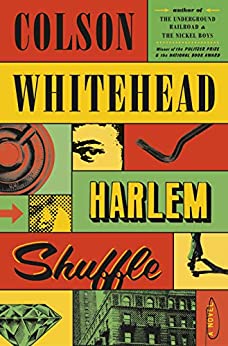
Harlem Shuffle’s ingenious story plays out in a beautifully recreated New York City of the early 1960s. It’s a family saga masquerading as a crime novel, a hilarious morality play, a social novel about race and power, and ultimately a love letter to Harlem. [from the publisher]
Ray Carney is a furniture salesman and family man. After his cousin Freddie volunteers him to serve as fence for the loot from a hotel heist, Ray gains a side hustle with a new, shady clientele, and the internal battle between his "striver" and "crook" selves begins.
I'm a tiny bit embarrassed to admit that this is my first Whitehead read. I'm going to try not to be too hard on myself, though, as there is limited time to read and stiff competition for his books from the library immediately after publication. I only got my hands on this one so quickly because I was determined not to miss out again. [The cost was a many months–long slot on my Overdrive hold list. Worth it!]
This is the second book in just over a month that is getting a rare 5-star rating from me. The language, story, humor, action, relationships, characters, and commentary were exquisitely done. I was so involved that I blew off most of yesterday in favor of reading. [That was worth it, too!]
23 September 2021
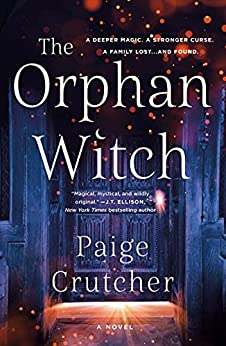
A deeper magic. A stronger curse. A family lost . . . and found.Persephone May has been alone her entire life. Abandoned as an infant and dragged through the foster care system, she wants nothing more than to belong somewhere. To someone. However, Persephone is as strange as she is lonely. Unexplainable things happen when she’s around—changes in weather, inanimate objects taking flight—and those who seek to bring her into their family quickly cast her out. To cope, she never gets attached, never makes friends. And she certainly never dates. Working odd jobs and always keeping her suitcases half-packed, Persephone is used to moving around, leaving one town for another when curiosity over her eccentric behavior inevitably draws unwanted attention.
After an accidental and very public display of power, Persephone knows it’s time to move on once again. It’s lucky, then, when she receives an email from the one friend she’s managed to keep, inviting her to the elusive Wile Isle. The timing couldn’t be more perfect. However, upon arrival, Persephone quickly discovers that Wile is no ordinary island. In fact, it just might hold the very things she’s been searching for her entire life.
Answers. Family. Home
And some things she did not want. Like 100-year-old curses and an even older family feud. With the clock running out, love might be the magic that saves them all. [from the publisher]
One of the pieces of author praise for The Orphan Witch relates this author to Alice Hoffman (Practical Magic series) and Sara Addison Allen (Garden Spells/Waverley Family series). I get it, but those are awfully big shoes with which to saddle a newish novel writer. [The blurb in question says it's Crutcher's debut, but she had a book published in 2014 and has contributed to a couple of anthologies.] When I started reading, I was pleasantly surprised. I thought finally a comparison had been made that wouldn't end up disappointing me. This held for most of the book. I was all in for the premise, the now-32-year-old Persephone going to Wile Isle, the magic/witchcraft, and the family feud. I wasn't keen on the romance aspect, but it was a relatively small portion of the story. Really, I was engaged for most of the book. Then we got to the climax and it all fell apart. While I'm not completely alone in my mild disappointment, the majority of advance readers seem to really love it. So, don't be discouraged to read.
Thank you, NetGalley and MacmillanAudio/St. Martin's Griffin, for the audio ARC of the book in exchange for an honest review.
20 September 2021
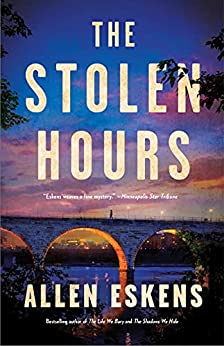
Lila Nash is on the verge of landing her dream job—working as a prosecutor under the Hennepin County Attorney—and has settled into a happy life with her boyfriend, Joe Talbert. But when a woman is pulled from the Mississippi River, barely alive, things in the office take a personal turn.The police believe the woman’s assailant is local photographer Gavin Spenser, but the case quickly flounders as the evidence wears thin. It seems Gavin saw this investigation coming—and no one can imagine how carefully he has prepared.
The more determined Lila is to put Gavin behind bars, the more elusive justice becomes. Battling a vindictive new boss and haunted by the ghosts of her own unspeakable attack, which she’s kept a dark secret for eight long years, Lila knows the clock is ticking down. In a race against an evil mastermind, it will take everything Lila’s got to outsmart a killer—and to escape the dark hold of her own past. [from the publisher]
I have been so impressed with everything I've read of Eskens' . . . until now. I was really looking forward to reading The Stolen Hours, in which Lila Nash—who was a secondary character in The Life We Bury—is now the lead. I like how Eskens connects his books by shifting the lead character (and the point on their timeline). Unfortunately, where his books I've read previously concentrate on relationships and intricate storytelling, this one focused far too heavily on two things: the rape perpetrated by two men against Lila years before (admittedly pertinent to the modus operandi of the main case of this story) and Gavin's speech impediment. These two items are brought up so constantly that there's significantly less story crafting than I'm used to from Eskens. There are other threads in the story—but my overall sense as I was reading was that these two themes were overemphasized to the detriment of the story.
Content warnings include rape, murder, date rape drug, and attempted suicide.
16 September 2021
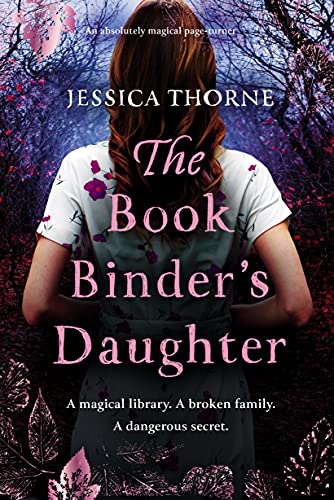
The song surrounded her now, the murmuring of the library insistent, and her foot took the first step on the winding stairs. She knew it wasn’t entirely a dream. It was the library calling her, its magic driving her.When Sophie is offered a job at the Ayredale Library—the finest collection of rare books in the world, and the last place her bookbinder mother was seen when Sophie was just a teenager—she leaps at the chance. Will she finally discover what happened to the woman she’s always believed abandoned her?
Taking in the endless shelves of antique books, the soaring stained-glass windows, and the grand sweeping staircase, usually shy Sophie feels strangely at home, and is welcomed by her eccentric fellow binders. But why is the Keeper of the Library so reluctant to speak about Sophie’s mother? And why is Sophie the only person who can read the strange spells in the oldest books on display, written in a forgotten language nobody else understands?
The mysteries of the library only deepen when Sophie stumbles upon an elaborately carved door. The pattern exactly matches the pendant her mother left behind years ago, engraved with a delicate leaf. As the door swings open at her touch, Sophie gasps at the incredible sight: an enormous tree, impossibly growing higher than the library itself, its gently falling golden leaves somehow resembling the pages of a book. Amidst their rustling, Sophie hears a familiar whisper . . .
‘There you are, my Sophie. I knew you’d come back for me.’ [from the publisher]
As a super-fan of everything books and libraries, and typically enjoying fantasy stories, I was immediately attracted by the title and premise of The Bookbinder's Daughter. I couldn't wait to dig in. It was . . . okay. It has enticing elements: magic, books, a cat named Titivillus (patron demon of scribes), and secrets (mystery). It's also painfully repetitive, especially for a work so short—we hear the same things, in the same exact words, over and over, sometimes from different characters (which doesn't make it more interesting). In the opening, there's a work friend of Sophie's whose character I would have liked to have stayed in play—their friendship might have been the best/healthiest relationship in the book (this is very sad). There's a particularly unhealthy relationship that made me like and respect Sophie much less as the story went on. The reveal toward the end wasn't bad, but it doesn't make up for the bulk of the book. Titivillus the cat was probably my favorite character (also sad).
The book is advertised as being perfect for fans of The Night Circus, which I awarded 4- stars (3.66 in my current rating system). I think a better magical book about books is Mr. Penumbra's 24-Hour Bookstore, which I awarded 4+ stars (4.35).
Thank you, NetGalley and Bookouture Audio, for the audio ARC of the book in exchange for an honest review.
14 September 2021
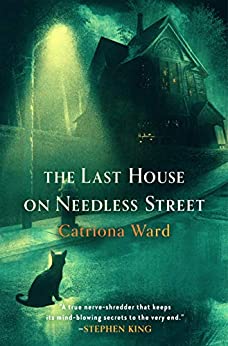
In a boarded-up house on a dead-end street at the edge of the wild Washington woods lives a family of three.A teenage girl who isn’t allowed outside, not after last time.
A man who drinks alone in front of his TV, trying to ignore the gaps in his memory.
And a house cat who loves napping and reading the Bible.
An unspeakable secret binds them together, but when a new neighbor moves in next door, what is buried out among the birch trees may come back to haunt them all. [from the publisher]
If you're a fan of nonstop creepiness, you'll want to go into this horror book without having read summaries or reviews. There's really not a lot that can be said without ruining the story. If you read it (or absolutely must know before reading) and want to email to ask me why I didn't rate this higher, I'll be happy to tell you. [It's a writing mechanism, not a story-specific thing.] Regardless of rating, the story kept my attention, and I was piecing together the clues.
There is so much creepiness in the story (from so many directions) that there's next to no relief. There were occasional tiny breaks in the tension, notably one each from Ted (the adult resident of the titular house) and Olivia (the feline resident of the titular house), that I hope make it to publication.
Most of the story is told by Ted and Olivia, with occasional chapters by Lauren (Ted's daughter) and Dee.
Thank you, NetGalley and Macmillan Audio/Tor Nightfire, for the audio ARC of the book in exchange for an honest review.
13 September 2021
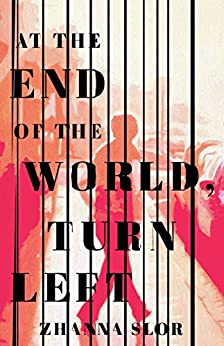
Masha remembers her childhood in the former USSR but found her life and heart in Israel. Anna was just an infant when her family fled but yearns to find her roots. When Anna is contacted by a stranger from their homeland and then disappears, Masha is called home to Milwaukee to find her.In 2008, college student Anna feels stuck in Milwaukee, with no real connections and parents who stifle her artistic talents. She is eager to have a life beyond the heartland. When she’s contacted online by a stranger from their homeland—a girl claiming to be her long-lost sister—Anna suspects a ruse or an attempt at extortion. But her desperate need to connect with her homeland convinces her to pursue the connection. At the same time, a handsome grifter comes into her life, luring her with the prospect of a nomadic lifestyle.
Masha lives in Israel, where she went on Birthright and unexpectedly found home. When Anna disappears without a trace, Masha’s father calls her back to Milwaukee to help find Anna. In her former home, Masha immerses herself in her sister’s life—which forces her to recall the life she, too, left behind and to confront her own demons. What she finds in her search for Anna will change her life, and her family, forever. [from the publisher]
This is being billed as both general adult fiction and a mystery/thriller. I disagree heartily with the mystery/thriller designation. In a nutshell, two sisters feel pulled to different places that seem like home to them. The book feels so much longer than its 299 pages because it is tediously detailed (about the wrong things, in my opinion), repetitious, and slow. Not one of the characters is appealing. There are a couple of potentially interesting scenes with the paternal grandparents, but they are basically the same scene repeated for both sisters. The ending is anticlimactic.
For sensitive viewers, the book includes illicit drug use/abuse, alcohol abuse, swearing, violence, personal endangerment, suicide, and theft/burglary.
I probably should have bailed at first sign of boredom and disgust. I kept reading because I was hopeful that it was going to redeem itself. Alas, I found nothing good or satisfying.
Nonetheless, I am grateful to NetGalley and Dreamscape Media for the audio ARC of the book in exchange for an honest review.
12 September 2021
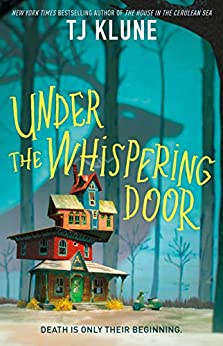
When a reaper comes to collect Wallace Price from his own funeral, Wallace suspects he really might be dead.Instead of leading him directly to the afterlife, the reaper takes him to a small village. On the outskirts, off the path through the woods, tucked between mountains, is a particular tea shop, run by a man named Hugo. Hugo is the tea shop's owner to locals and the ferryman to souls who need to cross over.
But Wallace isn’t ready to abandon the life he barely lived. With Hugo’s help he finally starts to learn about all the things he missed in life.
When the Manager, a curious and powerful being, arrives at the tea shop and gives Wallace one week to cross over, Wallace sets about living a lifetime in seven days. [from the publisher]
I really liked Klune's The House in the Cerulean Sea—published March 2020/read May 2020—so, I was thrilled to be granted the opportunity to read his new book before publication.
This book has two of my absolute favorite ingredients: lots of humor and relationships. It also has diversity, inclusion, heartbreak, and grief. Not many books make me cry. This one made me cry several times, particularly near the end, and out of sadness, rage, and joy. That's quite the trick!
There's a lot going on in the story, with several interlocking storylines. One storyline was particularly unpleasant, and I think the book would have been at least as good without it. I can't say that I enjoyed the aforementioned emotional rollercoaster, but it was incredibly effective. Even though Wallace was an unlikeable so-and-so in life, we're really rooting for him from very early on. Perhaps that's due to the tea shop residents: Mae (the reaper), Hugo (the ferryman), Nelson (Hugo's grandfather), and Apollo (the dog), who are all fantastic from the outset.
Thank you, NetGalley, Macmillan Audio, and Tor Books, for the audio ARC of the book in exchange for an honest review.
8 September 2021
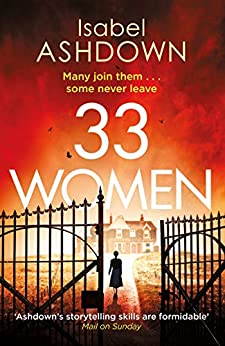
When sisters Celine and Pip get a call telling them their reclusive mother has died, the women are reunited at her riverside home in Arundel to pick up the pieces. But someone is missing—their middle sister, Vanessa, brutally murdered years ago and the victim of an unsolved case. As the sisters confront ghosts from the past, the discovery of another body in similar circumstances throws new light on Vanessa's death. Could there be more to her case than the police first thought? And what do the mysterious residents of Two Cross Farm, the neighboring women's commune, have to do with it? What secrets are lurking behind their locked gates? And what is the significance of the number 33? [from the publisher]
The publisher's teaser is as much as one needs before diving in to the book—for me to share more would ruin the surprises, of which there are several. The story is told in alternating chapters from the points of view of Celine, the oldest sister, and Bramble, a member of the women's commune. It was challenging, at first, to keep track of the speaker and the time [past (back to the 1970s) or present (2019)] at the start. Many other characters—predominantly but not exclusively women—come in to play, both from the world at large and the membership of the commune.
This appears to be Ashdown's ninth book (with another expected for publication next summer), but my first exposure to her work; so I wasn't sure what to expect. I'll definitely seek out more. My biggest compliment to this book is that I didn't want to stop reading it.
Thank you, NetGalley and Dreamscape Media, for the audio ARC of the book in exchange for an honest review.
6 September 2021
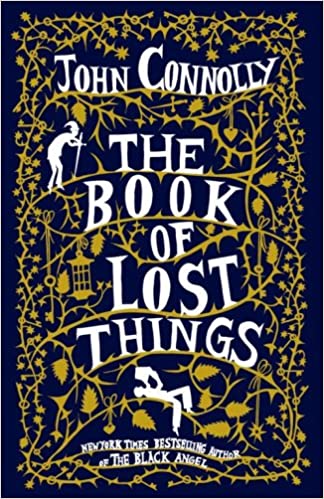
One possible explanation is the fairy tale aspect to TBoLT—I've never been a fan of fairy tales, generally, because so many of them are downright creepy and gross. But how is that different from so much of the fantasy I really enjoy? I'm not entirely sure.
David is a young preteen/teen who has lost his mother to illness. His father remarries and has a second son. David's books whisper to him. One day, he goes exploring and finds himself in another world, full of dangers. There is a lot of loss, trickery, and gore in this book.
If you like dark, mysterious fantasy with a side of reimagined fairy tales, give it a try.
3 September 2021
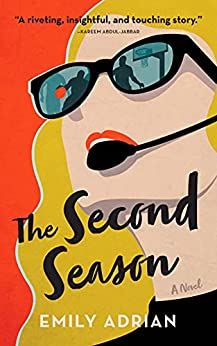
Ruth Devon starred for Georgetown Basketball back in college—until she injured her knee, married her coach, and found a new career calling games on the radio. Twenty years later, Ruth and her now-ex-husband, Lester, are two of the most famous faces in sports media. When Lester decides to retire from the announcers’ booth, Ruth goes after his job. If she gets it, she will be the first woman to call NBA games on national television.For now, Ruth is reporting from the sideline of the NBA finals, immersed in the high-pressure spectacle of the post-season. But in a deserted locker room at halftime, Ruth makes a discovery that shatters her vision of her future. Instantly, she is torn between the two things she has always wanted most: the game and motherhood. [from the publisher]
I'm a sucker for sports stories. Weekends growing up (except during the Midwest's relatively short sailing season) were spent in front of the TV watching hockey, soccer, basketball, baseball, tennis, (less) football, boxing, and even bowling—not to mention every sport in the summer or winter Olympics—with my dad. [Even better was getting to go to live games—that was a special (and occasional) treat.] Watching so much televised sports really does make a person feel like they know the commentators who visited our living rooms multiple times a week. So, I jumped at the chance to read The Second Season, which offered the bonus of a woman commentator (not common in the 1970s—I'm not sure I could name one from that time).
The book presents the difficulties of women in traditionally male-dominated fields, the challenges of juggling work and motherhood, and the crushing disappointment of career-ending injuries. The book is largely consumed by Ruth's regrets about being frequently absent from her daughter's childhood (the daughter is a high-school senior during the story) and her frustration and worry over whether she'll get the announcing job her ex-husband is vacating.
The action really didn't pick up until around the 80% mark, and then it jumps around strangely between present and future. I wish more attention had been given to some of the relationships, particularly between Ruth and a couple of other women sports reporters. There's also a plot point that seemed incongruous with her supposed strong desire for motherhood.
Thank you, NetGalley and Blackstone Publishing, for the audio ARC of the book in exchange for an honest review.
2 September 2021
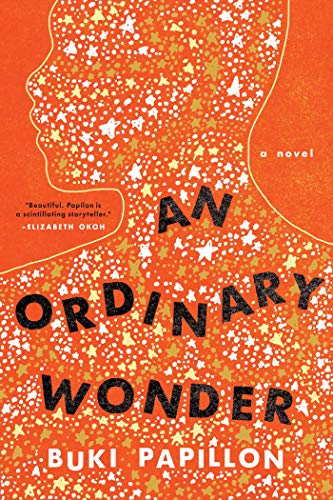
Richly imagined with art, proverbs and folk tales, this moving and modern novel follows Oto through life at home and at boarding school in Nigeria, through the heartbreak of living as a boy despite their profound belief they are a girl, and through a hunger for freedom that only a new life in the United States can offer.An Ordinary Wonder is a powerful coming-of-age story that explores complex desires as well as challenges of family, identity, gender and culture, and what it means to feel whole. [from the publisher]
Oto is an intersex twin being raised as a boy. Oto's unclear genitalia is considered shameful by their family and efforts are made to hide Oto's condition from the greater community because of the expected stigma. Oto's father left the family because of it; Oto's mother blames Oto and abuses them throughout their life. Oto's grandmothers appear unsympathetic as well. Oto's twin sister is their champion in early life, but eventually even she turns her back on Oto.
Once Oto escapes home for boarding school, some aspects of daily life are better; but there are still serious threats to their safety, including violent bullies. Two relationships at school are quite positive: roommate and fast friend Derin and art teacher Mr. Dickson. [There is a helpful school nurse, who plays a pivotal, though minor, role.] The story takes place "before" (mostly in the late 1980s, when Oto is 12–13, at home, also some brief references to Oto's birth) and "now" (in the early 1990s, when Oto is 14–16, at boarding school and beyond).
The heartbreaking violence and abuse Oto experiences make up the lion's share of the story—it's not a light read. Thankfully, there's also some fantastic humor, especially around family relationships. Other positive themes include chosen family and self-understanding. So, while the overall tone is very dark, ultimately, I was rooting for Oto throughout and eventually handsomely rewarded with happier events. This debut novel had me pretty hooked.
The audio edition is narrated by British film, television, stage, and radio actress Adjoa Andoh, of whom some Americans may know from Netflix's Bridgerton. Andoh's voice has quite an effective range, easily differentiating between male and female characters and between calm/melodic and shrill personalities/voices.
Content warnings include child abuse, rape, violence, bullying, homophobia, suicidal ideation/suicide attempts.
Thank you, NetGalley and OrangeSky Audio, for the audio ARC of the book in exchange for an honest review.
31 August 2021
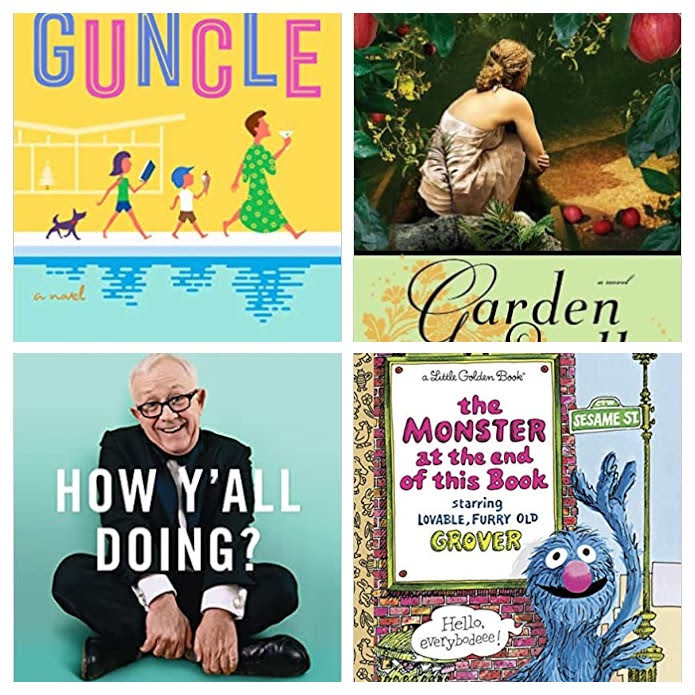
5-star reads
- The Monster at the End of this Book, Jon Stone (reread)
- The Guncle,Steven Rowley
4-star reads
- Garden Spells (Waverley Family #1), Sarah Addison (reread, 4+/5-)
- How Y'all Doing?: Misadventures and Mischief from a Life Well Lived, Leslie Jordan
honorable mention (3+ or 4-)
- Company Town, Madeline Ashby (3+)
- Scythe (Arc of a Scythe #1), Neal Shusterman (3+/4-)
- Have You Seen Luis Velez?, Catherine Ryan Hyde (4-)
- You're Going to Mars!, Rob Dircks (4-)
- Just One Damned Thing After Another (The Chronicles of St Mary's #1), Jodi Taylor (3+/4-)
- Sunny Days: The Children's Television Revolution That Changed America, David Kamp (3+)
- The Girl Beneath the Sea (Underwater Investigation Unit #1), Andrew Mayne (3+)
- Lethal Bayou Beauty (Miss Fortune Mystery #2), Jana Deleon (3+/4-)
31 August 2021
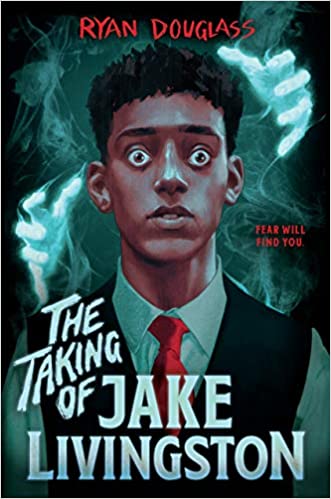
There's a lot going on thematically: coming of age/teen angst, mental health, bullying, incest, rape, racism, suicide, murder, gun violence, and homophobia. I don't think the horror vehicle was necessarily the best choice—all the real issues were overshadowed by the paranormal activity.
The story is told in alternating chapters/voices of Jake and Sawyer.
30 August 2021
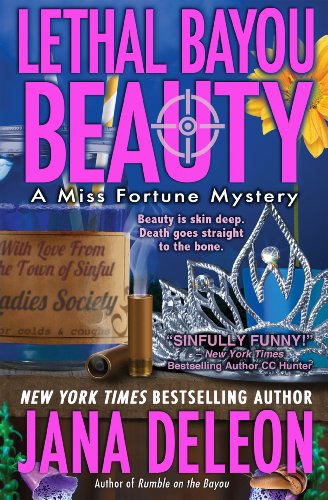
When aspiring actress Pansy Arceneaux returns to Sinful, Louisiana, to head up the beauty pageant portion of the Summer Festival, CIA assassin Fortune Redding knows she’s in for trouble. Her undercover identity as a former beauty queen makes Fortune the perfect choice to chair the event with Pansy, but Pansy’s abrasive personality makes it impossible to get through a single rehearsal without a fight.When Pansy turns up dead, Fortune is the prime suspect. [from marketing description]
This is the second in a 20-book (thus far) series. Like the first installment, it's a romp! Fortune is joined again by her best biddies . . . I mean, buddies . . . Gertie and Ida Belle, along with some help from Marie (the prime suspect in the first book). Hot Deputy Carter LeBlanc is back, along with a supporting cast of townspeople.
If you're unwilling to suspend disbelief, this isn't the book/series for you. But, if you need some silly fun that requires no thought or effort, enjoy away! I already have the third book locked and loaded for the near future.
29 August 2021
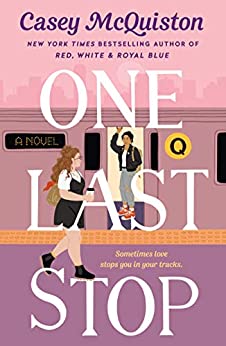
Not all is lost. I did like several of August's roommates, neighbors, and coworkers at Billy's diner. That hardly carries the story, though. Too, there was interesting contrast between 1970s and current attitudes around gender and sexuality.
I wouldn't say that I actively disliked OLS—it just didn't light me up, as it seems to do for so many readers. So, I wouldn't discourage you from reading this book, if it sounds appealing. I would definitely recommend McQuiston's first book instead or in addition.
Content warning: explicit sex scenes, excessive alcohol use/abuse, drug use.
26 August 2021
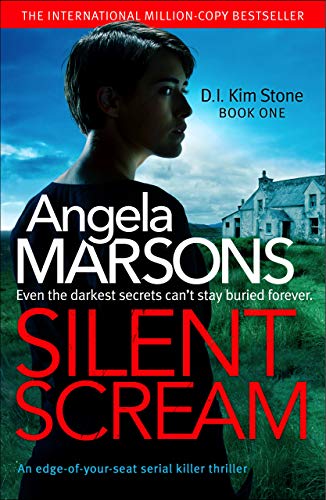
This book was highly rated by a couple of my bookish friends who generally seem to like things that I like, and the series seems to be highly regarded by a good number of readers. I thought this book was worth a shot. I'm guessing that I picked it up in an Audible sale. Sadly, the series doesn't seem to be available from our library, and I didn't love this one enough to invest in further purchases.
Pro: strong female lead; interlocking storylines; character with physical and communication challenges
Con: downright gruesome; disappointing/foreseeable plot twist
24 August 2021
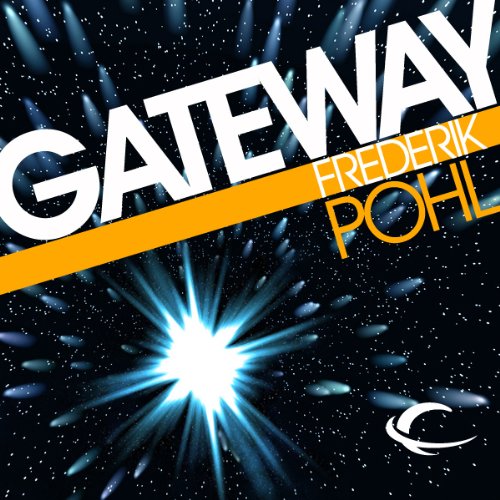
I wanted to love this book, both because of Pohl's incredible renown in the science fiction world and because I enjoyed the friendship of his wife, Betty Hull (who just recently died—she was a writer, professor, activist, and all-around smart and funny person). There were definitely aspects of this book whose influence I can see in the sci-fi writers who followed Pohl. I'll give him credit for that.
23 August 2021
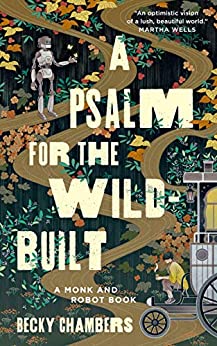
22 August 2021
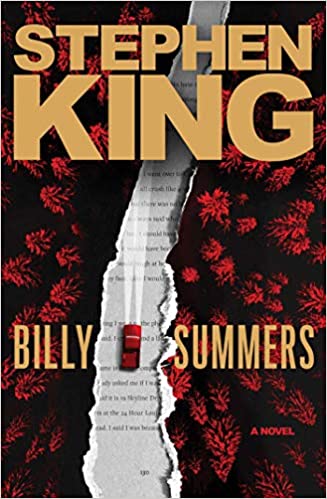
The premise: hired killer wants to retire. Given my enjoyment of TV/films of a similar premise—including Barry and Wild Target—I expected to really like this as well. Unfortunately, Billy Summers has little to none of the charm and humor of those.
There are some brief relationships between Billy and others (including neighbor children) that were pleasant enough, but it hardly makes up for the rest, especially as the book draws out so long.
Beyond the obvious violence expected in a murder story, content warnings include rape, retaliatory rape, and child rape. Ugh (to put it mildly)!
19 August 2021
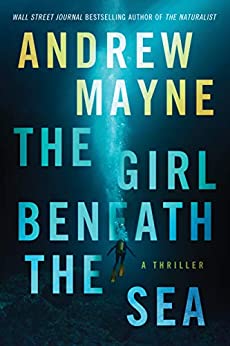
This first installment in a new series (published May 2020; second published early this year; third expected March 2022), this was interesting and engaging enough that I snagged the ebook and audiobook editions of the second installment in an excellent combo deal while the getting was good. I won't be in a mad rush to read the second one—there are plenty of things that need to come off the TBR list sooner—but, I'll look forward to reading it when the moment feels right.
There isn't typically much room for levity in a mystery/thriller, but there was a tiny bit of banter between Sloan and George:
“How come you have a kid but you’re not married?”“Because it’s not 1905. Women can vote now too.”
18 August 2021
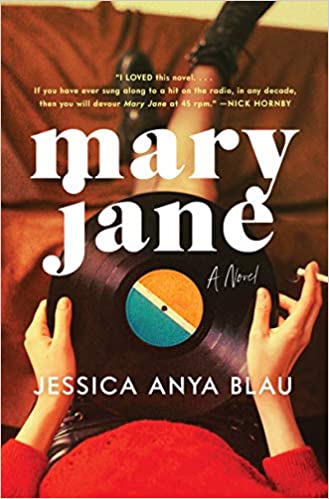
I'm not sure I've ever read a book so short that so quickly and completely changed my impression/enjoyment while simultaneously making it feel like the book was actually three times as long as it was.click here for G-rated thought
"You've got to be kidding me!"
click here for my true/naughty thought
"Bitch, please!"
Pro: the premise of 14-year-old Mary Jane's summer of caring for five-year-old Izzy [I was between their ages at the time of the story]; the idea of music uniting people
Con: Mary Jane's completely implausible level of naïveté; the utter neglect and endangerment on the part of four adults in Izzy's household; the very end (talk to me if/when you get there)
16 August 2021
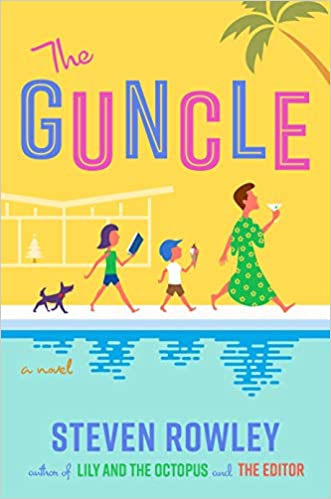
Patrick is a possibly-retired 40-ish sitcom actor who has been secluded for several years after the end of his hit series and the death of his life partner. After his college best friend/sister-in-law dies of cancer, his brother admits that he needs to enter rehab—could Patrick take care of his niece Maisie (age 9) and nephew Grant (age 6) for the summer in his Palm Springs home? As one would expect, everyone involved manages their grief and new circumstances differently and over time. There are a few additional characters who join the mix, including old and new agents, an older sister, a gay throuple next door, a dog, and a possible new love interest.
Fairly early in the book, Patrick and Maisie have this interchange in a restaurant:
Bacon is pigs and pigs are our friends. Do you want to eat our friends?If they taste like bacon!
15 August 2021
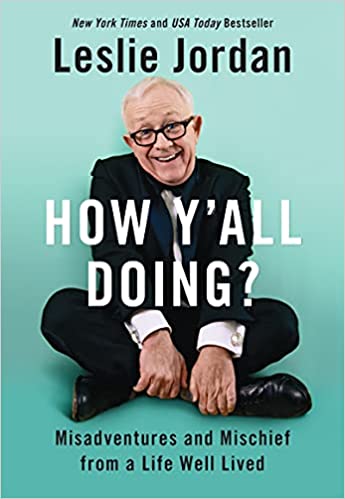
I flagged several quotes. Here's my favorite:
Aren't dreams the best? I think our dreams are what sustain us in hard times. Dreams are what keep us childlike. I love that they can grow and expand as we grow and expand.
14 August 2021
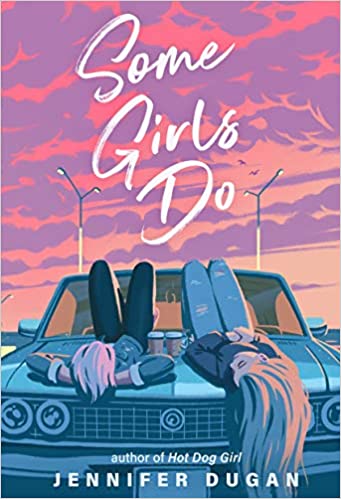
In this YA contemporary queer romance from the author of Hot Dog Girl, an openly gay track star falls for a closeted, bisexual teen beauty queen with a penchant for fixing up old cars. [from publisher website]
Morgan (the athlete) and Ruby (the beauty queen/mechanic) didn't capture my heart or attention. There's too much relationship nonsense and game-playing in the story and too little of the good things. Pros: realistic portrayal of wide range of family and community support (none to high) around gender and sexuality issues; "pretty" girls who are also smart and talented; community volunteerism of members of the LGBTQ and allies student group.
13 August 2021
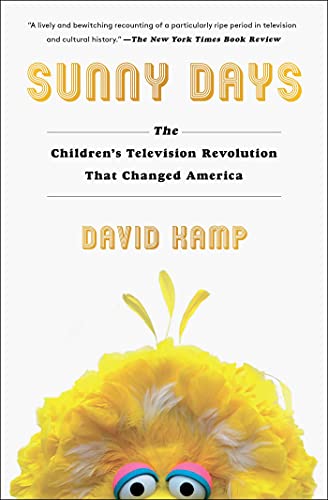
In Sunny Days, bestselling author David Kamp captures the unique political and social moment that gave us not only Sesame Street, but also Fred Rogers’s gentle yet brave Mister Rogers’ Neighborhood; Marlo Thomas’s unabashed gender politics primer Free to Be . . . You and Me; Schoolhouse Rock!, an infectious series of educational shorts dreamed up by Madison Ave admen; and more, including The Electric Company and ZOOM. It was a unique time when an uncommon number of media professionals and thought leaders leveraged their influence to help children learn—and, just as notably, a time of unprecedented buy-in from American parents. [from publisher website]
While evoking nostalgia, Sunny Days reads a fair amount like a textbook—that is, Kamp's research and interviews are interesting, but often dry. The author and I are the same age, so we shared this children's educational television journey. Much of the Sesame Street and Mister Rogers' Neighborhood coverage was familiar to me from my previous reading. It's not often, though, that Free to Be . . . You and Me, The Electric Company, and ZOOM come up now—that was a special treat. Toward the end of the book, Kamp brings up later children's television that didn't make the quality grade of these shows from our childhood (including/particularly offerings that were really just promotional tie-ins), and good children's educational television of my kids' generation, including Bear In the Big Blue House, and Blue's Clues, among others.
12 August 2021
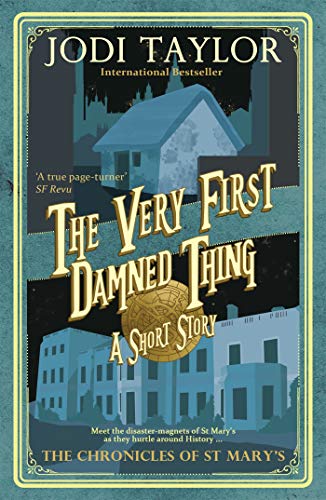
11 August 2021
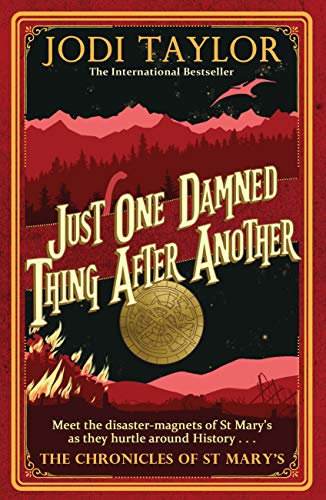
In this series, protagonist Dr. Madeleine "Max" Maxwell gets recruited to a secret society in which historians time travel to observe and record history in its own time. The story was moving right along, with excitement and witty banter, and I was having a grand time until a scene that I'm guessing was supposed to be hot/sexy/passionate was decidedly rapey instead. That, along with a rush-job toward the end when the historians were visiting the Library of Alexandria, cost the book a couple of rating dings.
If you're looking for some (mostly) silly, sci-fi/time travel fun, and you're willing not to think too hard about it, this could be a book for you. I'm very possibly going to keep going with the series, at least for a bit.
10 August 2021
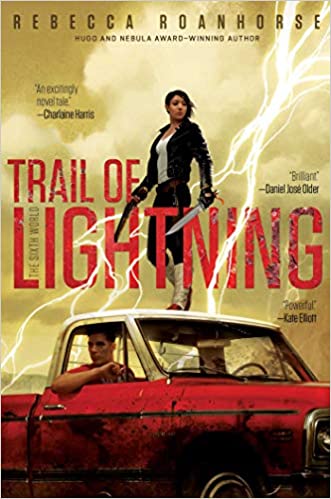
Maggie Hoskie is the monster hunter main character. Is this a good thing or a bad thing? She's depended on when a town needs her help, but generally vilified by others and herself.
Some of the language and themes—including an elder medicine man; the tradition of introducing oneself in relation to one's family origins/skills/blessings; and a pivotal role for Coyote—will be familiar to readers of the Hillermans. The post-apocalyptic and monster hunter aspects dominate the story and make it much less interesting. The book becomes less mythology and mystery and more extreme violence and dull repetition. There is a cliffhanger ending that made me wonder whether I might read the second installment out of morbid curiosity. I think blogging my reading impressions has effectively quashed that curiosity.
9 August 2021
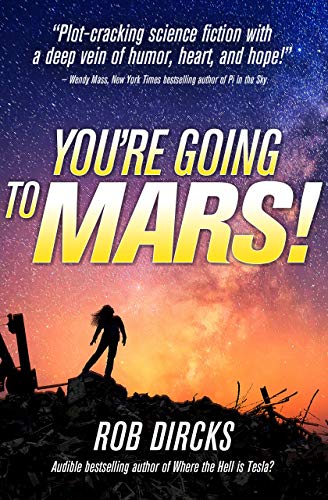
If, like I, you occasionally enjoy very silly science fiction with a side of social commentary and/or pop culture references, this might be a pick for you. I didn't enjoy this one quite as much as Redshirts (John Scalzi) or We Are Legion (We Are Bob) (Dennis E. Taylor), but it's along the same lines.
8 August 2021
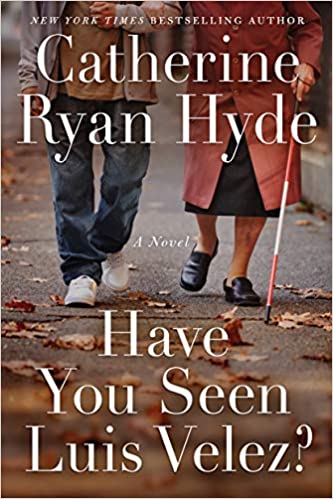
The story develops slowly and with some whiny awkwardness. Some reviewers took exception with the racial and social justice themes; I thought those themes were handled appropriately. While the friendship Raymond forms with Millie is one of the main focuses of the story, other notable/important/sweet relationships stem from his search for Luis.
7 August 2021
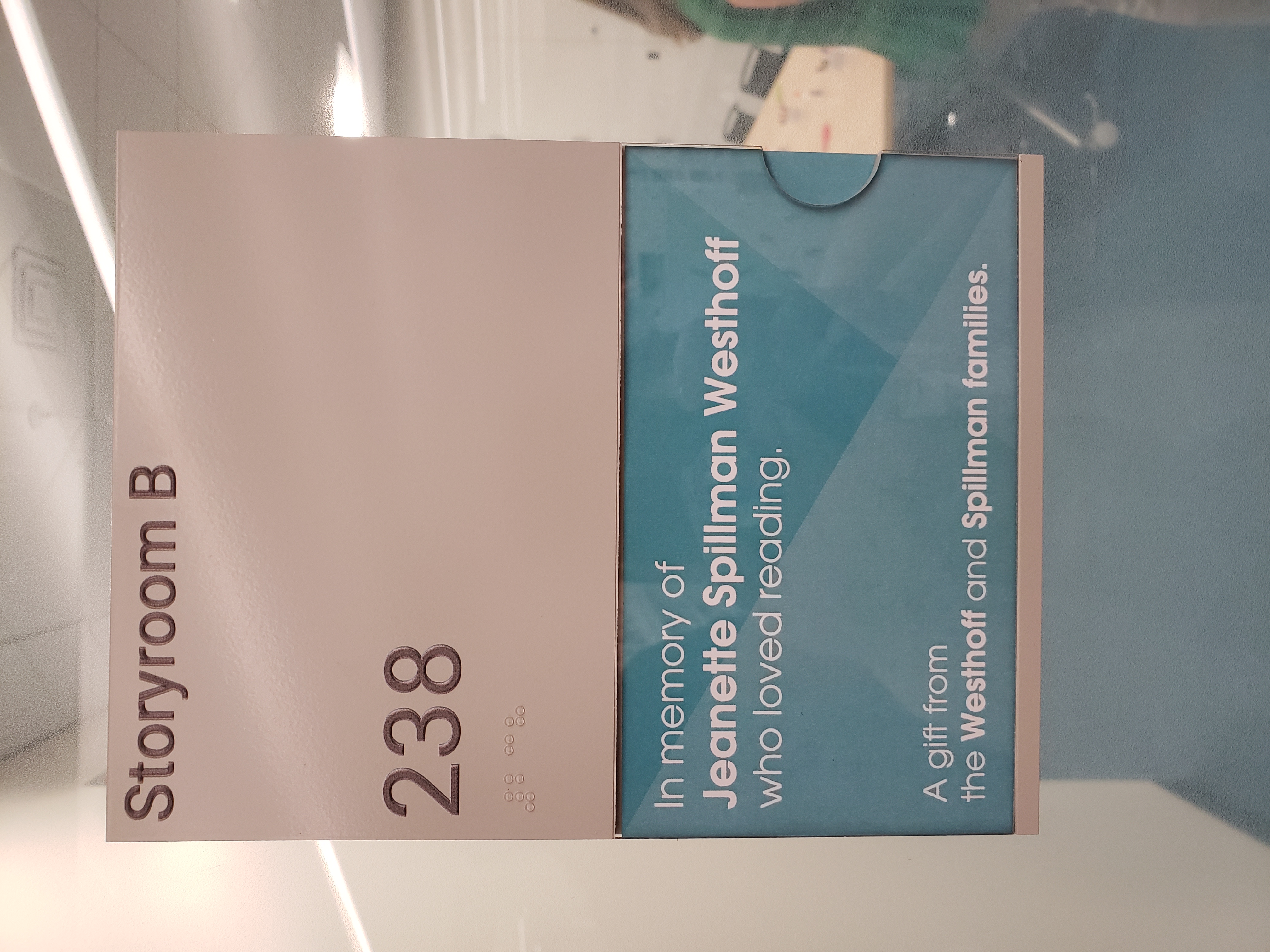
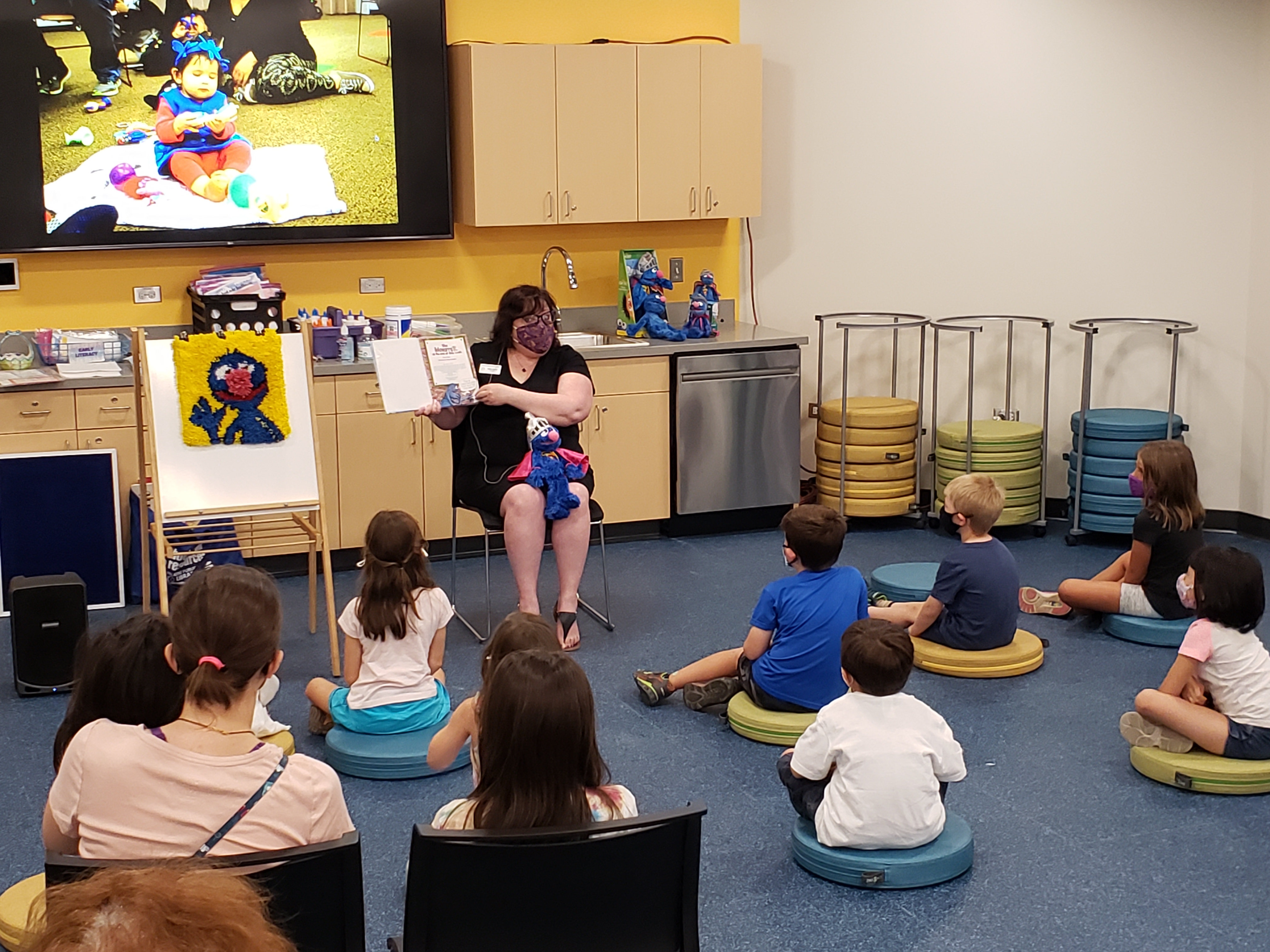
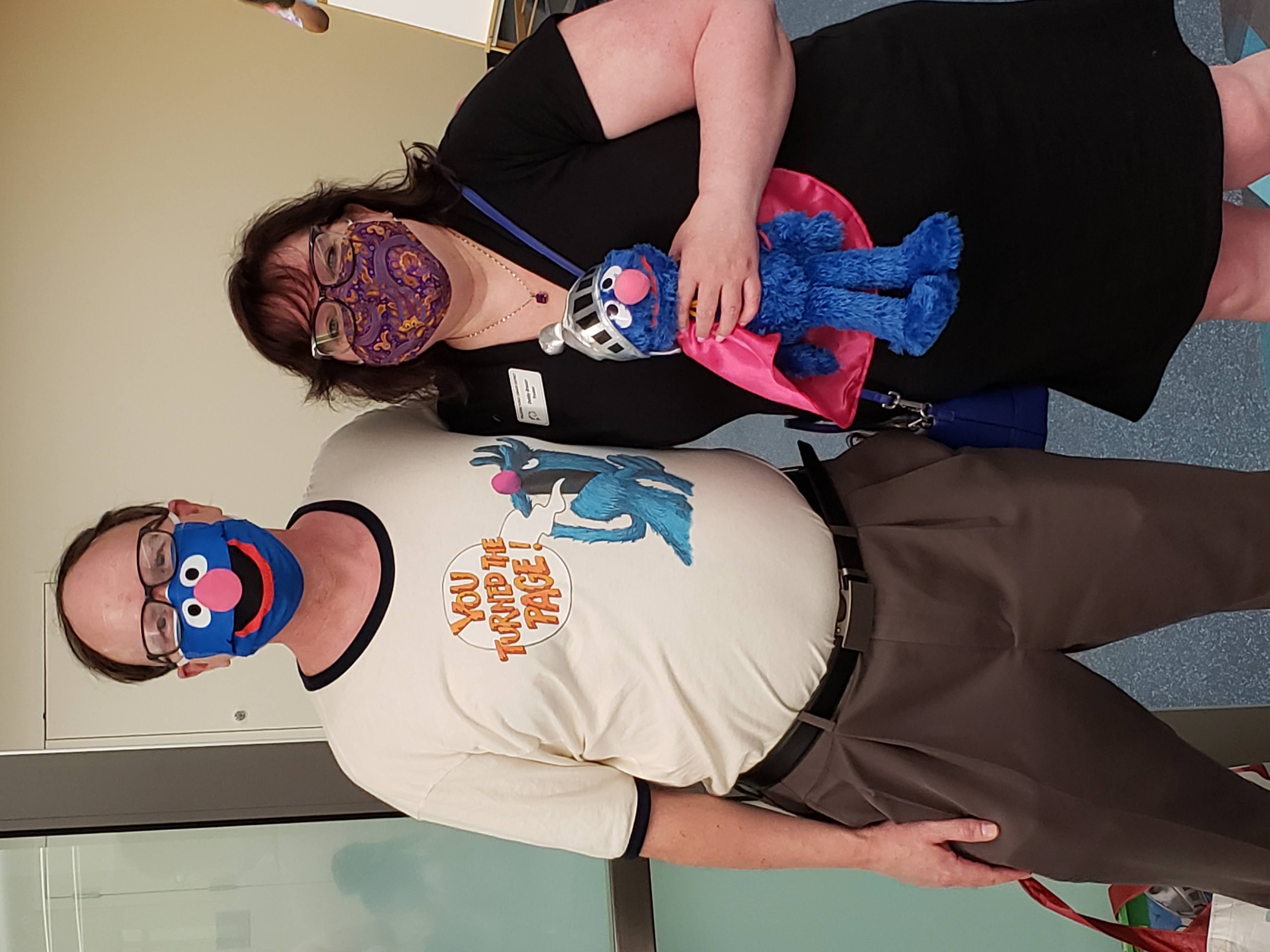
Super Grover—a thoughtful and perfect gift from Number One Son—was my social media cover photo at the time that I first met Jeff and Jeanette. Since then, we've discovered many other shared affinities.
May Jeanette's memory be a blessing. I know that countless children and families will experience delight in the beautiful storyroom dedicated to her for years to come.
7 August 2021
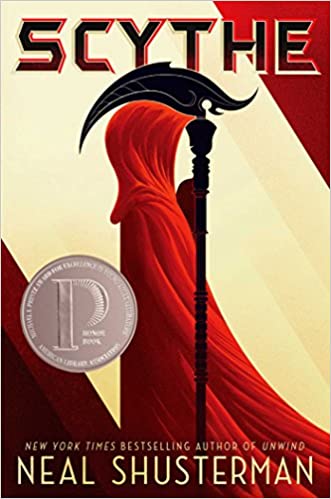
A world with no hunger, no disease, no war, no misery: humanity has conquered all those things, and has even conquered death. Now Scythes are the only ones who can end life—and they are commanded to do so, in order to keep the size of the population under control.Citra and Rowan are chosen to apprentice to a scythe—a role that neither wants. These teens must master the “art” of taking life, knowing that the consequence of failure could mean losing their own. [from publisher website]
I'm not entirely sure how I feel about—or how to rate—Scythe, which is a YA science fiction/fantasy/dystopia. It's a fine contribution to its genre. I wanted to know what was going to happen next, and I've already decided to read the second installment. There were some predictable turns; there were a couple of fun twists. I have reservations about extreme violence (and other human ills) being considered entertainment.
Fun fact: Author Neal Shusterman solicits fans to name his characters, picking one fan's first name and matching it with another's last name. One of the main characters in Scythe—Rowan Damisch—got his last name from a family friend of ours, Bridie (we're friends with the entire Damisch family, but Bridie is the Shusterman fan). Sadly, the correct pronunciation of the family name wasn't verified (it's a long "a," as in "dame"). I know this because I read the book with my ears. But even those who read it with their eyes can tell because of one of the chapter names: "Damisch Control" (meant to sound like "damage control"—cute, no?). Oh, well—if Rowan appears in the next installment, I'll just continue to translate in my head.
3 August 2021
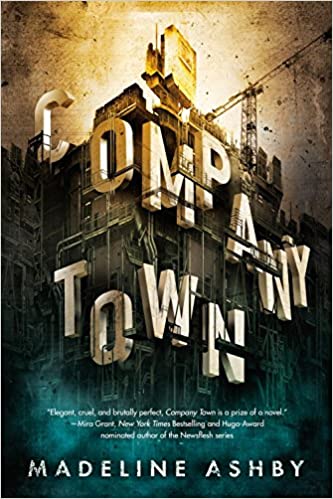
Hwa is the last organic (not bioengineered/enhanced) woman in her community. As the story opens, Hwa works as a bodyguard and physical/personal safety trainer for sex workers, but quits to protect and train the young, male, future head of the community's wealthiest and most powerful family/corporation.
It took a while to get into the story, and it wasn't all smooth sailing once I got there. The book seems choppy—it can't make up its mind what it wants to be. There are some ultraviolent sequences, including fighting and serial murder. There are a couple of affectionate relationships late in the story, some parts of which work better than others. Overall, it's not all bad. I'm glad I stuck with it.
1 August 2021
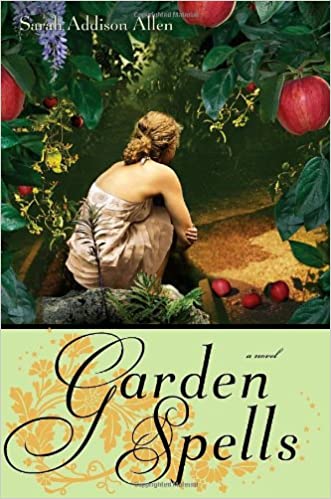
Back to Garden Spells. . . . The Waverley women—Aunt Evanelle, Claire (older sister), Sydney (younger sister), and Bay (Sydney's young daughter)—have magical powers, each one a particular gift unique to herself. Claire can probably be considered the main character of this installment, though most characters figure prominently in the story. Beyond the Waverleys, strong players include Claire's neighbor, Tyler; gay shopkeeper, Fred; Sydney's childhood friend, Henry, who is now a dairy farmer with his grandfather; Sydney's childhood frenemy, Emma, who ended up marrying Sydney's high school sweetheart; and more.
I have no record of my original rating or impressions of the book, as 2007 predates any of my lasting bookish apps/sites. I thoroughly enjoyed this reading—some magical realism, a bit of mystery, interconnected characters with and without history—it was purely entertaining (though not all happy—content warnings include child abandonment and spousal abuse). Maybe Aunt Evanelle is to thank for bringing me this book again at this time.
31 July 2021
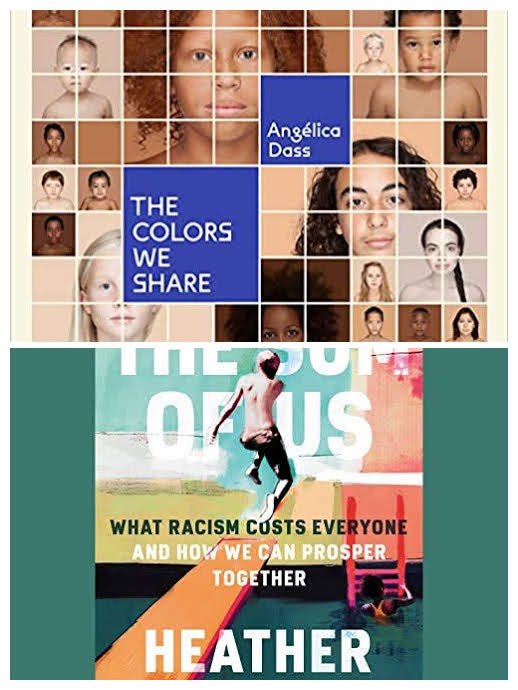
5-star reads
- The Sum of Us, Heather McGhee (reread; 5-)
- The Colors We Share, Angélica Dass
honorable mention (3+ or 4-)
- Rabbits, Terry Miles (4-)
- The Wee Free Men, Terry Pratchett (3+)
- The Ugly Cry: A Memoir, Danielle Henderson (3+)
- Wings of Ebony, J. Elle (3+)
- The Advocate, Teresa Burrell (3+/4-)
31 July 2021
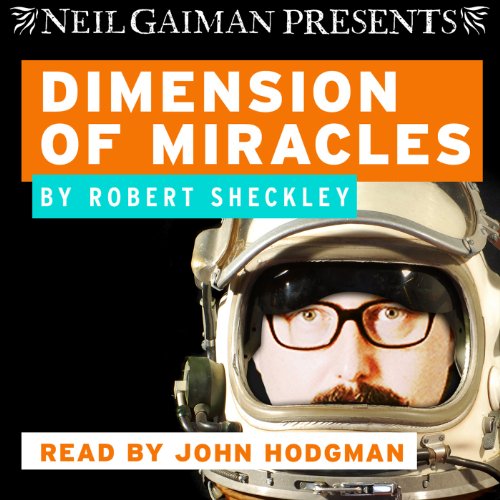
The book was first published in 1968. It's among favorite books of Neil Gaiman's to which he is trying to bring new/more attention by hand-choosing narrators and producing audiobook editions. I'm a fan of Gaiman's (even though I don't love everything he writes—I adore so much of it), and there have been many comparisons made between this book and Douglas Adam's The Hitchhiker's Guide to the Galaxy series (written later than DoM), which I have read and enjoyed multiple times. It seemed like a no-brainer that I would love Dimension of Miracles. Not so much. While there were a few funny or thoughtful bits, I just didn't find it either engaging or silly enough for my tastes. Maybe I prefer British silliness to American silliness. The book is quite short, so I didn't have to make a huge investment of time.
30 July 2021
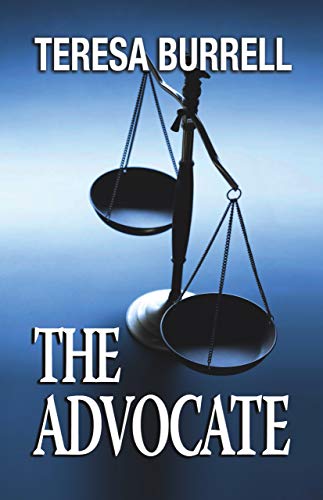
I found much of the language awkward or stilted, and didn't find the Bob relationship particularly plausible. Hopefully, both become better as the series progresses.
I liked several of the relationships formed during the course of the story. The tension and action were paced well. There were lots of moving pieces that came together interestingly, if not completely plausibly.
I went in without expectations, and was pretty well-entertained. I would consider reading another installment.
29 July 2021
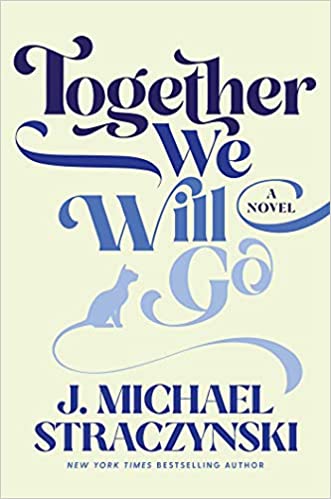
The premise of the book is that a young (late–20s) failed writer buys an old bus, hires a driver, and places an ad to solicit others who want to commit suicide to join his cross-country journey to drive off a beautiful California cliff at sunset. The only cost to participate (beyond personal food and incidentals) is journaling along the way—by voice recording, text messages, and emails—uploaded to a private server. A motley crew of participants join. We get to know them individually and collectively.
The book starts with some commentary on the state of the union (USA)—notably how poorly the country serves its people in terms of education, jobs, wealth, health, and so on. Certainly, the health care issue pops up throughout.
I marked four passages: two serious and two humorous. Despite the occasional inclusion of humor and tenderness, the bulk of the book is decidedly dark and painful. I can't say that I would actually recommend it to anyone.
27 July 2021
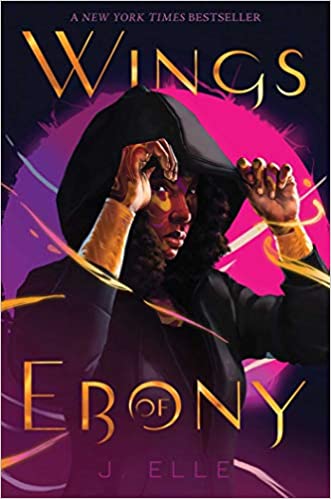
Ultimately, the story is about racism, bigotry, and power (personal, stolen, abused). Will the fantasy vehicle help the message be received by those who need to hear it?
I marked 10 passages, of which I'll share just one, as a taste.
Around truth, some people act like roaches when the lights come on—they scatter, trying to not hear it. [Chapter 29, 72%]
Wings of Ebony, the first of a series, is a YA urban fantasy. I was occasionally mildly annoyed by it (that's OK—I'm not the target audience), but it was a decent read, overall. If subsequent installments come onto my radar at a convenient time, I might consider reading them; though I doubt I'll seek them out.
25 July 2021
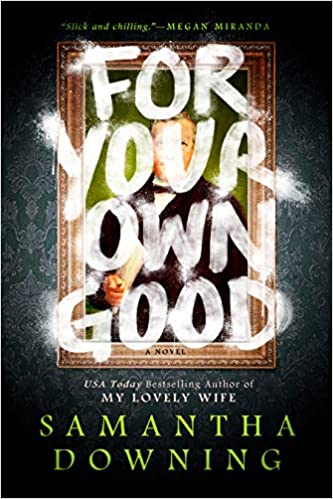
This is my first Downing book. I might try one or two of her previous books if I'm really at a loss for what to read next/something to borrow. My reaction to even making that statement tells me that it's unlikely to happen. I prefer that authors in these genres at least try to stump me (in mysteries) and to create tension slowly and rising throughout (in thrillers).
22 July 2021
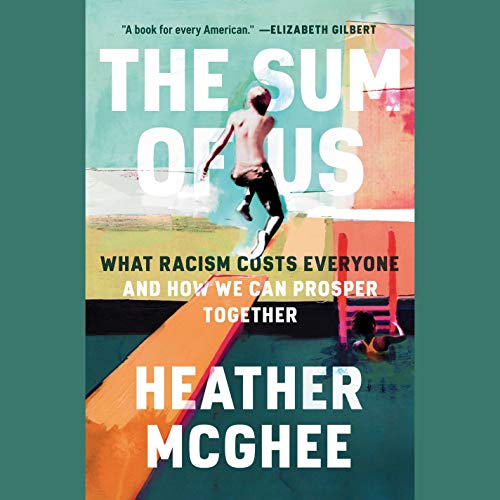
I was so touched by The Sum of Us when I read it in early April that I reached out to my friend Cammy—Co-Director of Programs for our League of Women Voters chapter—to see if the book was on her radar for discussion. It was, but she hadn't read it yet. She asked me if I'd be willing to moderate discussion for the group. Yes, I certainly would! So, this week, I reread and moderated two discussions. [Rounding out the Programs team is Gayle. The team does a spectacular job keeping us enlightened and productively entertained.]
During my rereading, I couldn't stop noticing and thinking about pretty much everything McGhee wrote showing up in our daily lives. Being able to talk about the book/share thoughts in the two groups was interesting. We come from a range of ages, backgrounds, and philosophies, so we had the opportunity to look at things from different perspectives.
One of the examples McGhee uses to illustrate how racism has caused people to destroy a public good is public pools. When I asked the discussion group members what other public goods we're missing out on because of racism, they came up with so many responses, including health care, child care, education, infrastructure, environment, and banking.
Undoubtedly, I think everyone should read this book. And, if you want to talk about it, you know where to find me.
20 July 2021
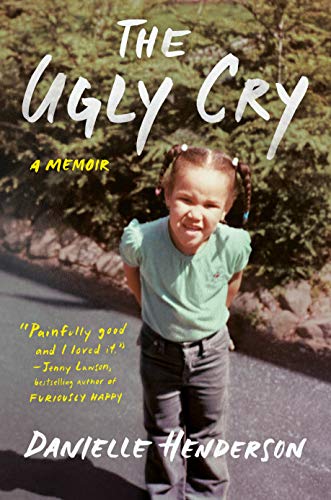
Henderson was raised largely by her maternal grandparents (with the greatest influence being her grandmother) because of her mother's neglect and other poor choices, including her relationship with a drug-addicted, abusive boyfriend. At one point, Danielle recalls her younger self thinking,
We could have gotten away from him forever and she brought him back. [Chapter 10, 42%]Throughout the memoir, Henderson reflects on her complicated relationship with her mother, whom she missed despite the traumas endured when living with her.
Danielle describes her upbringing frankly, with all its fear, frustration, sadness, stigma (for being poor, especially, but also for being Black, for not knowing her father, and for living with her grandparents), and violence (her mother's boyfriend hit not only her mother, but also Danielle, her brother, and the boyfriend's son from another relationship; and he sexually abused Danielle, which she kept secret from everyone for a very long time).
Henderson also uses a lot of humor, often by describing her grandmother's eye-rolling, sassy attitude, and foul mouth. Sometimes the humor comes from her own experiences (that is, separate from her relationship with her grandmother), as in the description of her thought process when forced to participate in confession as a seven-year-old parochial school student (though she didn't attend church). At some point, she has a realization.
It slowly dawned on me: if I could lie and be quickly forgiven, there was nothing to stop me from actually doing some of the stuff I was making up. Catholicism flipped a switch and turned me on to a life of crime. [Chapter 5, 24%]There are also amusing anecdotes about a surreptitious trip into New York City with a teenage friend and Danielle's first car purchase.
This is not a light read, but it was a quick read.
18 July 2021
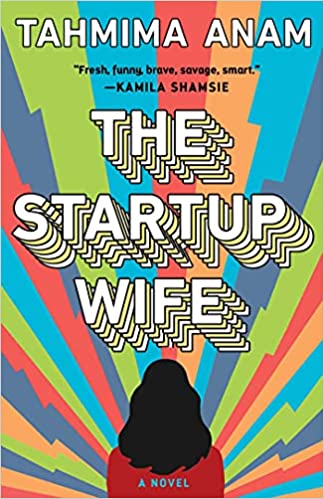
Newlyweds Asha and Cyrus build an app that replaces religious rituals and soon find themselves running one of the most popular social media platforms in the world. [from the publisher website]
Asha is the coding genius—she's the one really making the magic of the platform, but she isn't given power or credit. Cyrus is the charismatic front man who becomes worshipped as a messiah by the platform's users. Best friend Jules rounds out the tech startup trio, but doesn't end up being a significant figure in the story. Most of the story is commentary on social media and the diminishment of women—both in the tech industry and in general. In addition to gender, culture and religion make appearances.
There are two quotes that encapsulate the story, both spoken by Asha.
Because somewhere inside my little immigrant heart, I'm not interested in telling the truth. I just aim to please. [Chapter 8, 42%]
You diminished me, and I allowed it to happen. [Chapter 15, 90%]
I didn't find the story or characters engaging, even though the timing, setting, and some of the experiences are familiar. I am glad to have read it, especially so soon after publication.
15 July 2021
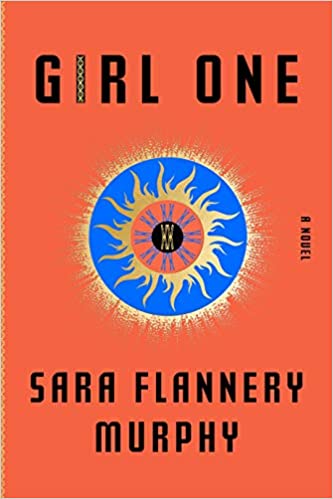
Obvious comparisons have been made between this book and the television series Orphan Black, of which I was a fan. Sadly, while Orphan Black kept up the creepy tension throughout five seasons totaling 37.5 viewing hours, Girl One couldn't sustain it for just shy of 16 reading hours (if one reads at the rate provided in the audio edition, which I did not). While something tiny is learned at each step of the journey, there is so much repetition and extraneous (and boring) conversation that the pace is painfully slow. Honestly, by the time we actually got to any even remotely substantial reveal, I just didn't care that much. It was anticlimactic. Still, it wasn't a terrible read. I certainly wouldn't warn anyone away from reading it if it sounds appealing.
12 July 2021
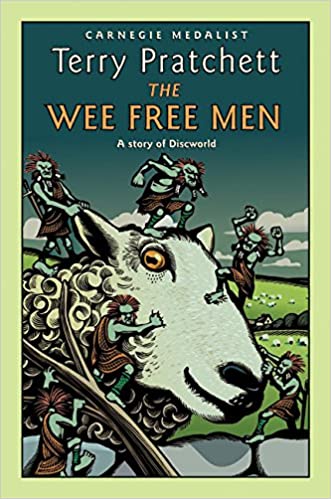
Armed only with a frying pan and her common sense, Tiffany Aching, a young witch-to-be, is all that stands between the monsters of Fairyland and the warm, green Chalk country that is her home. Forced into Fairyland to seek her kidnapped brother, Tiffany allies herself with the Chalk's local Nac Mac Feegle—aka the Wee Free Men—a clan of sheep-stealing, sword-wielding, six-inch-high blue men who are as fierce as they are funny. [from dustcover front flap]
This is the palate cleanser to which I referred a few blog entries ago. It's 30th in Pratchett's Discworld series, first in the Tiffany Aching subset, and my first Discworld experience. Reading the audio edition added to the fun (while providing a bit of a challenge in understanding the dialect). I tagged several passages in my print edition, including this nugget:
Ordinary fortune-tellers tell you what you want to happen; witches tell you what's going to happen whether you want it to or not. Strangely enough, witches tend to be more accurate but less popular. [p. 2]and this, about fairy godmothers:
Never cross a woman with a star on a stick, young lady. They've got a mean streak. [p. 62]
As a purely pleasurable read, this definitely fit the bill, with lots of laughs and silliness, a bit of inspiration, and not too much drag.
9 July 2021
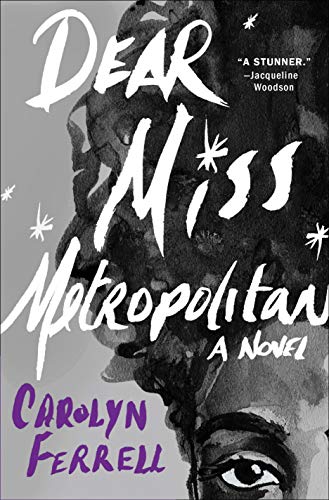
8 July 2021
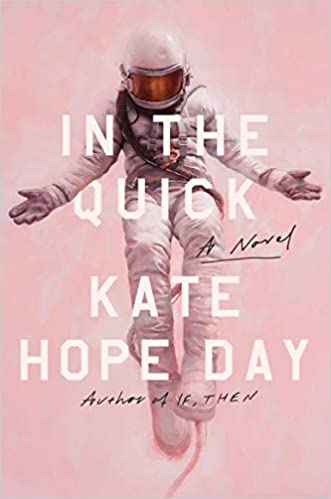
Early in the book, June relays this conversation with her uncle:
"Only one way to find out how it works," my uncle's voice said. "Take it apart," I said.That really sums up the best of the book: times that June's uncle's nurturing and teaching are recalled.
A portion of the book may bring to mind The Martian. Overall, though, I found the book dull. Luckily, it wasn't terribly long.
6 July 2021

Rabbits is a secretive multiplayer alternate reality game that has gone through 10 iterations when the book begins. It's so mysterious that no one knows for certain the identities of the winners or what they've won. Our protagonist, K, is obsessed with game, even presenting regular talks on the subject for other followers.
[Neither here nor there: K's gender seems to be unknown or disputed. I read the character as female. It wasn't until I had finished the book and started reading other readers' reviews that it became evident that the character has been interpreted as male and female (I wasn't the only one to read K as female). Like I said, it really doesn't matter. I was just surprised when I read others' reviews.]
Early in the book, K is approached by billionaire Alan Scarpio, who is rumored to have won the sixth challenge. Scarpio tells K that something is terribly wrong with the game—if it's not fixed before round 11 begins, there will be dire consequences worldwide. Indeed, within days, people are going missing (including Scarpio) and getting killed. The rest of the book follows K trying to solve the mystery and fix the game, sometimes accompanied by gaming friend/budding love interest Chloe.
I've never been a serious role-playing or video game player, myself, but that doesn't dampen my enthusiasm for books heavily relying on that culture (like this, Ready Player One, and the like). Genres listed on Goodreads for Rabbits include science fiction, fantasy, thriller, mystery, and more. There are definitely elements of each.
I waffled over my rating. Overall, I was completely hooked on the story. However, there were several parts that I found clunky or laughable, when they were supposed to be tension-creating. So, I dinged my rating a bit. Ultimately, I quite enjoyed reading this.
Content warning: There are multiple instances of extreme violence (to which I tend to be sensitive). I don't remember any of them being prolonged—that is, it's really gross for a moment and then the story moves on pretty quickly.
Apparently, there is a related podcast, but this book is considered a standalone story, with no podcast knowledge required. [I didn't learn this until I finished the book, either.]
2 July 2021
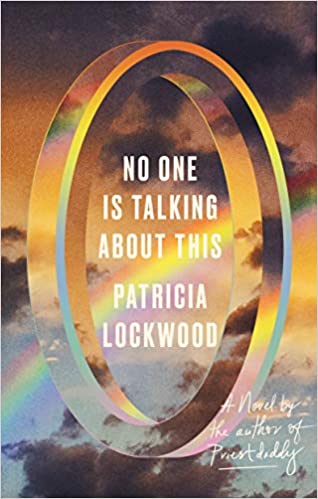
Several reviewers compare this book's writing style to that of Jenny Offill's. There may be something to that. I've only read one of Offill's books—Dept. of Speculation—to which I had a similar reaction. That is, I was underwhelmed, but I'm not sorry I read it. My bookish friends who have read these books rate them highly.
1 July 2021
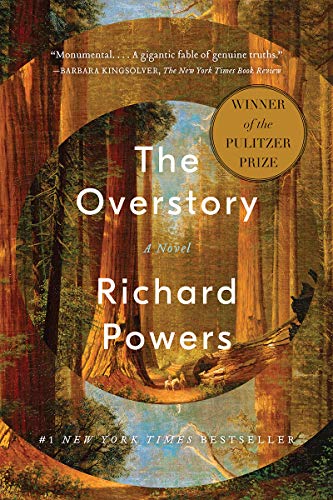
30 June 2021
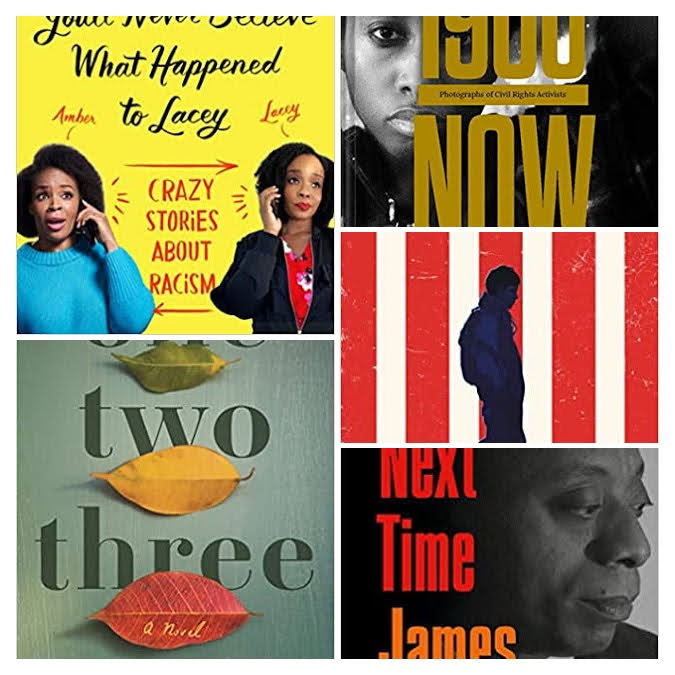
4-star reads
- Indivisible, Daniel Aleman
- You'll Never Believe What Happened to Lacey: Crazy Stories about Racism, Amber Ruffin & Lacey Lamar (4+)
- One Two Three, Laurie Frankel (4+/5-)
- #1960Now: Photographs of Civil Rights Activists and Black Lives Matter Protests, Sheila Pree Bright (4+)
- The Fire Next Time, James Baldwin
honorable mention (3+ or 4-)
- Jim Henson: The Biography, Brian Jay Jones
- Tilt-a-Whirl (John Ceepak #1),Chris Grabenstein
- The Elementals, Michael McDowell
- The Box in the Woods (Truly Devious #4), Maureen Johnson
- The President's Daughter, Bill Clinton & James Patterson
30 June 2021
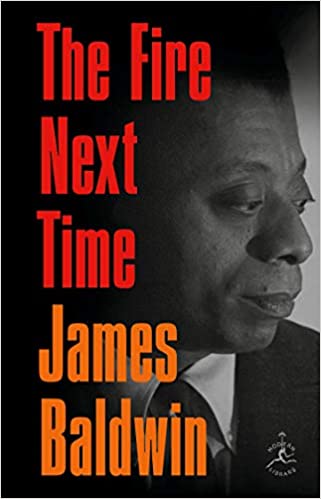
This is a slim volume, including a letter to his nephew and an essay. It's powerful and thoughtful. After giving myself some time to digest, I definitely expect to read it again. I may suggest it to one or two of my book discussion groups. That's all I've got for you. Go! Read!
29 June 2021
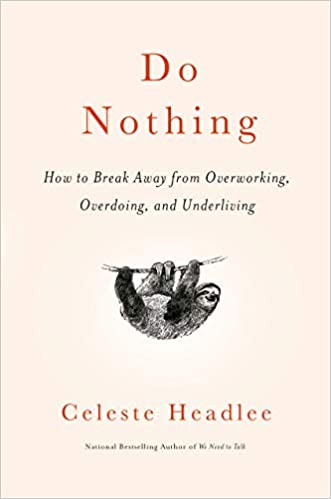
Part I: The Cult of Efficiency gave an interesting history of work (going waaaaay back), and talks about industrialization, changes in productivity, social interaction, leisure time, open office plans, studies on most effective work hours/day, and more. If you're a history or data geek, you might get into this section. At the very least, it got me thinking—and talking—about how many things are wrong about the labor mindset in the USA and possible solutions.
Part II: Leaving the Cult—How to Go from Life Hack to Life Back gives six "Life-Back" ideas, but (again, in my humble opinion) falls short of offering anything really fantastic, fresh, original, or, frankly, doable for the masses. Without a huge change in mindset in the country (the background and fallibilities of which are mentioned in the book), there's little that can be done to improve the plight of the vast majority of the working population. That is, the huge corporations (and the politicians in their back-scratching circles) aren't likely to want to change the wealth distribution—the greater good be damned.
28 June 2021
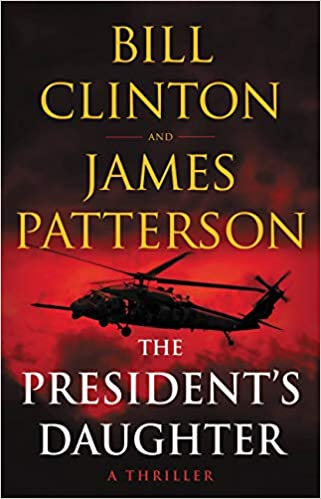
Pros: political strategy, action, loyalty, talented or powerful women
Cons: graphic violence, went on too long (could have been written and edited more tightly)
26 June 2021
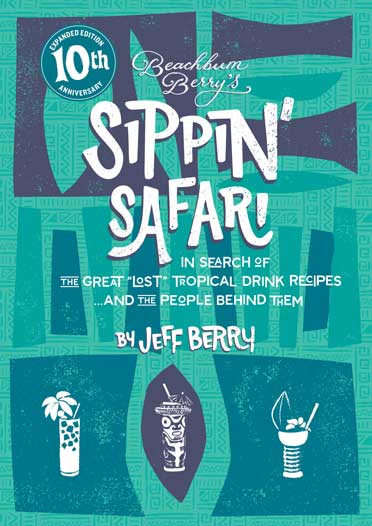
25 June 2021
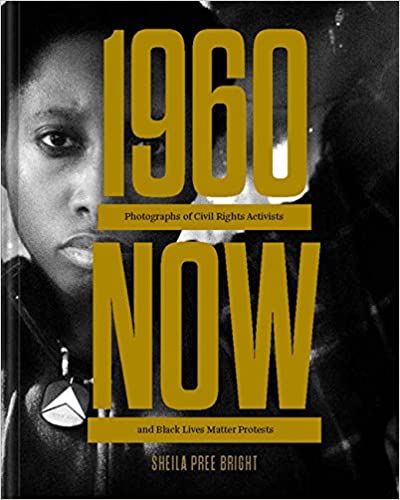
The introduction was written by Alicia Garza, Cocreator of Black Lives Matter Global Network, and brief essays from others are interspersed between the sections of photography, largely organized by the cities in which they were taken. [The exceptions are the initial "Faces of a Movement" and final "Black Lives Matter Meetings" sections.]
The initial set of photographs are close-up portraits of 1960s and current activists, generally created between 2013 and 2015. The photographs of marches are compelling, heartbreaking, powerful, and beautiful (this may seem an incongruent descriptor—I think you'll recognize the beauty when you see the images yourself).
25 June 2021
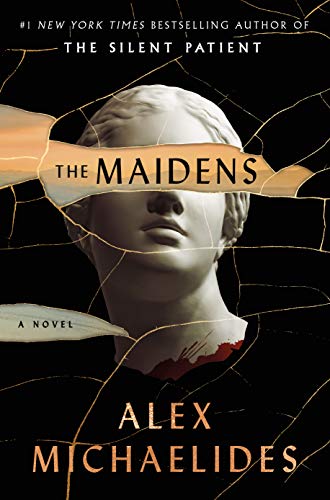
Not surprisingly, red herrings abound. That's fine. It didn't take me terribly long, however, to guess the identity of the real killer, who is revealed during a ridiculous monologue at the second-to-last moment of the book. [I don't want to say more about how I identified the real killer for fear of spoiling it for you.] I really became irritated with the epilogue, in which the main character reacts to the reveal so outrageously that I don't buy her very being. Her reaction seemed illogical and uncharacteristic to me.
As always, because reading preferences are so very subjective and personal, you shouldn't be dissuaded from reading this or any other book I review. Maybe—like I have with my friend—you've already figured out pretty well how to gauge your expected enjoyment based on my enjoyment (or lack thereof). It's a handy metric to have.
23 June 2021
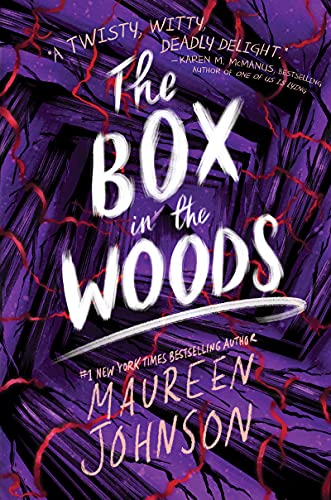
Still, it's a pretty good story—good character development, teamwork, and plot twists. In this one, Stevie is approached by the new owner of a summer camp (now operating under a different name) at which four teenage counselors were murdered in the late 1970s. He has heard of Stevie, of course, because she solved the Ellingham mystery; and he wants her to come solve this mystery as fodder for a true crime podcast. As an enticement, she's allowed to bring friends (Nate and Janelle) to "work" at the camp with her as a cover. [David also makes an appearance, but isn't as immediately involved.] Stevie searches for clues on the camp premises, but also within the small nearby community from which the victims came, including interviewing family members and friends of the victims.
If there are more Stevie Bell books coming, I'll happily read them.
21 June 2021
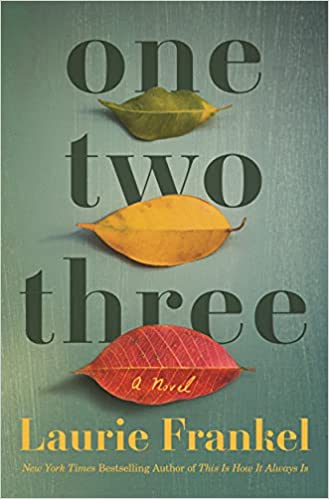
Sixteen-year-old triplets Mab (One), Monday (Two), and Mirabel (Three) Mitchell (the syllables in their names match their birth order) live in a small town whose water was poisoned by a chemical company before their births. Pets, plant life, and wild animals all died. People contracted cancers and other maladies. Many children were born with congenital anomalies (including Mirabel). Their dad, who worked in the plant, died weeks before the triplets were born. Their mom, Nora, has been fighting ever since to get justice for her family and town. After the damage is done, the chemical company deserts the plant and leaves town, never taking any responsibility for the devastation it left in its wake.
The story is narrated by the three girls, each in their own chapters labeled by their number (so, don't lose your place—how would you know which Chapter 1, Chapter 2, or Chapter 3 you were reading?!). The audiobook was fantastically done, including sections of Mirabel's voice simulated to resemble use of an AAC device. [The bulk of Mirabel's chapters are voiced as her thoughts.] Their very different personalities come through.
During the course of the story, we get to know present and past townspeople fairly well. There's lots of heartache/death/illness, but also a fair amount of humor and mystery.
18 June 2021
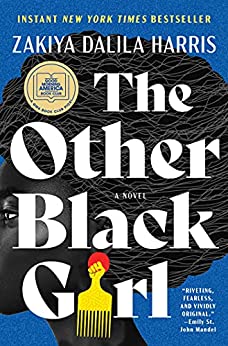
I haven't experienced Get Out, so I can't speak to that comparison. I see why some people are comparing this to Stepford Wives, though I'm not sure that's the best comparison either.
From both the genres and subjects described, this book should have been a major hit with me. Instead, I thought it was tedious, repetitive, overly long, and anticlimactic. I saw coming what I think some are thinking was a twist from the outset of the story. The reasoning behind/end goal of what was happening to Nella is patently ridiculous. There are some alternate points of view thrown in occasionally that seem unnecessary and distracting. Then, suddenly, the author decides we're done, and tacks on an epilogue that does nothing to either make sense of the long, tedious journey or offer any excitement.
This is one of those times that I'm sorry a seemingly promising upcoming book hogged a precious hold slot in Overdrive. At least I didn't buy this one.
15 June 2021
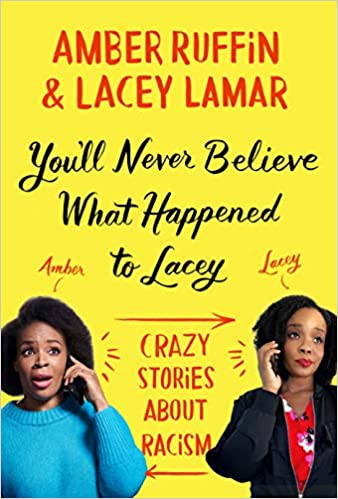
Amber Ruffin, a writer and performer on Late Night with Seth Meyers, lives in New York City. Her older sister, Lacey Lamar, still lives and works in Nebraska, where they were raised. So, while Amber is not immune to racial microaggressions, it's Lacey who is subjected daily to both overt and unintentional racist words and acts. Most of the book is a series of retellings of Lacey's experiences from childhood to the present. You'll probably laugh; you might also cry (or wince, or fume, or all of the above).
I read the text with my ears (narrated by the sisters), though I previously borrowed a print edition so I wouldn't miss out on the photos. I recommend both.
14 June 2021
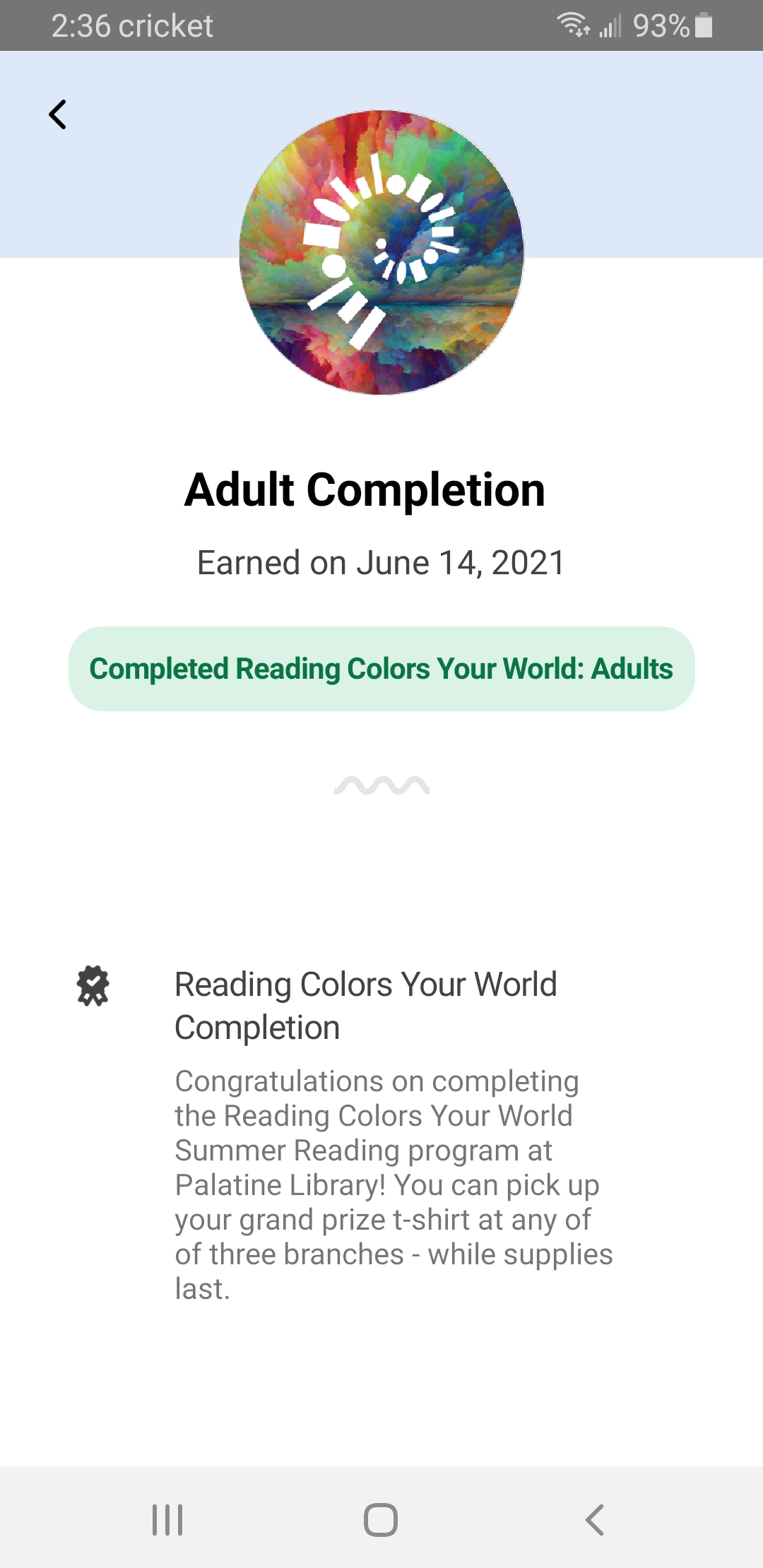
#readingcolorsyourworld #bookdragon #everydayisreadingday
14 June 2021
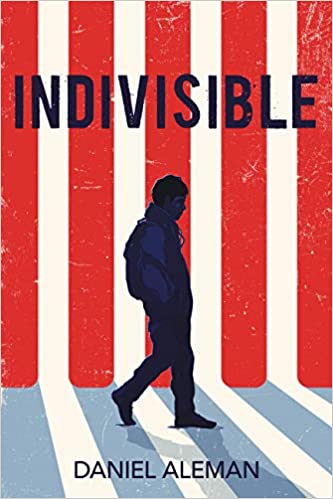
Supporting characters include Mateo's best friends Kimmie (Asian American and white—her boyfriend, Darryl, is Black) and Adam (Italian American), and "uncle" Jorge (the young man mentored by Mateo's parents) and his wife Amy.
In addition to Mateo's family's story, bodega employee Erica eventually shares SPOILER ALERT—click to reveal
that her dad was deported to El Salvador when she was 3 years old, but that there were people there ready to kill him if he returned. So, he sought asylum in Canada.
Indivisible is a work of realistic fiction. This happens to people in our own communities. Several young men whose families were in this position were close personal friends/running "brothers" of my Number Two Son.
Pro: diversity, LGBTQ representation, deep relationships, frank description of the devastation caused by deportation.
12 June 2021
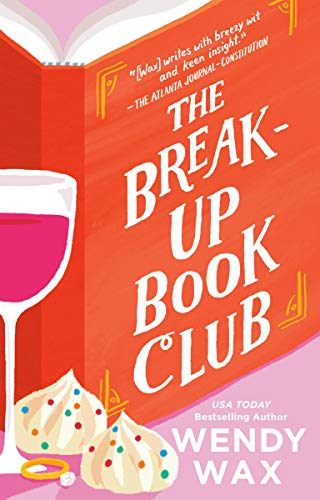
9 June 2021
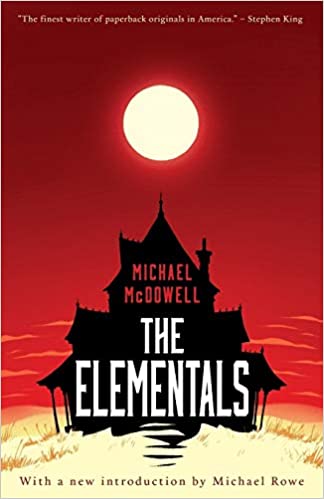
Outside of the supernatural aspects, the relationships are key: between friends, between parents and children (of all ages) and grandchildren, between adult siblings, between the families and the maid.
One thing that confused and irritated me is that seemingly every time maid Odessa Red pops up in the story (which is a lot), the author refers to her as "the Black woman." Why? It was distracting and weird.
6 June 2021
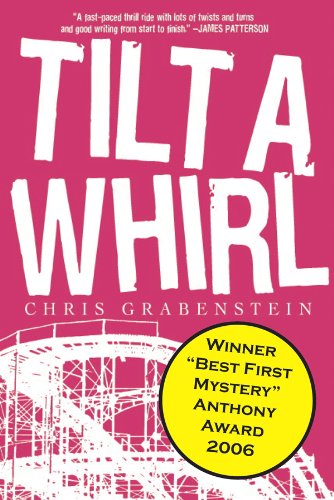
At least this first installment is told from the viewpoint of Ceepak's 24-year-old partner, Danny Boyle, who isn't actually a police officer (doesn't carry a gun and works limited hours)—he seems mostly to serve as Ceepak's chauffeur and assistant. I have the second and third installments in my personal library as well. The first was entertaining enough that I'll keep reading the series.
3 June 2021
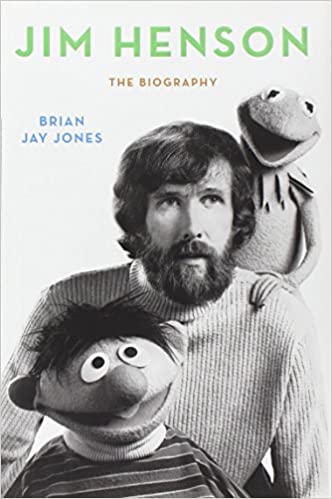
I was three when Sesame Street started, and 10 when The Muppet Show hit the airwaves, so I grew up loving the Muppets (and I've never stopped). I shared that love with my kids when they were growing up. The mother–son dance song at Number One Son's wedding was "Fuzzy and Blue." All this is to show that I have great affection for/admiration of Henson's work.
The book includes plenty of interesting personal and professional details. I learned interesting nuggets about Henson's growth and methods as a puppeteer, artist, and businessperson. Getting a feel for his relationships with family and colleagues was interesting, as well.
It's tough being human, and tougher still, I imagine, to be in the public eye. This is where my enjoyment of the bio fell. I wouldn't want the author to be exceedingly harsh in his portrayal—that is, I'm not interested in scandal or sensationalism. But, neither did I feel comfortable with the way that the author seemed to sugarcoat Henson's interpersonal challenges: extramarital affairs, months at a time living away from his wife and children, and many mentions of bad feelings within the Henson organization—situations the person in charge should have handled.
In a nutshell, I'm pro Henson's artistic vision and talent. I'll try to leave the rest behind.
1 June 2021
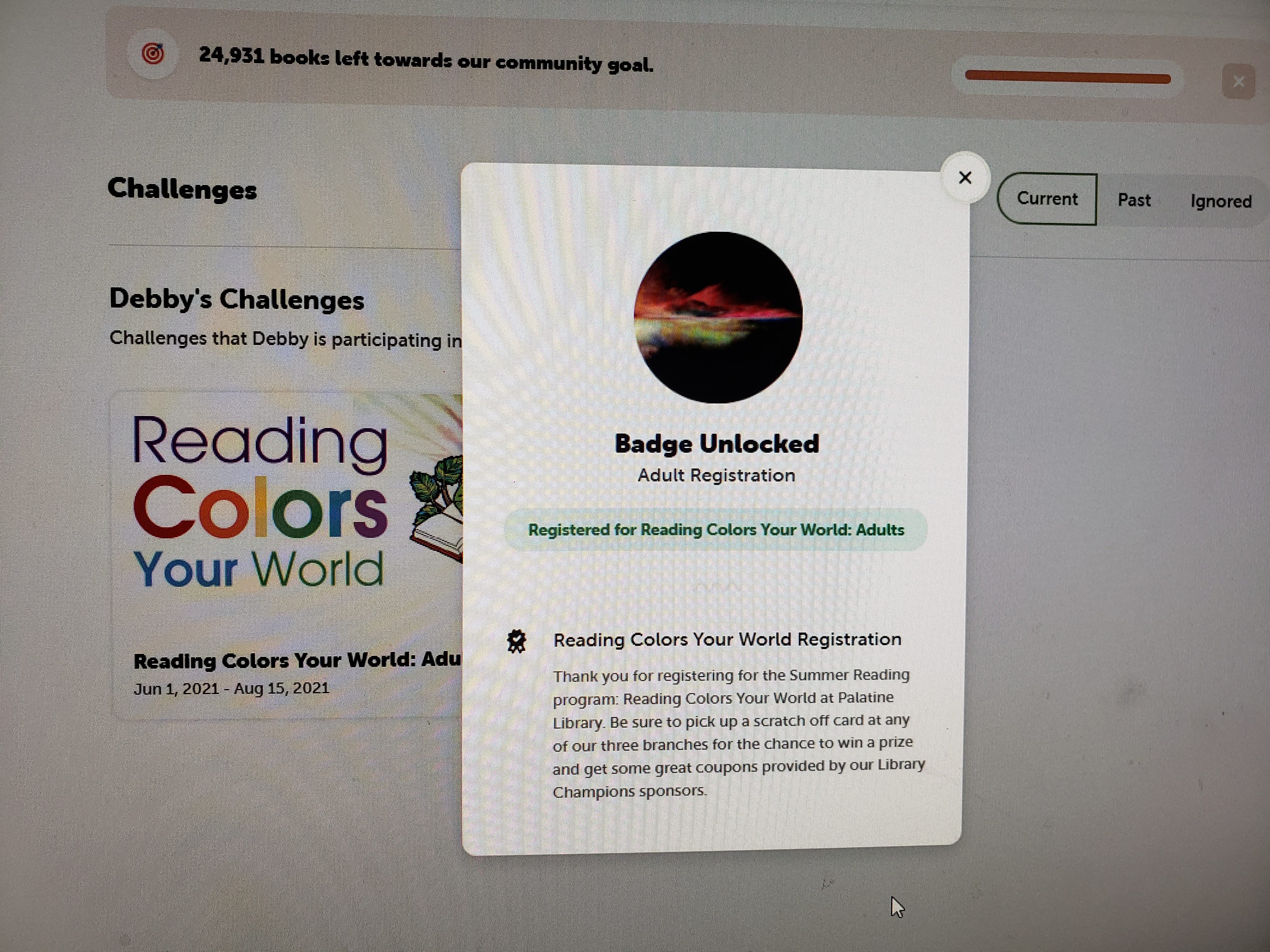
31 May 2021
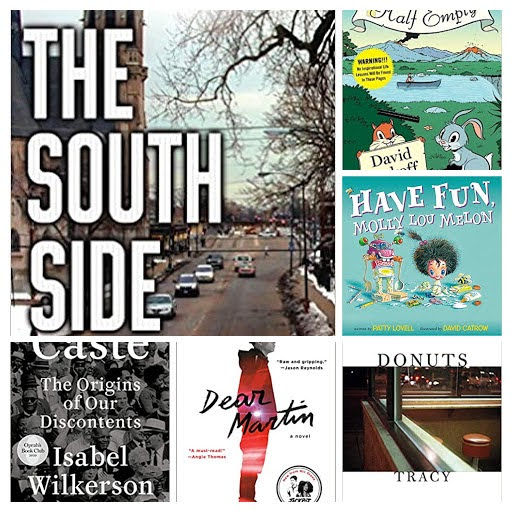
4-star reads
- Superior Donuts, Tracy Letts
- Half Empty, David Rakoff
- Dear Martin (Dear Martin #1), Nic Stone
- The South Side: A Portrait of Chicago and American Segregation, Natalie Y. Moore (4+)
- Caste: The Origins of Our Discontents, Isabel Wilkerson
- Have Fun, Molly Lou Melon, Patty Lovell
honorable mention (3+)
- Jungle Night, Sandra Boynton
- People We Meet on Vacation, Emily Henry
- While Justice Sleeps,Stacey Abrams
- The Upside of Unrequited, Becky Albertalli
27 May 2021
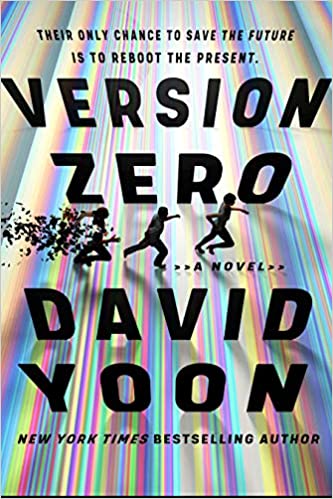
In Version Zero, main character Max is fired from his job as a data expert at a social media giant after he questions why the company's data-mining practices are so intrusive and how they're using the data. He recruits his best friend/long-time crush, Akiko (who still works for the company), and her boyfriend, Shane, to set things right for humanity—not just in terms of data mining, but also taking aim at how social media gives people a convenient platform for spreading their evil racist and violent attitudes that they wouldn't dare discuss in public. The original three are joined on their quest by another social media giant's reclusive ex-leader and that man's teen neighbor.
The message of the evils of social media—from the corporate operations/operators, to its addictive qualities as a source from which to garner attention and validation, to its use by delusional racists and conspiracy theorists to rally their "causes"—is obvious and a bit repetive. This theme, of course, was central to Dave Eggers' The Circle, published in 2013.
The book takes a bizarre (and exceedingly violent) turn toward the end. Consider yourself warned.
25 May 2021
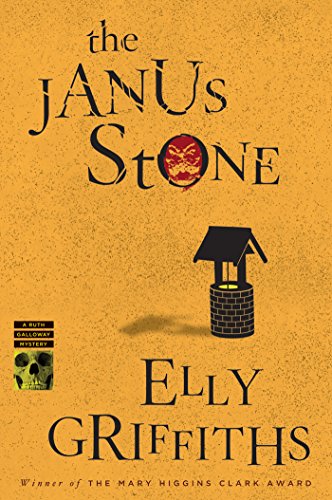
Content warnings: murdered child (also decapitated), infidelity.
23 May 2021
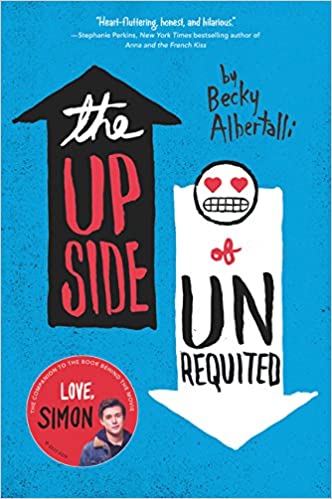
As is typical in Albertalli's books, there are relationships galore: teen romances, friendships, and extended family relationships (siblings, parents, aunts, grandmothers, cousins).
Not much happens in the book, and you know going in how things are going to land (at least if you read the book summary). But it was a nice, easy read to break up my tendency toward heavy and/or tense book content.
If you're sensitive to swearing (or are picking books for someone who is), this is probably not a book for you.
22 May 2021
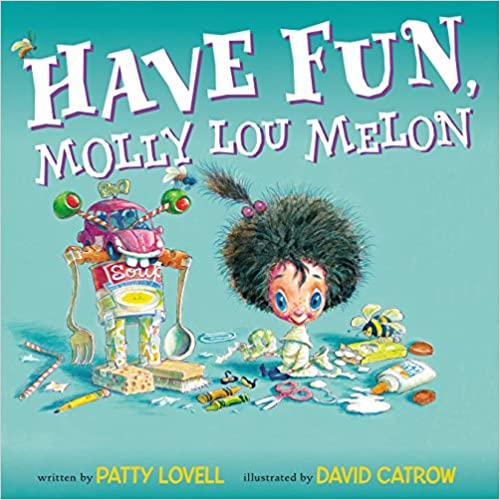
20 May 2021
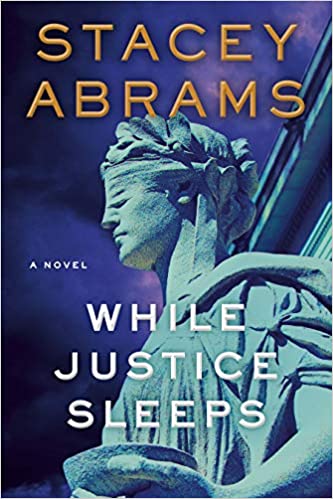
In a nutshell: Main character Avery Keene is a law clerk for a U.S. Supreme Court Justice who sets her up to solve a mystery and save the day when he names her his guardian before ending up in a coma.
Pro: thriller; set in Washington DC [one of my favorite places to visit, and specifically naming Kramerbooks (now called Kramer's), among other sites]; political insiders; mystery/puzzle solving; strong, smart female characters, including Avery, her doctor friend/roommate, and the Chief Justice
Con: multiple complete implausibilties (e.g. Avery signing something her boss hands her without reading it, and Avery escaping from the watchful eye of one or another security/law enforcement members on several occasions); over-explaining
19 May 2021
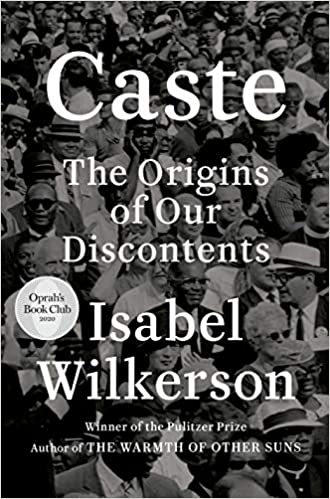
I flagged the heck out of this book. There were so many passages I wanted to have handy for sharing during discussion. I won't share all of the flagged topics here; but they included comparisons between the caste systems in the U.S., India, and Nazi Germany; lynching in the U.S.; discussions of medical and wealth disparities between castes; personal experiences of the author being subjected to racist attacks; and much more. I've read so many books on the subject in recent years that I'm seeing quite a bit of overlap, which might account for me not rating this one even higher (not that I'm rating it poorly, to be sure).
The text—not counting the notes—comes to almost 400 pages, but it was interesting enough that I got carried away with reading in long sessions, to the detriment of all other activities. [This was actually lucky in that I waited quite late to start because I was hoping to be able to borrow it from the library. Eventually I had to pony up and purchase it because I didn't make it to the top of the hold list in time.] There are a few topics that Wilkerson repeats almost verbatim in multiple chapters, which I found only mildly annoying (not enough to discourage reading or recommending).
19 May 2021
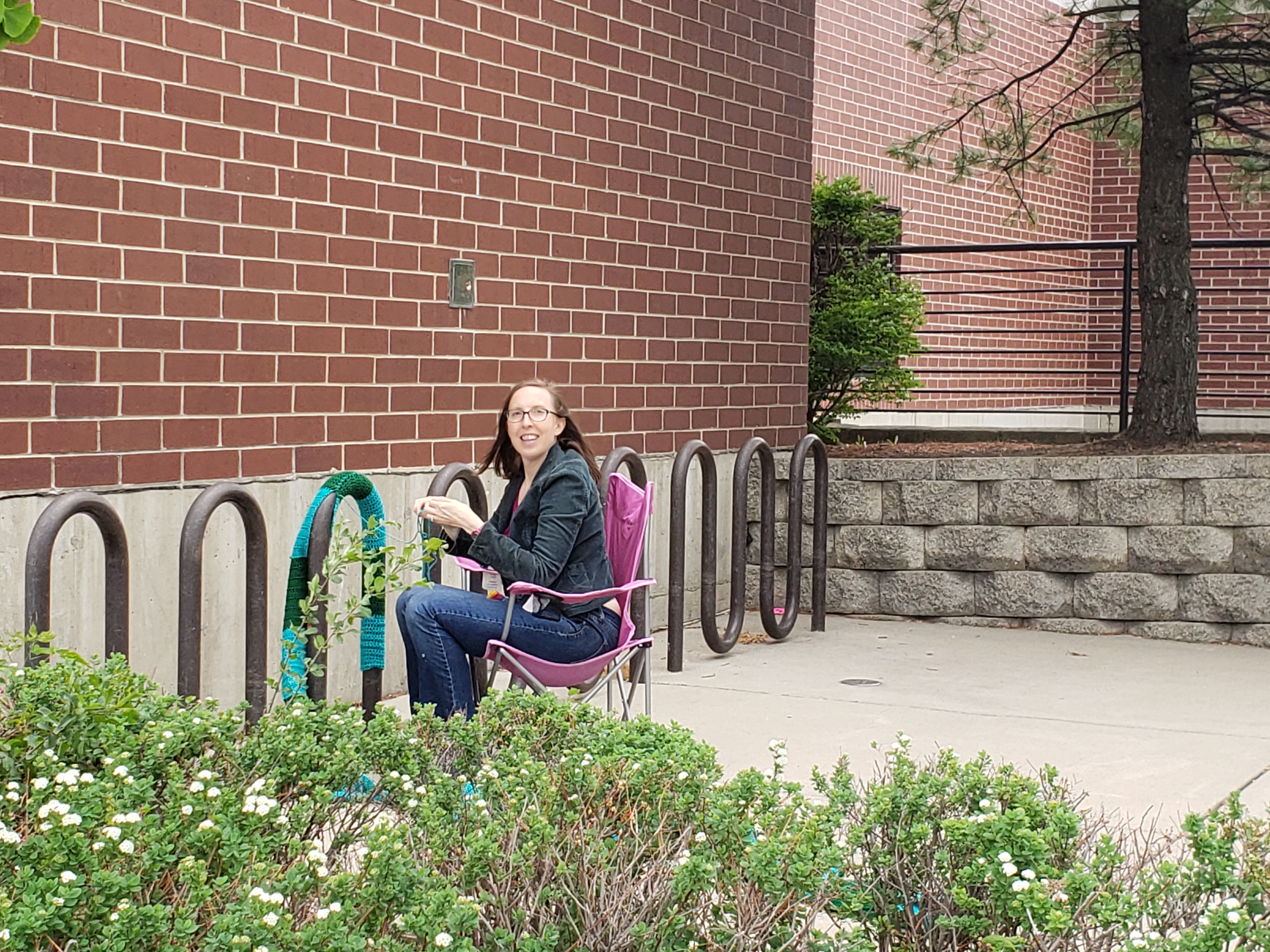
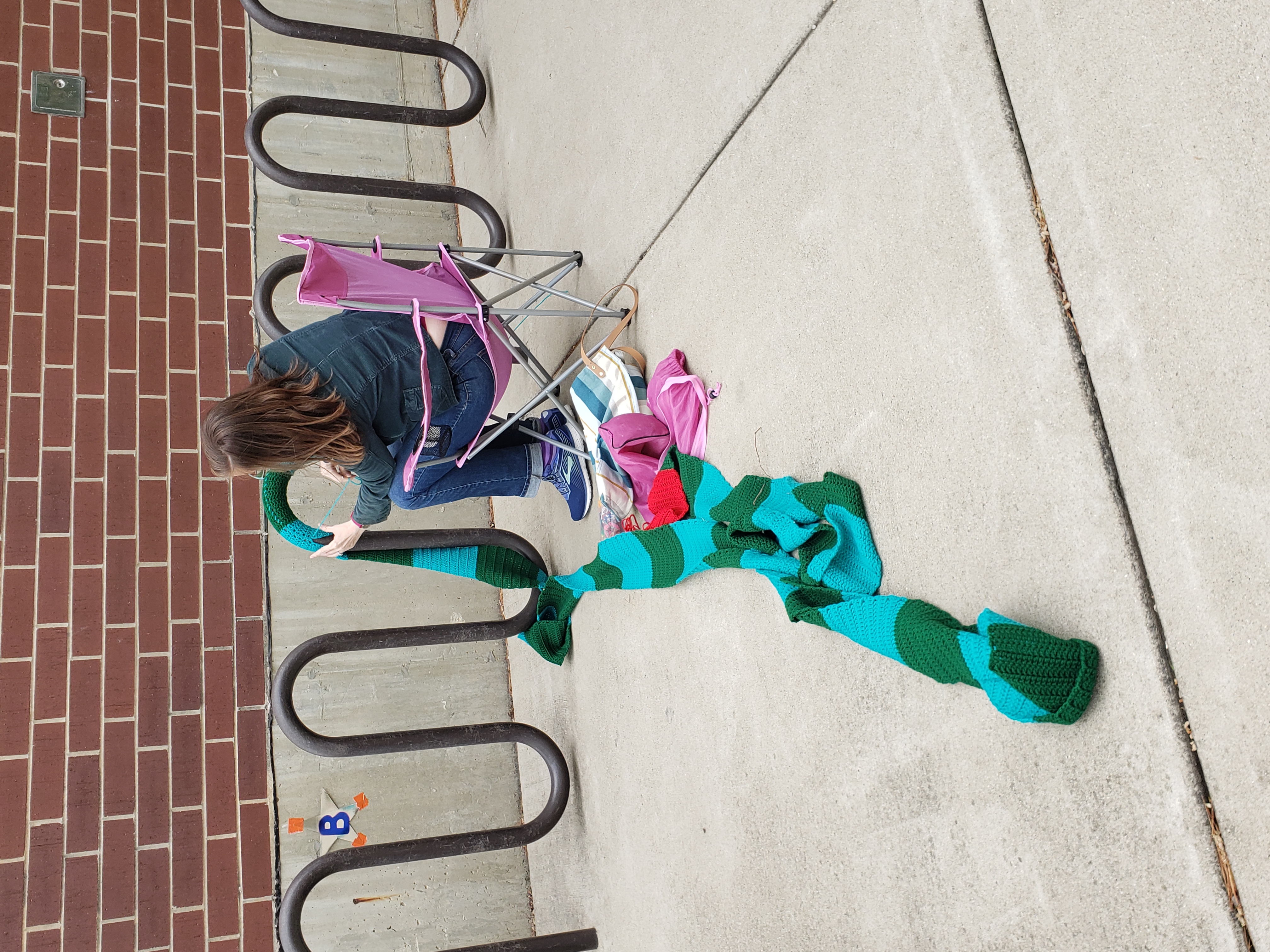
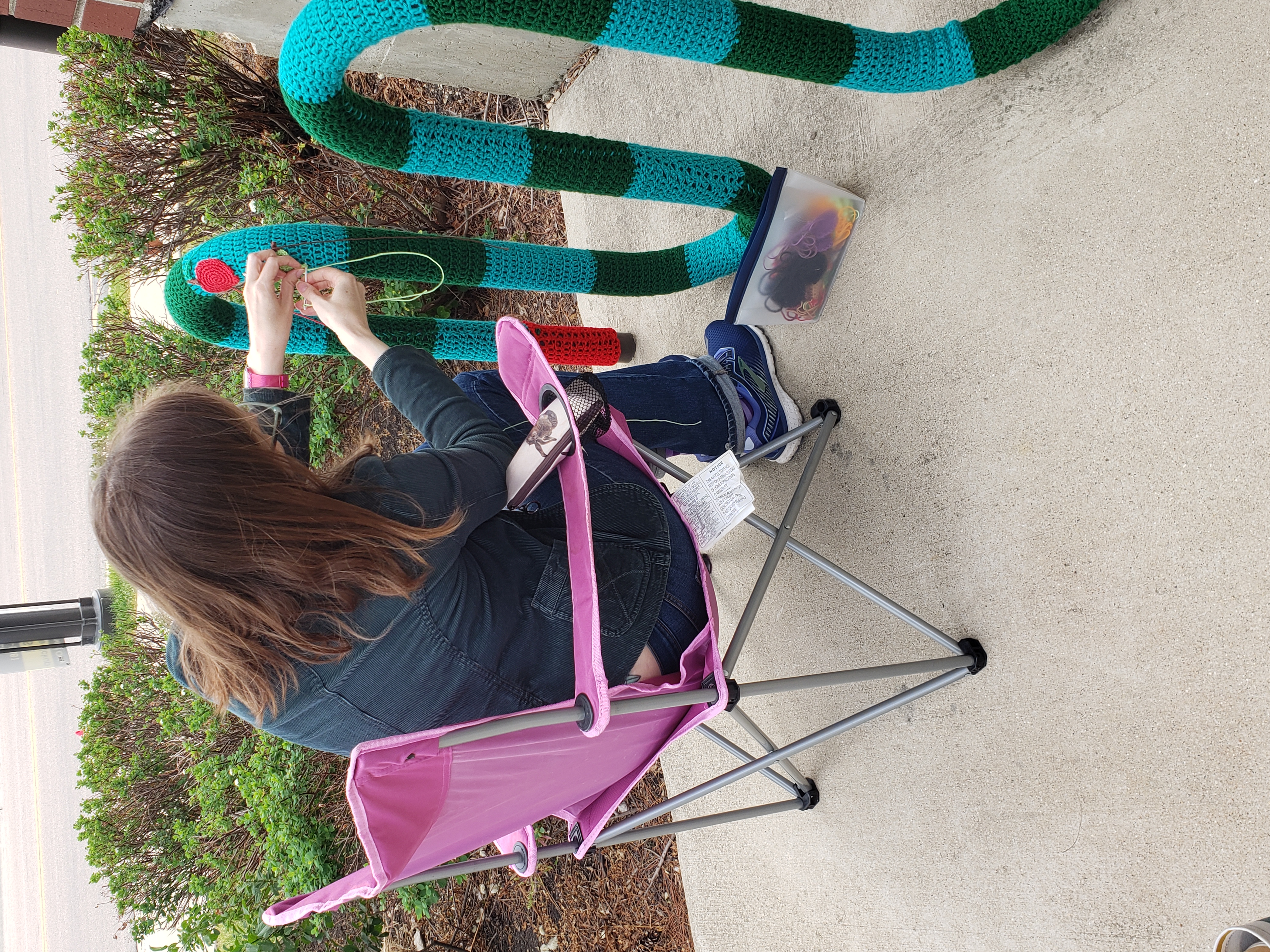
Among former PPLD Trustee Valerie Sherman’s many talents are knitting, crocheting, and yarn bombing. She has appeared on several newscasts and in newspapers for her fantastic installations in Chicago. Today, I visited with her while she installed her latest creation on our library bike racks east of the main entrance. I’ll have to check out the finished project next time I visit the library.
Can you guess what the project is? [click to reveal]
It’s the Very Hungry Caterpillar! You guessed right, didn’t you?
Thanks, Valerie, for bringing some extra sunshine to Palatine Public Library!
19 May 2021
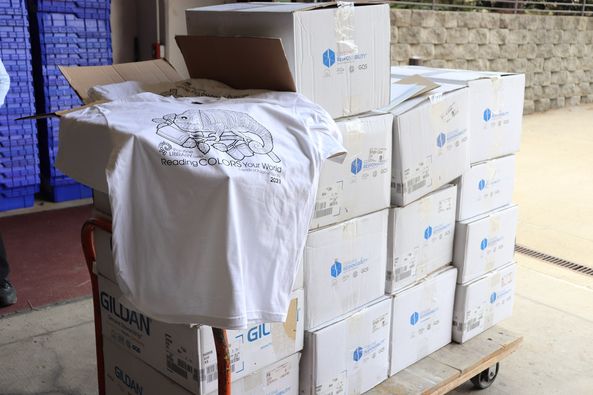
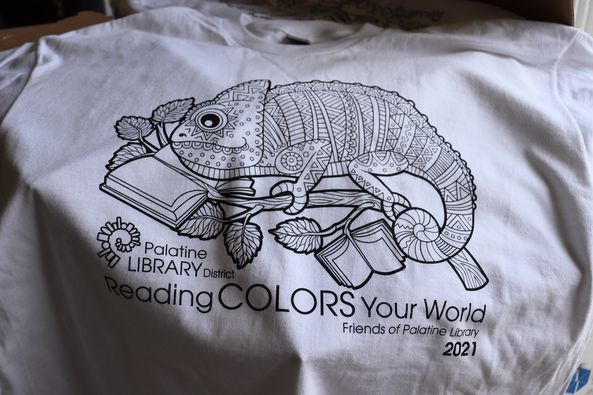
Hey, neighbors: check out this year's super-cute and fun summer reading T-shirt! There will be events at which you can decorate your T during the course of the program. As always, you can register and start logging as of June 1.
16 May 2021
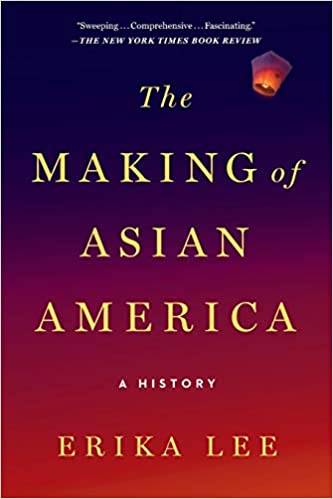
Given that only the most cursory mention was made during my formal education about the Chinese immigrants who built the Transcontinental Railroad and the internment of Japanese Americans during World War II—and no mention at all of the vast majority of Asian immigration to the United States of America—this volume is necessary. The bottom line is that the U.S. has always been willing to exploit others' work for its gain, without extending the benefit of basic human rights, let alone welcome and care.
I don't know if the narrator or the writing is to blame for the overall tediousness of the audiobook. Maybe it's a combination. Perhaps when I skim the print edition to review a few notes I took (manually, because Hoopla), I'll feel a greater admiration for the book.
13 May 2021
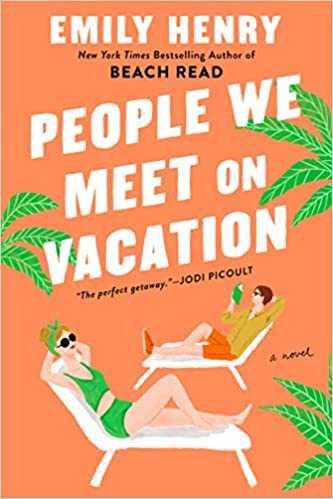
Henry gets a nod for starting the book with Poppy and Alex meeting at a party as they begin their freshman year at the University of Chicago, even though it really has nothing to do with anything. The main characters hail from the same area, but have never met (implausible). Their friendship doesn't begin that first night, but at the end of the school year. Subsequently, they take annual vacations together—even though Alex has returned to their hometown and Poppy has settled in New York City, and regardless of their romantic relationship status with others at any given time—until two summers ago when something went terribly wrong on their trip. The storyline hops from vacation to vacation, out of order, multiple times.
The story is entirely predictable, as books of its ilk tend to be, but the ride is adequately entertaining. I'm not disappointed that I spent time on it.
11 May 2021
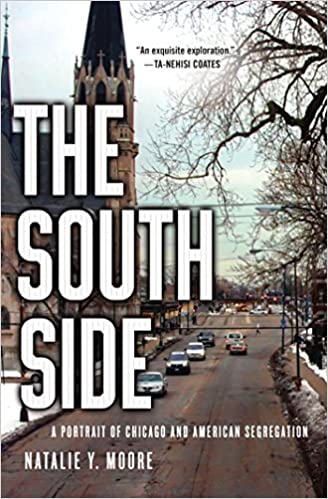
Moore packs a lot into this book, covering racist policies around housing and education, lack of development/investment in Black neighborhoods, crime stats and perceptions of criminality, and discussion of race vs. class issues, to name a few. She also shares some possible solutions.
9 May 2021
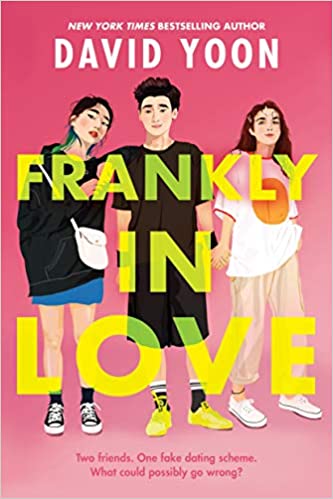
I wasn't as engaged by this story as many of the YA books I read (especially those that have a racial justice theme). It was fairly repetitive—or maybe it just wasn't as well-crafted and cohesive as similar books. Also, I find it hard to believe (and gratingly impossible to overlook) that a Stanford-bound AP student wouldn't have better grammar skills than Frank.
On the plus side, there was an interesting bit about code-switching, and bits throughout about the Korean and American names for people and the cultural importance of them both having either seven or nine characters (lucky numbers).
6 May 2021
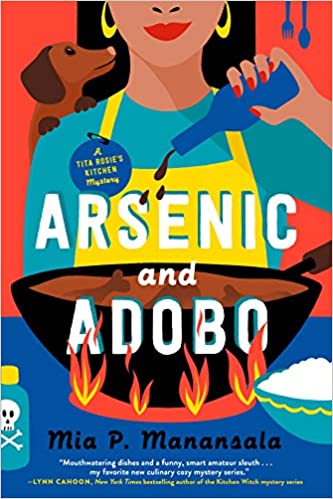
The author's note at the start of the book includes some content warnings. There are recipes at the end of the book. In the body, there's all the usual cozy mystery fare. I'm not typically a cozy mystery reader. This one—the first in a new series—entertained me well enough. I might choose to read the next installment if it crosses my path at the right time.
4 May 2021
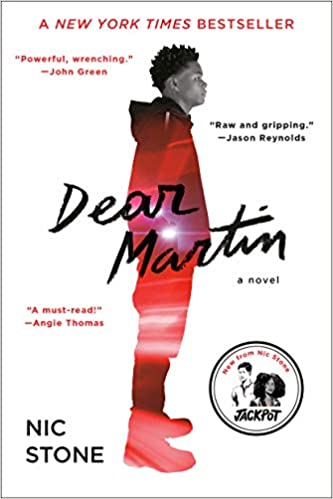
While the end is somewhat clipped, the brevity of the book (224 pages) is welcome—overall, the story is well-rounded and deep enough. I'd rather be mostly satisfied/left wanting little more than to be dragged along endlessly without sufficient additional material, as is too-often the case.
YA readers and readers interested in social justice shouldn't hesitate to read Dear Martin.
4 May 2021

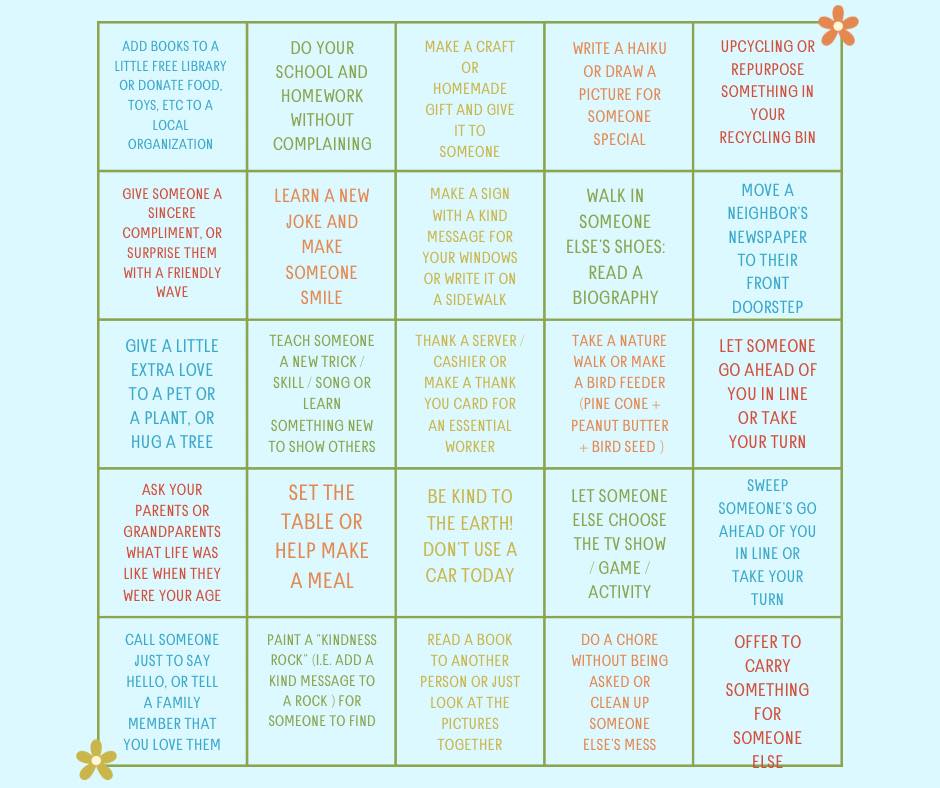
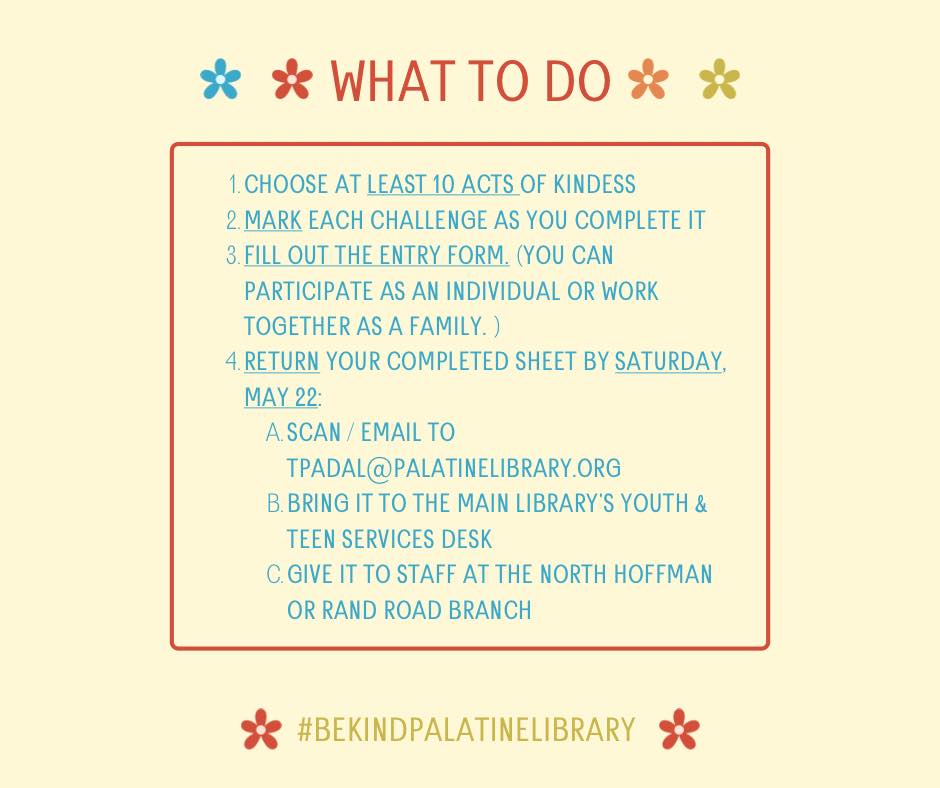
Simple acts of kindness can change the world! Participate in our Be Kind Challenge this Spring: May 1–22. Complete 10 or more squares to be entered to win a prize!
Fill out our entry form (You can participate as an individual or work together as a family. Please print legibly.) Return your completed sheet through email: tpadal@palatinelibrary.org or bring it in-person to both Palatine Library Locations.
3 May 2021

Need Volunteer Hours this Summer?
We are on the hunt for Teen Volunteers! Book Buddies, Craft Crews, Instagrammers, Letter Makers, Seed Squad Members, and Teen Renovation Ambassadors.
We can't wait to hear from you! Applications Available May 1–15. Follow this link to find the application online.
3 May 2021
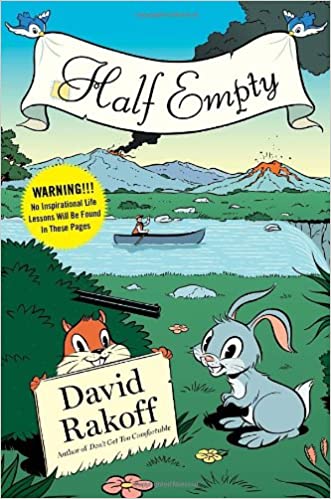
It is funny. It's also sharp, dark, snarky, heartbreaking . . . all this in a modest 224 pages.
David Rakoff spent a good portion of his adult life (sadly cut short by cancer) living in the USA, so don't shy away from the essays if you don't have a personal connection to Canada (unless, of course, if you also have no connection to the USA, in which case you may not relate much to his experiences). He wrote for a number of periodicals, including The New York Times Magazine, GQ, and Vogue, and acted Off-Broadway and in film.
1 May 2021
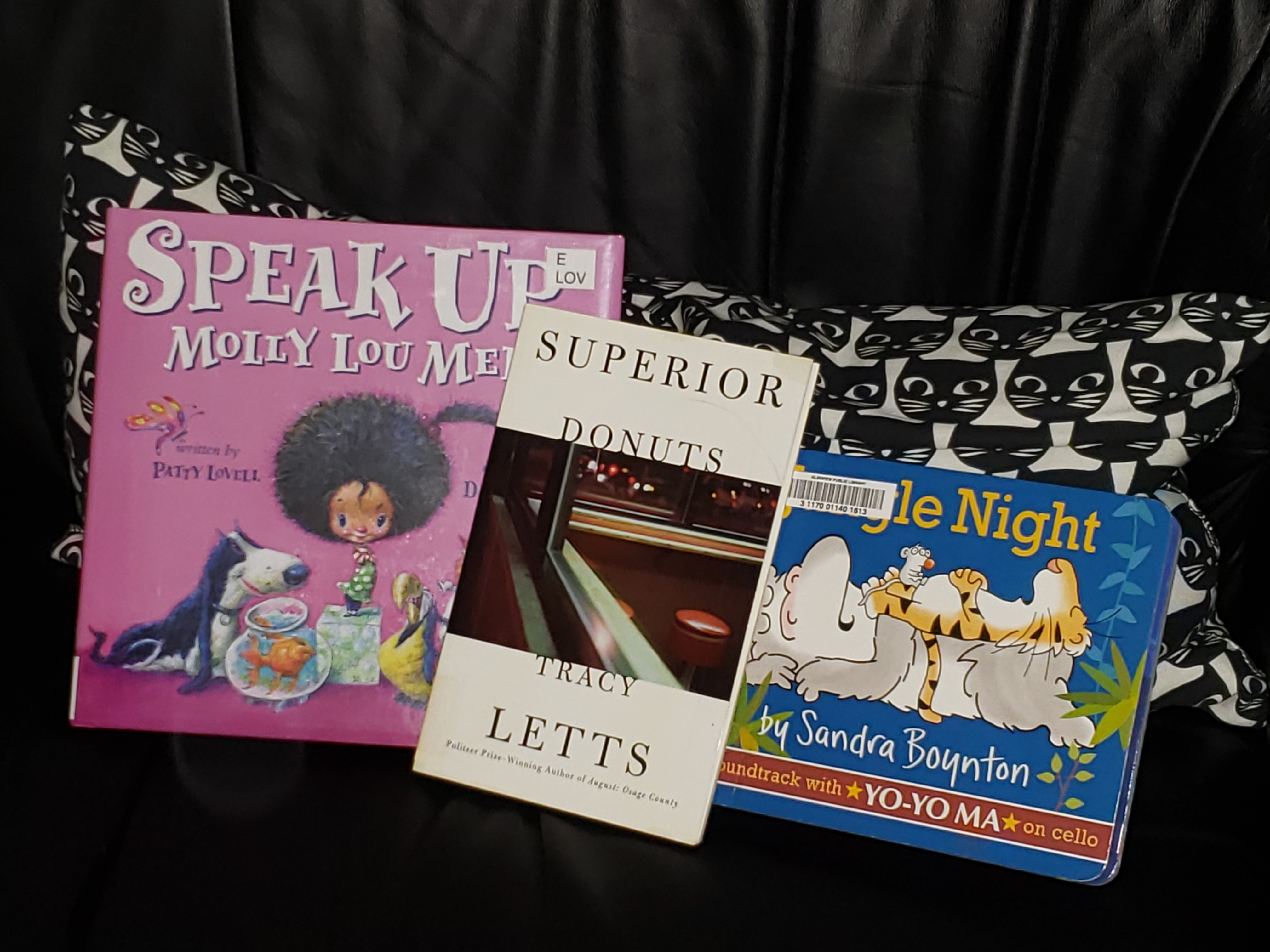
Both play and TV series take place in Chicago's Uptown neighborhood. Anything set anywhere in Chicago already has my attention. The cast of both is racially diverse, which is also a plus. The two leads are Arthur Przbyszewski (pronounced Shub-er-shef-ski)—a 59-year-old Polish-American donut shop owner in the play; older in the TV series—and Franco Wicks—a 21-year-old African-American (in the play—I don't remember if his age was mentioned specifically in the series, but clearly meant to be in his 20s; he's an aspiring writer in the play, but an artist in the series)—who works for Arthur. The meat of both play and series is Arthur's and Franco's developing friendship.
Reader reviews of the play run the gamut. I'm glad to have read it and wouldn't hesitate to see it performed on stage.
30 April 2021
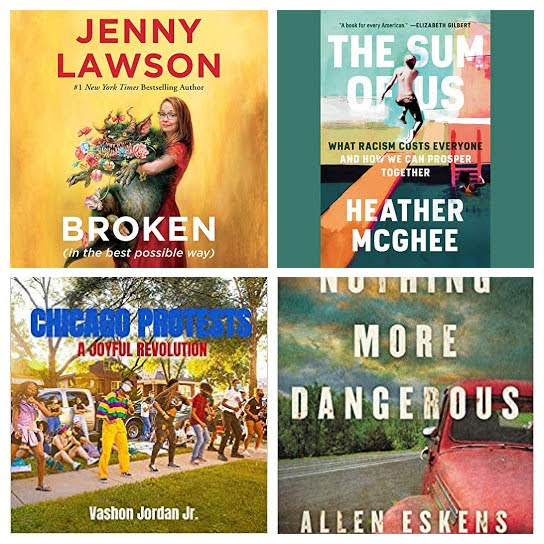
4-star reads (unless otherwise noted)
- The Sum of Us: What Racism Costs Everyone and How We Can Prosper Together, Heather McGhee (4+/5-)
- Broken (in the best possible way), Jenny Lawson
- Chicago Protests: A Joyful Revolution, Vashon Jordan Jr.
- Nothing More Dangerous, Allen Eskens (4+)
honorable mention (3+ to 4- stars)
- The Clockwork Ghost (York #2), Laura Ruby (3+/4-)
- The Map of Stars (York #3), Laura Ruby (4-)
- Life's Too Short (The Friend Zone #3), Abby Jimenez (3+)
- Orlando People, Alexander C. Kane (4-)
- Kate in Waiting, Becky Albertalli (3+)
- The Chicken Sisters, K.J. Dell'Antonia (4-)
- The Wizards of Once (The Wizards of Once #1), Cressida Cowell (4-)
30 April 2021
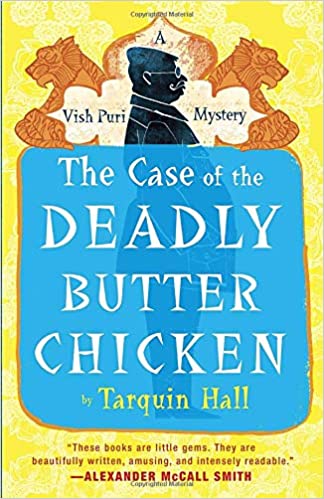
29 April 2021
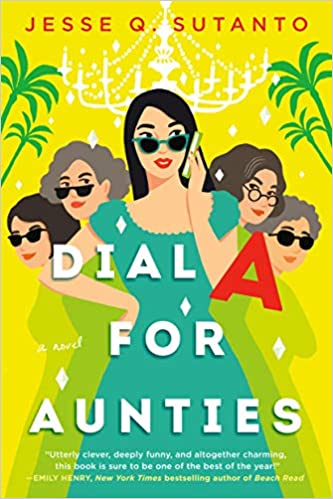
The author's note "Dear Reader" was interesting. Sutanto talks about how all of her grandparents moved from China to Indonesia between 1920 and 1930, and changed their Chinese names to Indonesian names to protect themselves from xenophobia. She also talked about how many languages are spoken by everyone in the family.
If you're in need of a quick and silly diversion, this may fit the bill.
28 April 2021
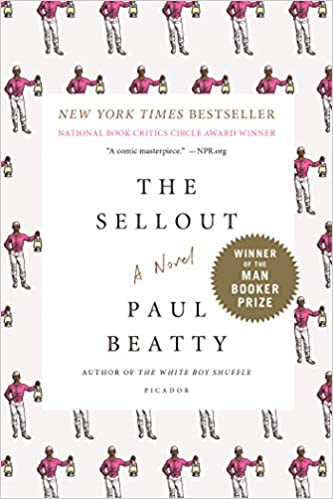
Pro: descriptive language, clever satire, truth-telling. Con: so much repetition, taking the satire too far.
26 April 2021
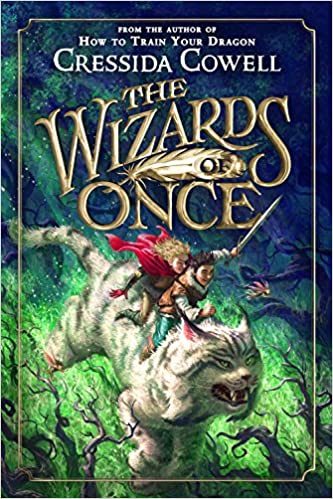
This is a middle-school fantasy read, so it's far less dark than much of my reading, and there are moral lessons sprinkled throughout. There's also quite a bit of humor. Narration by David Tennant was rich and delightful—a real bonus to reading with one's ears.
Cowell opens with this Albert Einstein quote:
Imagination is more important than knowledge. For knowledge is limited, whereas imagination embraces the entire world.
Wizard Xar (son of head wizard Encanzo) and warrior Wish (daughter of Queen Sychorax) are raised to hate each other, but end up working together to get themselves out of trouble they created for themselves.
This nugget of humorous wisdom should resonate with kids and their parents alike:
"Well, I wouldn't say lovely, exactly," said Bodkin gloomily. "SCARY. That's what she is. SCARY. She is one scary mother.""She's a queen and a mother and it's a mother's job to be scary," said Wish.
This may be a mild spoiler, appearing late in the story, so I'll give you the option of skipping it. It shows that lessons can be learned by parents as well as children.
SPOILER ALERT—click to reveal
"It is far, far better to have a son who has no Magic than to have no son at all." —Encanzo
I'll definitely consider reading the next installment (there are four) . . . maybe even soon.
24 April 2021

2021 Poetry Contest Wrap-Up and Winners
In celebration of National Poetry Month, we hosted our 12th annual poetry contest. We received over 150 poems from poets of all ages.
Winners were selected by professional local poets who served as contest judges. Nancy Heggem donated prizes for the award named in her honor. Nonresident awards were selected by poets Kate Hutchinson and Terry Loncaric.
Winners of the Nancy J. Heggem Awards received a certificate and $25 cash prize. Winners of the Write On! Awards received a certificate and $25 Barnes and Noble gift card. Prizes were announced at an open mic hosted via Zoom on Saturday, April 24.
2021 Nancy J. Heggem AwardsAdult—Winner: “At the Soul Factory” by Lynda Appino
Adult—Honorable Mention: “Where Do the Dandelion Seeds Go” by Deborah Di Verde
Teen—Winner: “They Told Me My Name Was” by Hannah Labonar
Teen—Honorable Mention: “Towards the North Star” by Debdutta Mandal
Youth (Upper Elementary)—Winner: “What is a Poem” by Gabe Lee
Youth (Upper Elementary)—Honorable Mention: “United” by Caleb Medina
Youth (Lower Elementary)—Winner: “Seasons” by Sophia Lee
Youth (Lower Elementary)—Honorable Mention: “Familia" (Acrostic) by Danna Rodriguez
2021 Write On! Poetry AwardsAdult/Teen—Winner: “Copenhagen” by Toni Diol
Adult/Teen—Honorable Mention: “Conduct Becoming an Officer” by Nancy Claassen
Youth—Winner: “A Howl” by Alisha Kuehner
Links to the winning poems may be found here.
24 April 2021
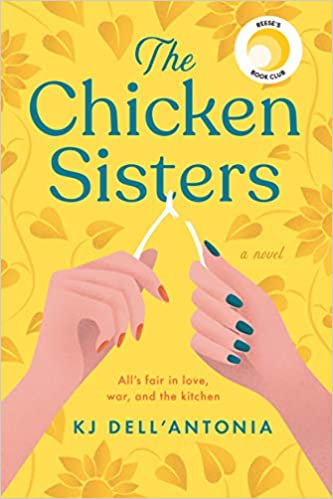
I dinged the rating a bit over a couple/few mildly/moderately unpleasant characters. I raised the rating a bit to recognize and appreciate the depth and breadth of multi-generational relationships, a bit of mystery, and the aforementioned easy reading.
If you like family drama and/or food TV, this might be for you. And, yes, I was craving fried chicken through much of the story!
23 April 2021
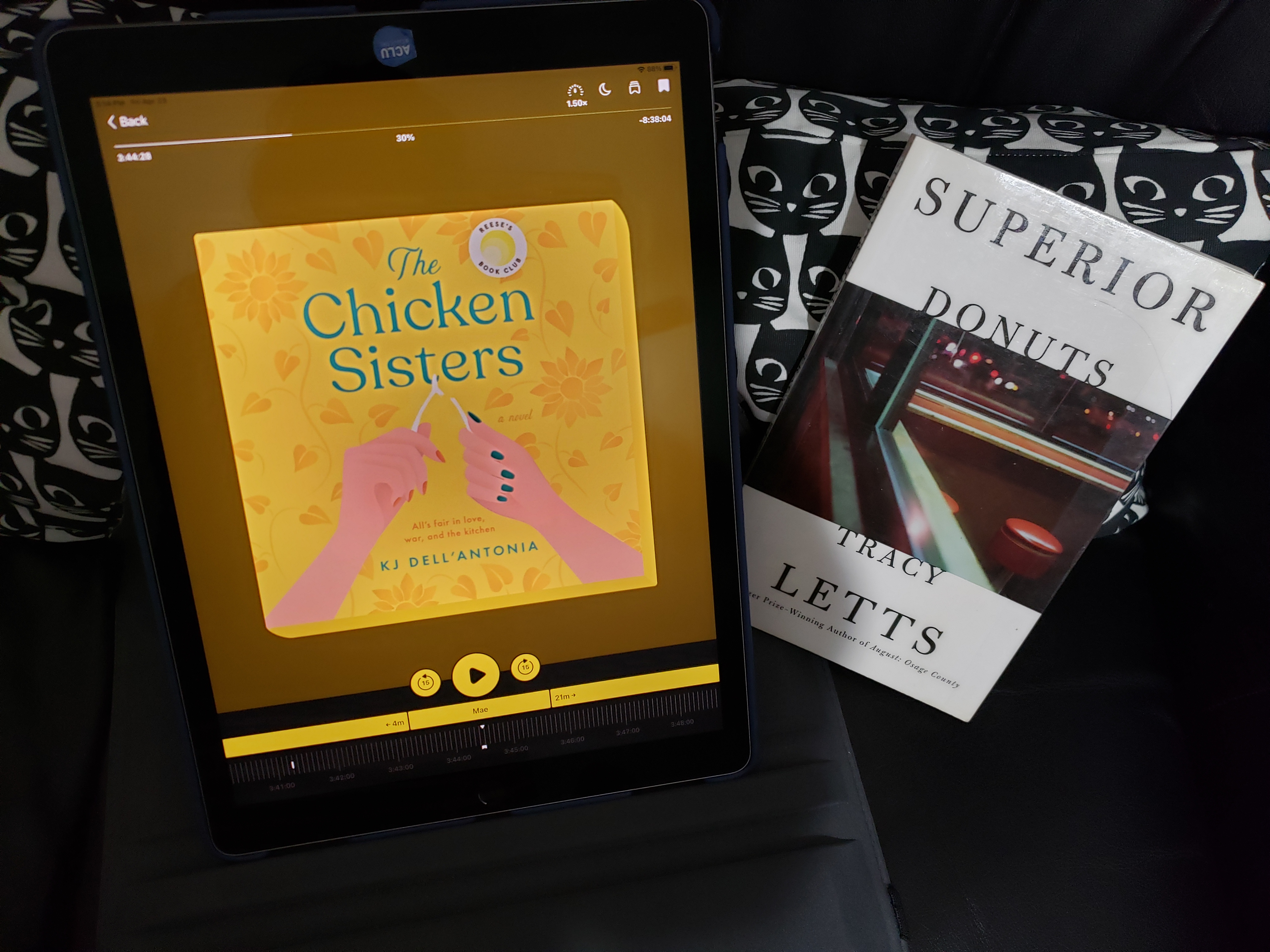
I’m currently reading The Chicken Sisters, by K.J. Dell'Antonia, and Superior Donuts, by Tracy Letts. What are you reading now?
#WorldBookDay #23April #EveryDayIsDebbyBookDay
22 April 2021
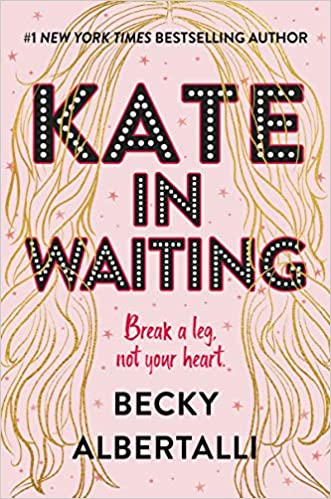
Kate and her squad are theatre kids, which is just plain fun. During the course of the story, they're working on Once Upon a Mattress—one of the most fun musicals ever.
Glows: gay and trans characters treated as the friends/family members they are in our real lives, and relationships (romantic, platonic, familial) with normal ups and downs. Grows: there was a really slow, sort of painful chunk—maybe it could have been edited down a bit to eliminate the lull.
20 April 2021
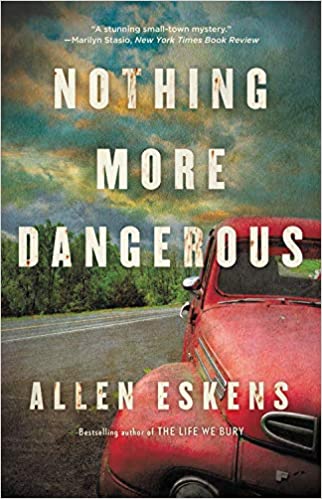
Nothing More Dangerous is a prequel to The Life We Bury. In this book, Boady Sanden is 15 (and the main character).
The Life We Bury and The Shadows We Hide both impressed me with their twistiness and character relationships. The mystery in Nothing More Dangerous didn't surprise me. I'll forgive that because Eskens was absolutely on-fire with the overall storytelling and relationships in this book. I rated the other two 4 stars; I'm giving this one 4.35 (4+).
19 April 2021
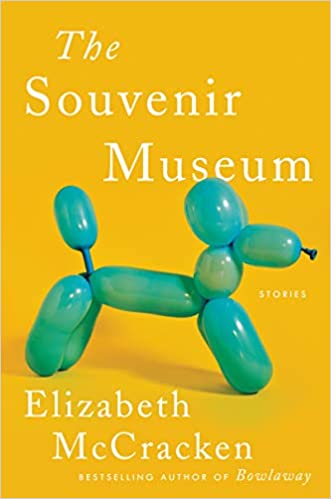
17 April 2021
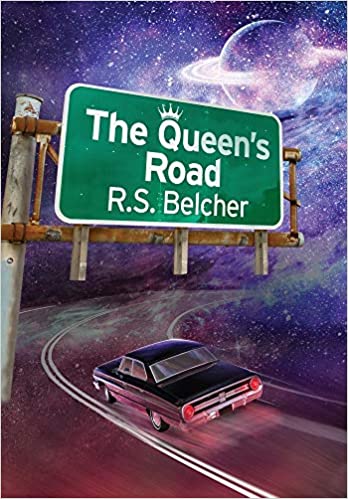
15 April 2021
.jpg)
Alex (journalist) could have been/started as a likeable character, but was quickly diminished by his association with Ranna (beautiful photographer with a shady past), who is not the least bit likeable (nor was I sympathetic to her). Some peripheral characters were marginally interesting, but they weren't developed or used sufficiently to carry the show.
This is the first in a series that I am unlikely to continue reading, even though the author doesn't even try to wrap up anything at the end of the installment, surely expecting us to be anxious for the next installment.
15 April 2021
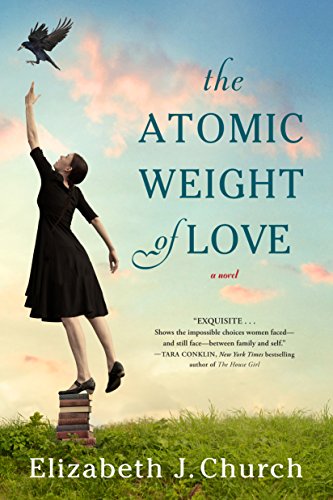
Meridian attends the University of Chicago (where I grew up) and was about the age of my grandmother (who attended U of C, like Meri). Sadly, none of the characters I met in the first nearly-quarter of the story were even a tiny bit appealing, and I was bored to tears with their drama.
If you love historical fiction, give it a try. Me not liking it means more for you . . . or at least less competition on the holds list.
13 April 2021
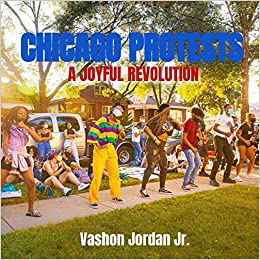
The photographs included in the book were culled from over 17,000 photographs this young photographer took to chronicle dozens of demonstrations taking place between May and September 2020. I'm hoping to attend a virtual program this week about the role of photography in capturing moments of civil unrest. That event was the perfect impetus for getting this book off my TBR pile where it sat taunting me for weeks.
13 April 2021
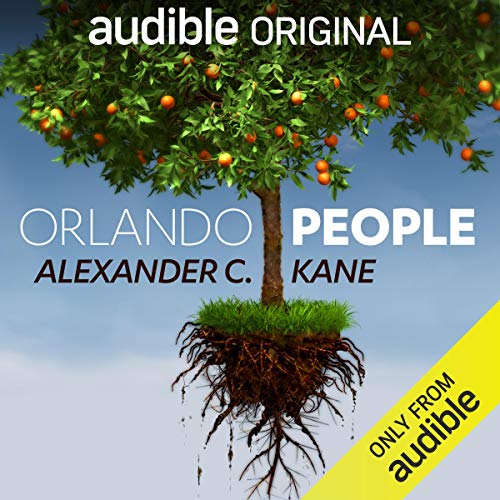
I was rewarded! All of Kane's books are science fiction on the goofy side. This one, I thought had a more intricate plot than the Andrea Vernon books, with more relationships weaving together over the course of the story. Main character Gretch is described as a dud, but makes good with courage, sensitivity, and humor.
I needed this romp this week.
12 April 2021
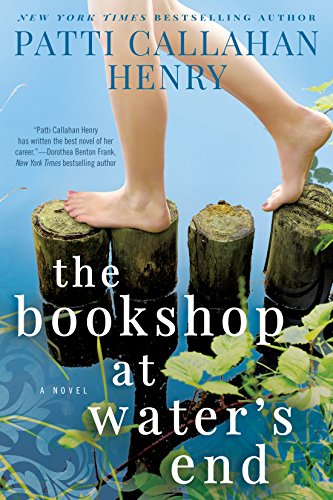
The bulk of the book is repetitive—the same scenes, present and past, told essentially the same way. There is lots of angst. It's supposed to be oh-so-mysterious—what happened way back when Bonny and Lainey were "summer sisters" at Bonny's parents' beach house? The story alternates between past and present, starting with their introduction when the girls are 11 through their early 50s, when they return to the beach house as Bonny prepares it for sale.
First of all, don't get excited about the bookshop in the title. Its relationship to the story is minimal.
The main characters are unlikeable. The few fairly-appealing supporting characters don't get nearly enough attention. [There are some completely unlikeable supporting characters, too.]
Bonny's resolution is totally predictable. Lainey's is almost as predictable. Bonny's naughty young-adult daughter, Piper, is predictable—and boring—throughout, though she does warm to Lainey's young children and has tiny moments of redemption when she kidsits for them.
All in all, I think I'm done with novels that use books and bookstores in the title. What teases!
12 April 2021

Happy National Drop Everything and Read Day! You don't have to ask me twice!
11 April 2021
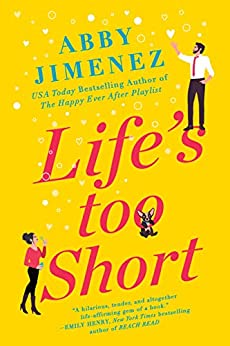
I was still mildly disappointed at the lack of communication between Vanessa and Adrian that results in a delay in launching their romantic relationship. I was seriously annoyed by the poor communication between them after they become a couple. I think that's the entirety of my cons list.
On the postive side, there are some fun secondary and tertiary characters (including an adorable baby), there is lots of humor, and I like Vanessa and Adrian (individually and collectively).
10 April 2021
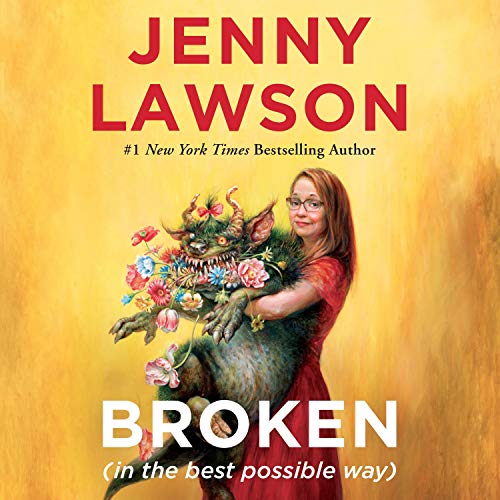
Editor: "There is no hyphen in the word 'douchecanoe.'"Me: "Nope. You are wrong and I am willing to die on this hill. Do not make me flip this table!"
While the book was written prepandemic, it was recorded nine months into quarantine, with Jenny narrating from her closet.
Overall this was a delightful read. I've already put it on my wish list for my personal library—I expect to enjoy it again in the future.
8 April 2021

The Sum of Us is a meaty, thorough look at how racism hurts all of us in terms of the economy, employment, housing, health, safety, education, climate change, relationships, and community—it's all here. McGhee is thorough and persistent, but nonthreatening. She makes a compelling case for a transformation—not a reconciliation—being needed in the US.
The book doesn't qualify for a 5-star rating in part because of how many times "zero-sum game" is used. Even so, it's an excellent and important read.
4 April 2021
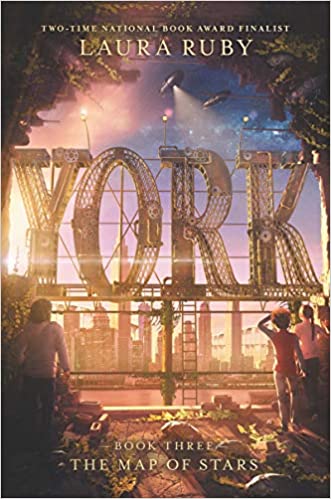
Ruby does a good job both of foreshadowing throughout the series and of bringing back elements and themes from earlier in the series. [These are two different—though related—things, in my mind. I'm having a hard time figuring out how to express that better.] I have no way of knowing whether I would have noticed/appreciated each/every instance if I had done my reading only at the time of their respective publication (2017, 2019, 2020), instead of rereading the first not quite a month before reading (for the first time) the second and third parts. I didn't feel blindsided by any plot point—that is, nothing came completely out of nowhere.
As in the other books, there are nods to racial and social justice. Ruby handled these sections well—not in an overhanded way, but presenting things in a very natural way (just part of the characters' lives). Sometimes, she gave useful historical background.
I was ever-so-slightly disappointed with the book/series ending. That disappointment might be fading already, and it may just be that I don't want to say goodbye to the characters or the story quite yet.
2 April 2021
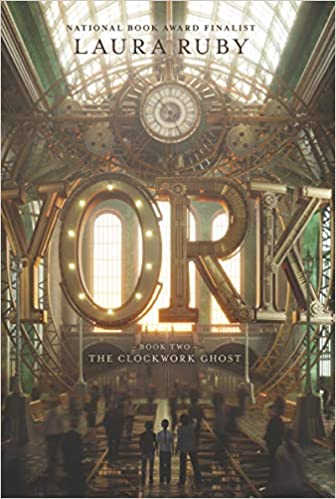
One of Tess, Theo, and Jaime's findings seems like a time capsule full of societal ills that have been solved by the time of their story. That is, the items inside are confusing to the children, who don't understand why these things or circumstances would have existed. The series includes diverse characters, racially and religiously.
I can't share much without spoilers, so I'll just say that you should read the books in order. Ready? Go!
31 March 2021
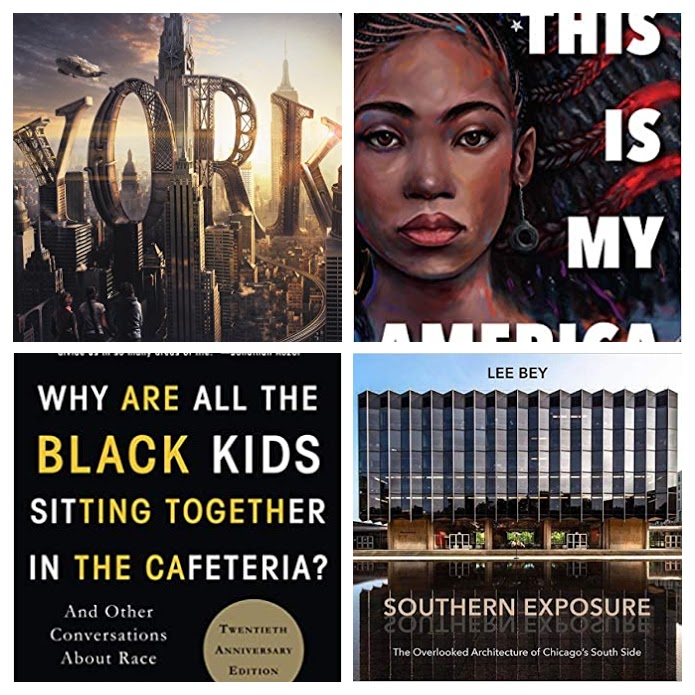
4-star reads
- The Shadow Cipher (York #1), Laura Ruby
- This Is My America, Kim Johnson
- Why Are All the Black Kids Sitting Together in the Cafeteria?, Beverly Daniel
- Southern Exposure: The Overlooked Architecture of Chicago's South Side, Lee Bey (4.5)
honorable mention (3+ to 4- stars)
- Hench, Natalie Zina (3+/4-)
- We Are Not Here to Be Bystanders, Linda Sarsour (3+)
- Later, Stephen King (4-)
- How to Be Less Stupid About Race: On Racism, White Supremacy, and the Racial Divide, Crystal Marie Fleming (3+)
30 March 2021
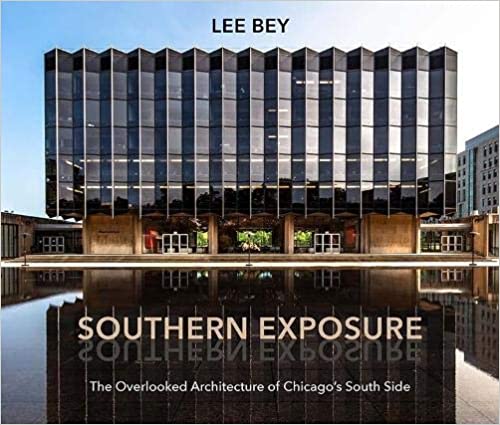
I grew up in the South Side neighborhood of Hyde Park, and have always had an interest in architecture. I'm also an age-mate of the author's, though we went to different high schools and have never met. We have personal connections, which warms me.
The book is full of gorgeous photographs of architecturally and socially important buildings. In addition to text describing the buildings and their significance, the author highlights the gross inequities in treatment of the South Side people, neighborhoods, and structures. For instance, Bey talks about two nearly identical school buildings—one on the North Side and one on the South Side. The former is a landmark—protected and maintained—the latter is not. This is just one of many examples given of ways that the South Side is left to rot. It's unconscionable.
I recommend this for anyone interested in Chicago, architecture, photography, racial and social justice, urban planning . . . pretty much anyone.
30 March 2021
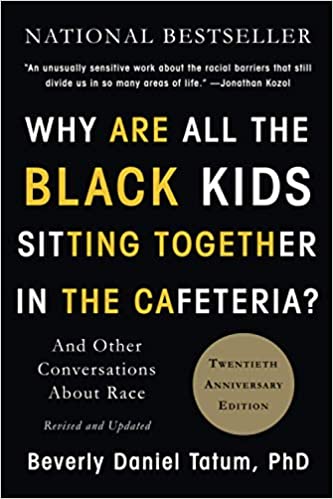
This book is more academic in tone than some of the antiracist books I've been reading. That works for me, overall. The author uses examples from her personal experience (including in raising her children) and from her teaching and lecturing experience. While the focus is on Black experiences, there are also Native, Asian, Latinx, and Muslim perspectives.
25 March 2021

The staff and Board of Palatine Library District stand in support of Asian and Pacific Islanders who are experiencing an increase in hate crime, violence, and harassment. Palatine Library District does this in solidarity with the Reaching Across Illinois Library System (RAILS), Illinois Library Association (ILA), American Library Association (ALA) and the Asian/Pacific American Librarians Association (APALA), recognizing and strongly condemning the rise in anti-Asian hate crimes in the United States.
Asian and Pacific Islanders should feel safe and free from racial discrimination in all public spaces. At Palatine Library District, it is our mission to welcome everyone to access diverse materials, collaborative spaces, technology, programs, and services. To find out more about our ongoing commitment to equity, diversity and inclusion please visit this page.
25 March 2021



Construction update! Renovations are well under way and we are getting excited seeing it all come together.
Pictured: new carpeting in the Marketplace area and Teen Room, and rubber flooring in our new Workshop Lab.
Phase 1 renovation is expected to be complete around mid-April.
24 March 2021
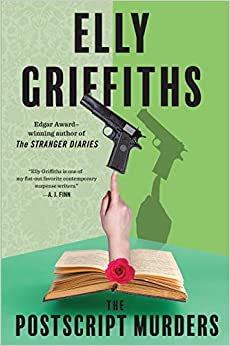
The most interesting character to me was 90-year-old Peggy—alas, the first person murdered, right out of the gate. We learn that she had served as a "murder consultant" of sorts to several mystery writers. How fun is that?!
All in all, I think this series might be a bit too cozy for me. It's being pitched to Agatha Christie fans, which I was when I was eight (and a bit beyond)—a mighty long time ago. I may still follow the series, with hopes of Harbinder becoming a more whole and interesting person. I also like some of Griffiths' other work.
23 March 2021

We currently have several job openings including a Human Resources Manager, Communications Coordinator, and several part-time positions.
Get all the details here.
20 March 2021
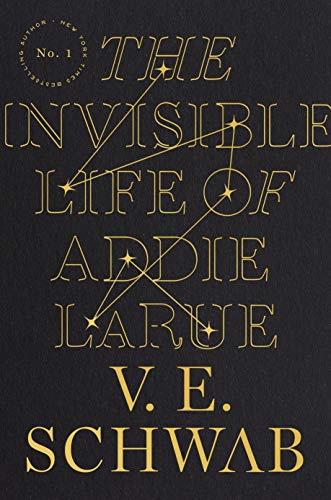
[Full disclosure: I'm on the (hopefully) final "vacation" of this pandemic—time off without the freedom to explore—so I'm not going to put more effort into my review at this point. However, if anyone wants to discuss the book, I'm open—hit me up!]
17 March 2021
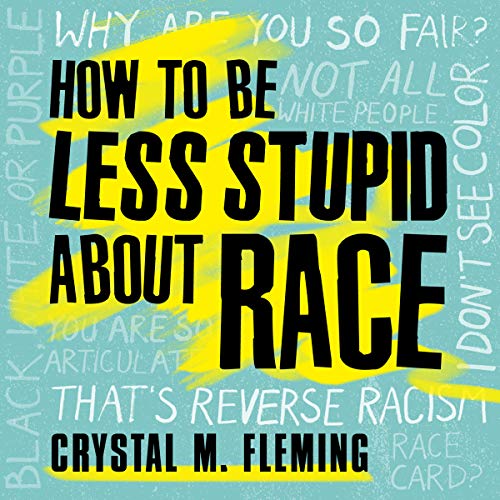
Pros: frank and factual presentation of the USA's history of white supremacy, resource distribution, wealth gap, affirmative action, intersectionality, Black women's roles (and why we should all be listening to them), slavery, sexual violence, mass media, and misrepresentation of criminality by race.
16 March 2021
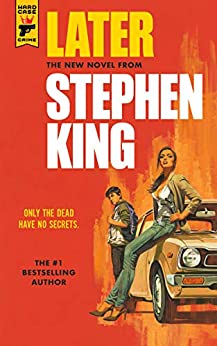
Later, like Joyland, is a "Hard Case Crime Novel." Both are still pegged as horror genre by some. I would consider them "horror lite," at best. I wish I had known to count every time Jamie says something to the effect of "Like I said, this is a horror story." If you read it, please count from the beginning and report back. I'm not sure why this comes up so often (Who is he trying to convince?) or whether I find it more irritating or amusing (probably irritating). I'm a little surprised that King would make such a big deal of this. Maybe it's a dig at those who pigeonhole all of his work into the horror genre.
I so appreciated King's/Jamie's humor throughout the book, including the following:
Do not trespass. We are tired of hiding the bodies. —sign on the gate at Cobblestone Cottage
“Ewww!" I said this in a way that meant “Gross! Tell me more.” —Jamie, age 9
"Books are a uniquely portable magic. I read that somewhere." —Jamie [It's an oft-used Stephen King quote]
I might like to discuss the issue of Jamie's parentage—and its place in the story—with others. You know where to find me if you also want to discuss that.
I'm rating this 4- (3.66) because there's something not sitting quite right with me. I may bump it up later, for what it's worth (absolutely nothing, I know).
14 March 2021
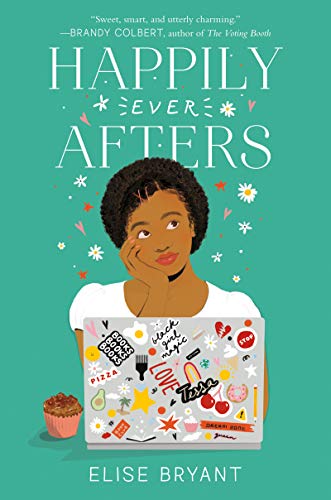
Main character Tessa is an inexperienced teenager, so her clumsy relationships and major missteps are understandable and appropriate for this YA romance.
Pro: diversity; disability issues; friendships
12 March 2021
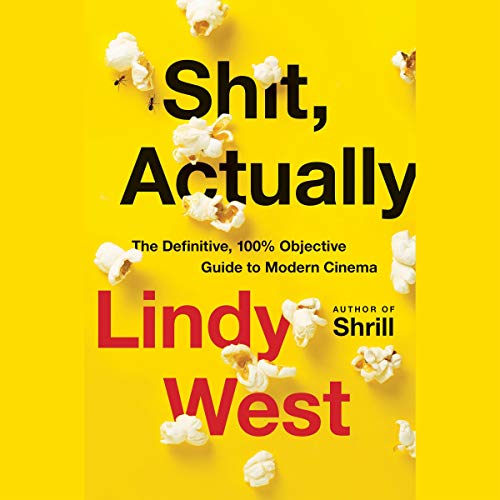
This is—at least at first—pretty funny. After a while it's a bit tiresome. So, perhaps it's not a read-through-in-one-sitting book so much as a leave-it-on-the-coffee-table-for-occasional-installments kind of book.
I very much appreciated West's The Witches Are Coming. Her social commentary style and intelligence are evident in this book, as well.
10 March 2021
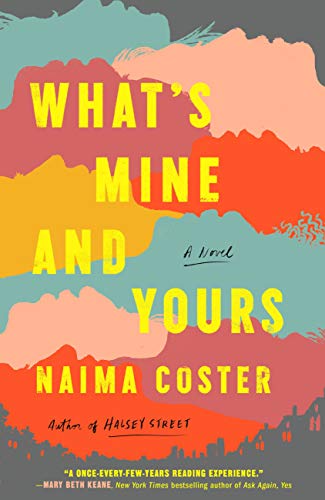
My dislike of this book surprises me, as I generally feel that relationship-building is critically important in real life and in fiction—this book is chock-full. However, I find almost all of the characters so unpleasant and uninteresting, that both the relationships and the character-building are actually liabililties. SPOILER ALERT—click to reveal
There is one exception to my dislike of the characters—Gee's de facto stepfather, who is shot and killed so very early on in the story. Some other readers have mentioned Gee as an appealing character—I didn't get much of a chance to evaluate him.
In addition to the overall ick factor of the characters, the story jumps all over the place from chapter to chapter, between families and timelines. That can be done well, but hasn't been in this case.
Given that my Overdrive pipeline is quite full at the moment (it tends to be feast or famine), I'm cutting my losses and moving on.
10 March 2021
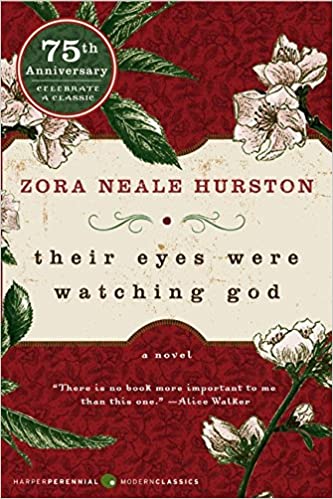
The language is sometimes beautiful and rich. It took a bit to become accustomed to the dialect.
I think I liked Hurston's posthumously-published short story collection Hitting a Straight Lick with a Crooked Stick more, which is unusual for me.
[This rating is, possibly, a placeholder.]
9 March 2021
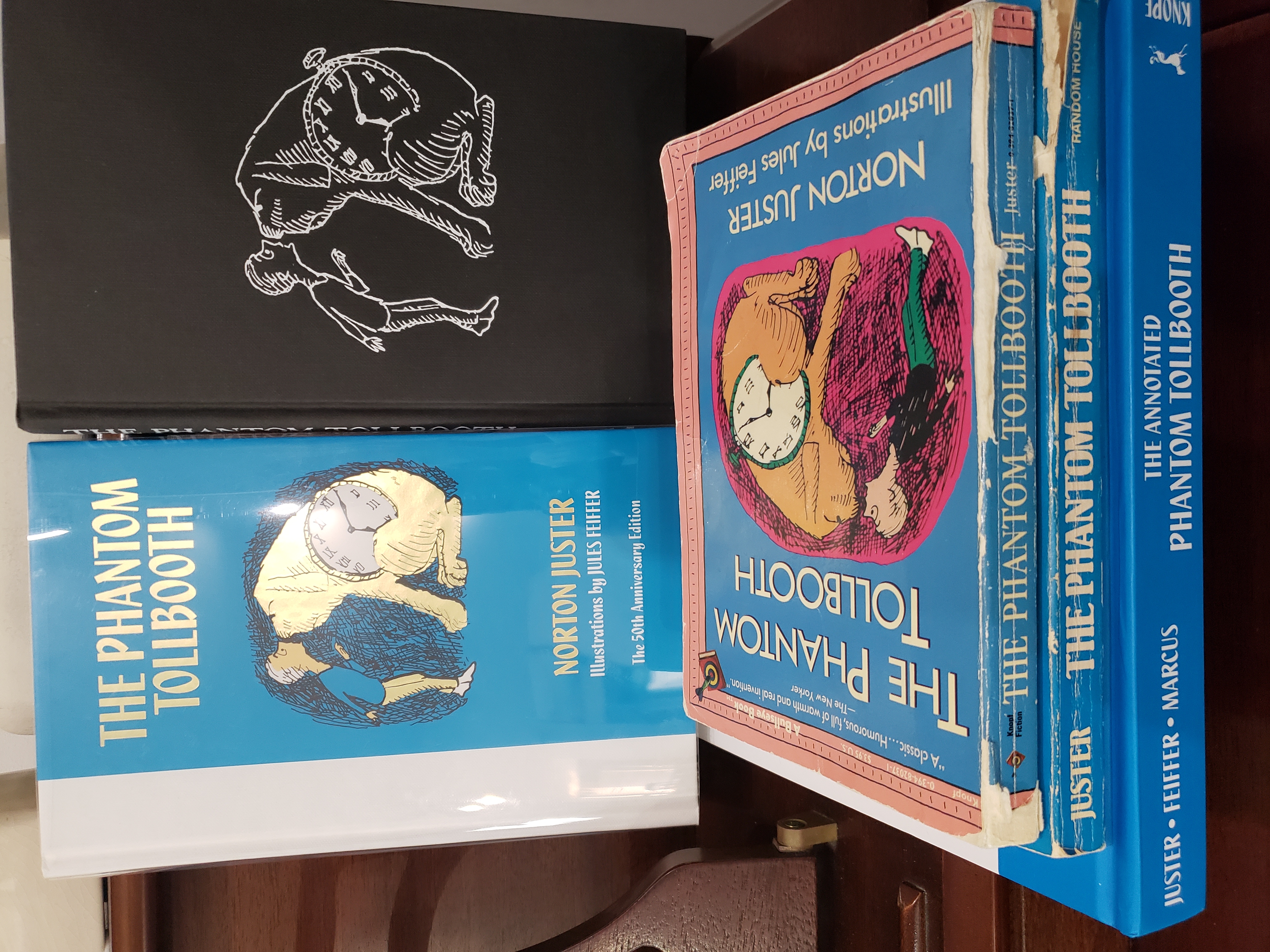
While it was published before I was born, I first read it when I was around six, having been introduced by one of the students who lived in the University of Chicago men's dormitory in which my parents were resident heads—one of my ~40 big brothers/year.
I have read it countless times: to relax and get to sleep (never too old for a bedtime story), to my own children, over the phone to a friend recovering from surgery—no matter how many times I read it, I love it.
I own multiple copies, and I won't give up any of them. In addition to those pictured, I own two audio editions: one narrated by David Hyde Pierce and the other by Rainn Wilson.
I have a T-shirt that has seen better days, which is OK, because I have a couple back-ups to wear when this one is done.
I probably should have named one of my children Milo—I might have floated the idea and been overruled, but I don't remember. [I was definitely overruled for suggesting Linus and Geoffrey, but that matters not.]
Because I didn't name one of my children Milo, I did name my beloved ball python Milo. Like his namesake, he's sort of uninspired at times, but very curious when offered the opportunity for adventure.
I was delighted to read today that Berkeley Breathed was so influenced by The Phantom Tollbooth that his first Bloom County character was named Milo, his son is named Milo, and the first chapter book he gave to his son was The Phantom Tollbooth. [This is true for me, as well. I bought a copy of The Phantom Tollbooth for my first-born while he was in utero. He's had more than one copy since.]
So, farewell and hearty thanks to Norton Juster who died yesterday at the age of 91. Read his obituary here.
8 March 2021
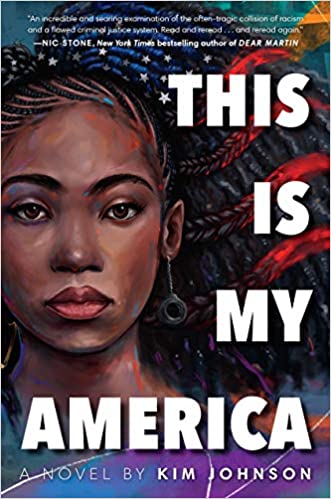
MC Tracy is a Black teenager living in Texas, whose father has less than a year remaining on his (false) death penalty conviction of murder. Soon after the story opens, her brother goes on the run because he has been accused of murdering a white girl. Tracy has been writing for seven years to Innocence X—an organization that sounds like Bryan Stevenson's Equal Justice Initiative—begging for help with her dad's case. [Read Stevenson's Just Mercy, if you haven't already.]
This story has multigenerational family and community relationships and stories feeding into the mysteries.
I definitely recommend this for readers of most ages, with the caveat that parents might like to read first and make a determination of suitability for their younger readers, or, read with children, taking discussion breaks (the latter being a favorite method of mine when my kids were young).
8 March 2021
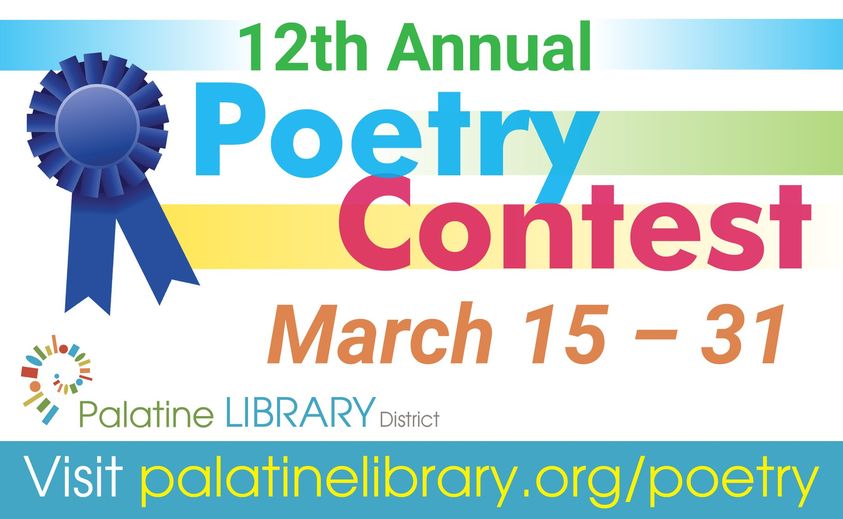
Our 12th Annual Poetry Contest starts March 15! Submit one original poem on any topic for a chance to win cash or a gift card. Open to all ages.
Need inspiration? Writing prompts are available on our website.
6 March 2021
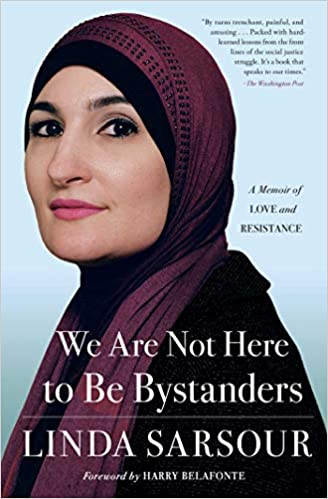
5 March 2021
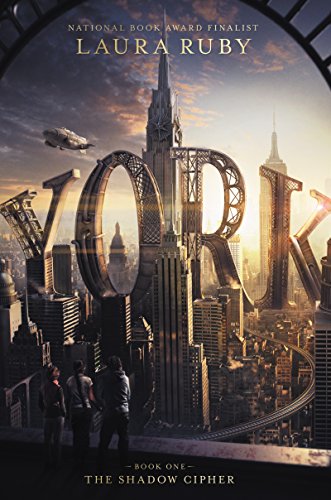
I still very much enjoyed this story about three almost-eighth-graders—twins Tess and Theo, along with their neighbor Jaime—who are racing against the clock of their impending eviction to solve the mystery of their apartment building, architected decades before by another set of twins.
The story is not so tame as to be boring to those of us well outside the target audience. I'm glad I reread it, and I'm looking forward to the next installments!
2 March 2021
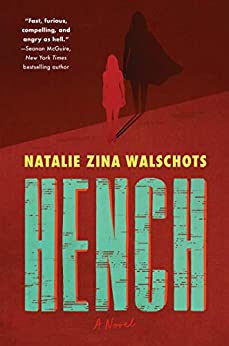
What started as a potential 4-star read became somewhat tedious toward the end.
SPOILER ALERT—click to reveal
I found the end unsatisfying, as if the author has already started (or at least promised) a sequel.
28 February 2021
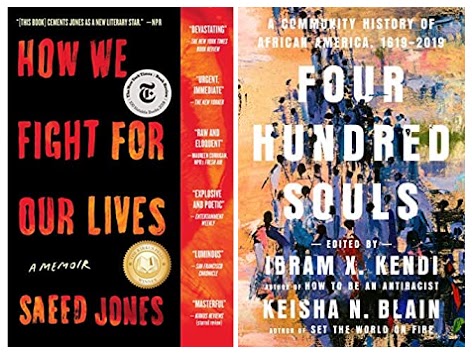
4-star reads
- How We Fight For Our Lives, Saeed Jones
- Four Hundred Souls: A Community History of African America, 1619–2019, Ibram X. Kendi & Keisha N. Blain, editors
honorable mention (3+ to 4- stars)
- For We Are Many (Bobiverse #2), Dennis E. Taylor (3+)
- The Stranger Diaries, Elly Griffiths (4-)
27 February 2021
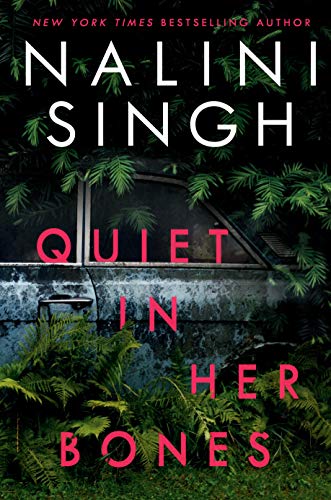
25 February 2021
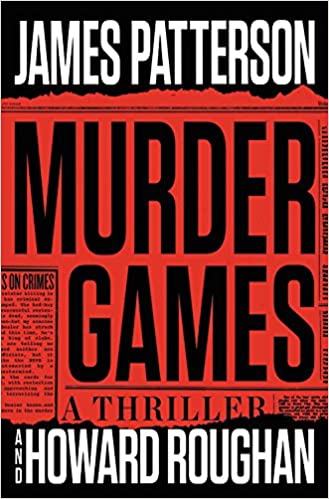
It wasn't until I started the TV series "Instinct" for the second time (to be companionable with my partner during our pandemic-increased media consumption) that I realized the series was based on this book. [In all honesty, watching is not always what I do with TV—often, I am mostly listening while I knit.] The pilot episode corresponds to Murder Games. In a perfect world, we'd get delivery of a tight, thrilling mystery product lasting somewhere between 43 minutes (granted, a little rushed for introduction to the recurring characters) and 340 pages (too long for the limited amount of valuable content—possibly even less character- and relationship-building in the book than in the TV pilot!).
I might still read the second book . . . if I'm really desperate for a new read. It won't be high on my wish list.
24 February 2021
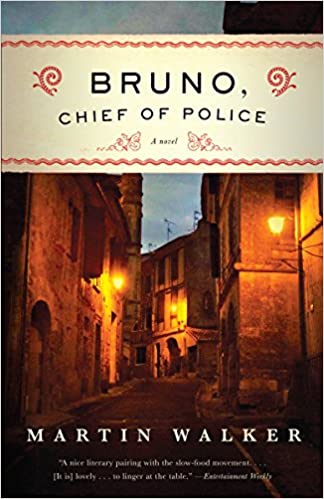
Bruno is an ex-soldier who lands in a small French countryside community in which he is the only police officer (and part-time youth soccer coach), and spends a lot of time playing, cooking, and romancing.
Pro: picturesque France, (minor) relationship-building, portraying nuances in law/justice (I may be stretching here—trying to appreciate the book more)
Con: trying to cover too many bases (travel, food, history, mystery, romance), and ending up short on all
22 February 2021
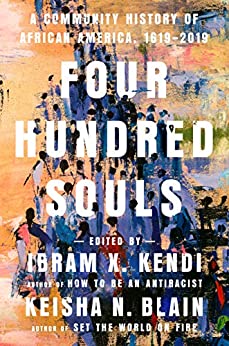
The essays and poems are written by 90 Black American writers. I read with my ears, and will read again (at least the 11 chapters that I bookmarked for specific reexamination) when my hold spot for a print copy comes up. I often read nonfiction with both my ears and eyes. Audio and print are excellent ways to read and absorb individually—together, one gets a deeper experience. This will be especially true, I think, in a collection such as this, written and narrated by so many powerful voices.
20 February 2021
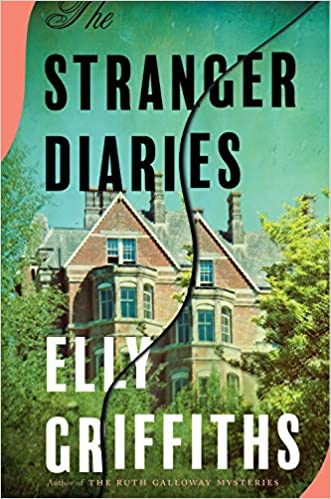
Of the six tidbits I highlighted, two are Clare's, one is Georgie & Clare's, one is Georgie's alone, and two are Harbinder's. I wasn't enthralled with Harbinder—I'm willing to see if I warm up to her in book two (due out in March).
18 February 2021
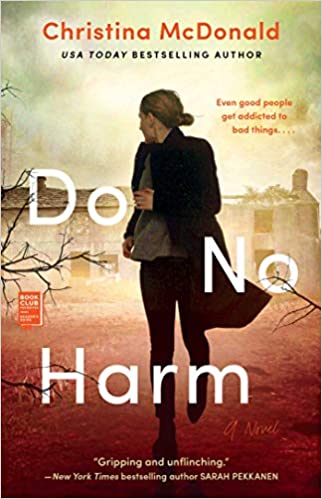
17 February 2021
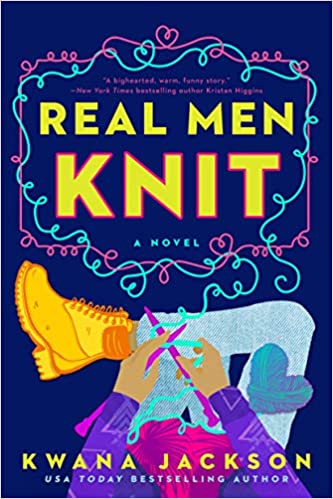
Despite all of these positives, the book wasn't particularly satisfying. It was a fine, light read, but not exciting or reread-worthy.
16 February 2021
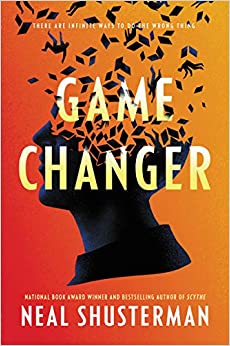
Pro: relationships with Ash’s brother, Hunter, and original-universe best friend Leo and school friend Katie
Con: preachy thought monologues; white cis male MC who doesn’t see his privilege until it is taken away from him; the Edwards; shallow, ineffective exposure of/commentary on most of the main issues (racism, homophobia, domestic abuse)
14 February 2021
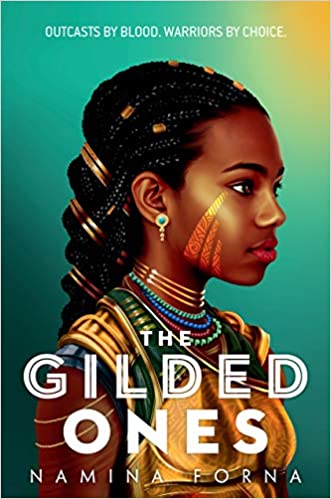
14 February 2021
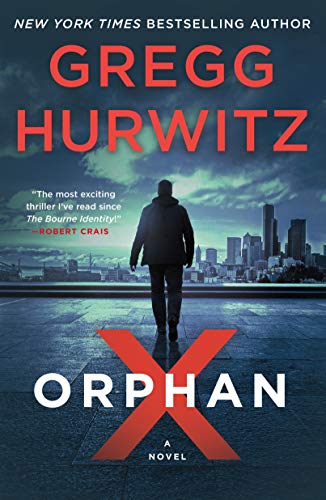
13 February 2021
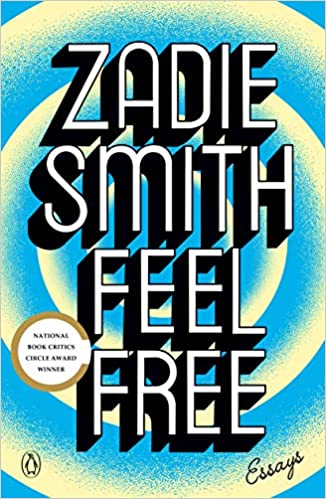
11 February 2021
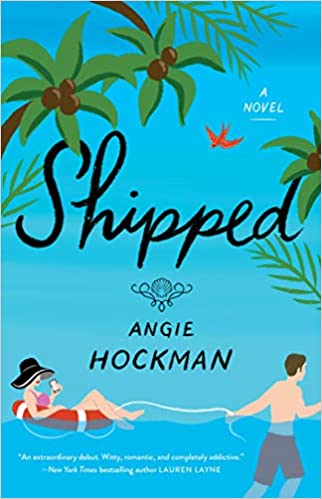
One of the big problems with the genre, IMHO, is the "girl meets boy; girl is irritated by/hates/seriously resists boy; girl ends up madly in love with boy" plot. It's rare that the man has to be brought around. Oh, boy—it was touch and go there for a while with Shipped.
SPOILER ALERT—click to reveal
Finally, after a great deal of the above nonsense, Henley ("girl") amasses enough information that she decides to trust Graeme ("boy"), and she claims her own power in her career, along with—and acknowledging—the significant help of several other women. Boom—happy ending, all the way around!
There was precious little humor in Shipped. In Chapter 10 (30% through the book), there's this moment of relief:
Pushing up the brim of her floppy sunhat, Sharon clucks, "I hope you don’t mind me saying, but that man is a whole treat, or is it a meal? What do kids say these days?" "Snack, he’s a whole snack." . . . When it comes to looks, she's right. Graeme is, objectively speaking, a total snack.
I'll give a tiny bit of relationship credit for Henley's cat and sister, and Graeme's dog and mom. There are a couple of healthy-looking relationships between supporting characters.
10 February 2021
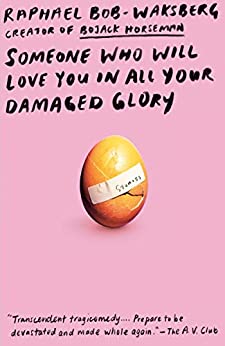
While I'm not generally a short story fan, I enjoyed this collection more than most. My particular favorites were:
- "A Most Blessed and Auspicious Occasion," in which a young couple planning their wedding faces interfering relatives and friends chiming in on the appropriate number of ritual goat sacrifices to be made (among other things)
- "We Men of Science," in which a professor visits another version of himself and his wife in a parallel universe
- "Rufus," about a dog who is frustrated with the poor communication skills of his owner
10 February 2021
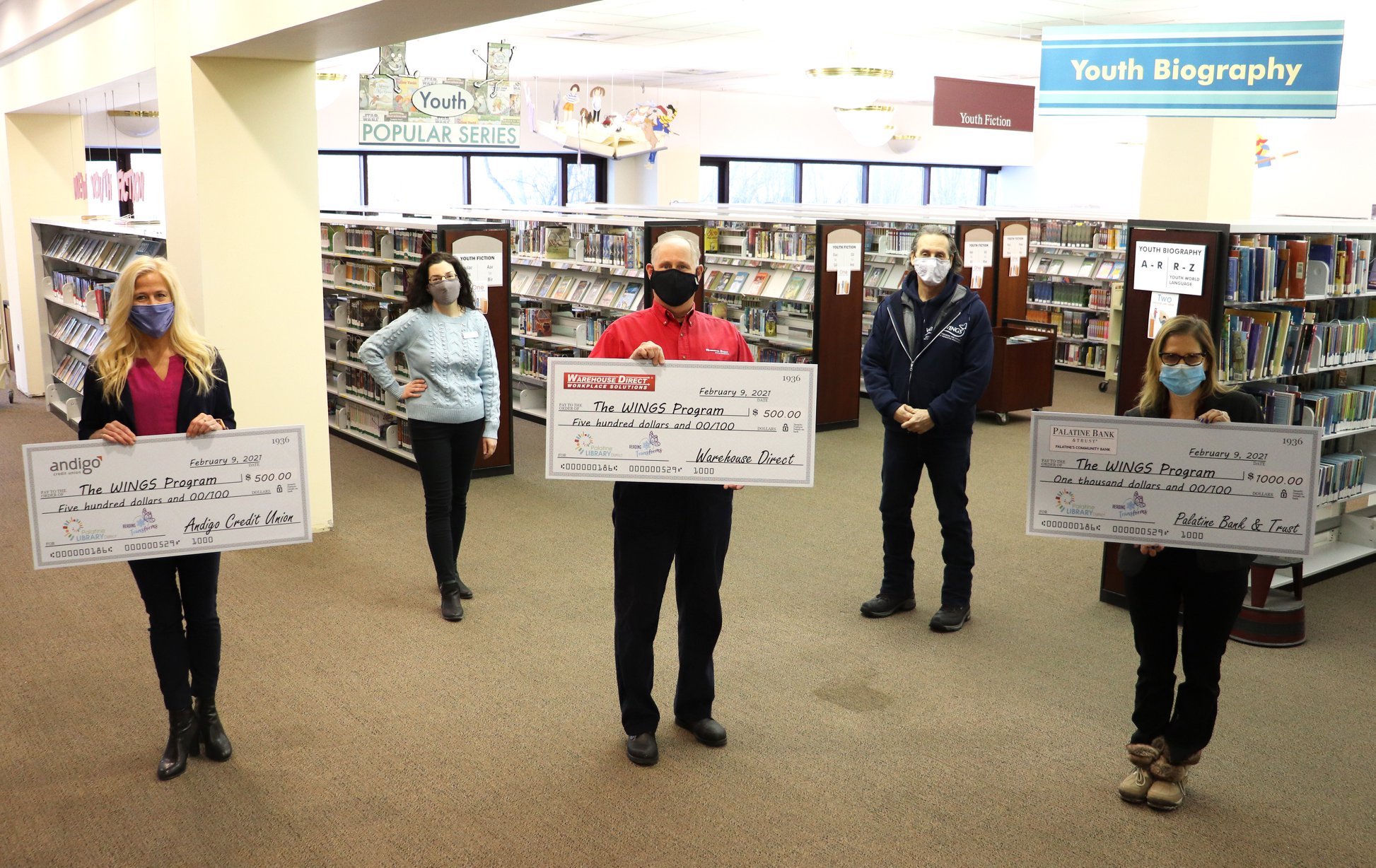
Way to go, PPLD winter readers!
This news from PPLD:
With your help, we read a total of 7,101 books read and smashed our goal of 6,000 for this year’s Winter Reading Challenge! Palatine Bank & Trust, Warehouse Direct, and Andigo, a division of Consumers Credit Union, presented their donations to WINGS Program, Inc.
We are so proud of our community of readers to achieve the goal this year. Despite Covid-19, you stepped up and joined our effort to support the WINGS Program, which serves families affected by domestic violence.
Photo Left to Right:
- Julie Selof—Andigo Credit Union
- Kathy Burns—Palatine Library
- Neil Bruns—Warehouse Direct
- David Kahan—WINGS Program
- Bridget Witt—Palatine Bank & Trust
Thank you to our generous partners for their donations!
- Palatine Bank & Trust—$1,000
- Warehouse Direct—$500
- Andigo Credit Union: andigo.org and myconsumers.org—$500
9 February 2021
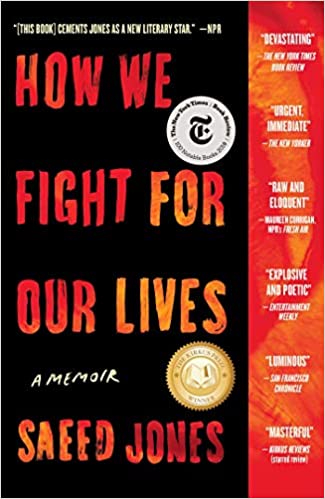
Pro: relationships with his mother and grandmother; candid portrayal of his feelings of self-worth, how he treated himself, and how he allowed others to treat him and change him/how he interacted with them; moments of humor; commentary on systemic racism's role in his family's lives; an experience shared with an unrelated woman he met while traveling.
Content warning: There were scenes including explicit sex, violence, and sexual violence. [This made me pause in deciding whether to continue/how to rate. Ultimately, I didn't factor it into my rating. That is, the book would not have been a five-star book if those scenes were omitted.]
7 February 2021
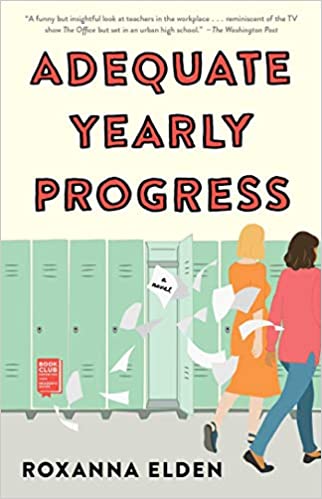
4 February 2021
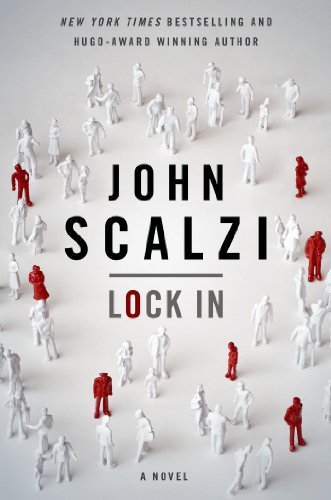
Lock In is billed as science fiction and mystery. It's markedly different in tone from Scalzi's other books (i.e. no humor or silliness, which is generally what I seek when I turn to Scalzi). The mystery is not at all challenging. [Mystery has long been my favorite genre, so this is mildly disappointing.]
As I mention often, character- and relationship-development figure prominently in my ratings. This has enough of both that I'll read the sequel. [It doesn't hurt that I already own both books.]
2 February 2021
The second installment isn't quite as good as the first, but it still made me laugh out loud (more than once). Funny/silly sci-fi is a guilty pleasure that is exactly what is needed right now to take the edge off pandemic life.
2021
[photo by Markus Winkler from Pexels]
Happy New Year! Did you miss me as much as I missed you?
While this site was sleeping, the rest of the Trustees and I have continued improving PPLD for the community. [I have been posting on my Trustee Facebook page, so feel free to catch up on things there, too.]
In addition to all of our typical favorite features, there have been a couple of big changes in the last couple of years.
PPLD has added an interesting and varied collection called the Library of Things, including board games, craft kits, STEAM kits, telescopes, ukuleles, cameras, and more. Check out the Library of Things.
As you probably know, PPLD has started its major renovation project (the first major changes since this building opened 28 years ago). It's moving along nicely, and I know we're all going to appreciate the improvements, including The Workshop (a makerspace). Check out details and photos.
Finally, I'm going to try something new this year, just for fun. I'm going to add reviews of my personal reading to the blog. Some reviews may be more comprehensive than others. I'm hoping to be able to spark conversation with you. [My in-house tech department hasn't given me the green light on this yet, but I've submitted my request. Stay tuned!]

February 16, 2018 at 2:51pm
You never know what treasure you'll find at a Friends of the Palatine Library sale. See you there!February 9, 2018 at 11:38am
Due to the inclement weather, the Library and all Branches are CLOSED today.But, have no fear! If you didn't make it to the library yesterday, you can still stock up on materials from the comfort of home. PPLD Andrea reminds us, “On days like today when you don't want to go outside, it's really great to be able to access so much from our digital services. Download ebooks, music, movies, and magazines from hoopla, MyMediaMall, or RbDigital.” Click on my lunch photo above to access PPLD’s digital media information page.
I plan to enjoy a combination of physical and digital library loans—and a lunch much like this one—any minute now.
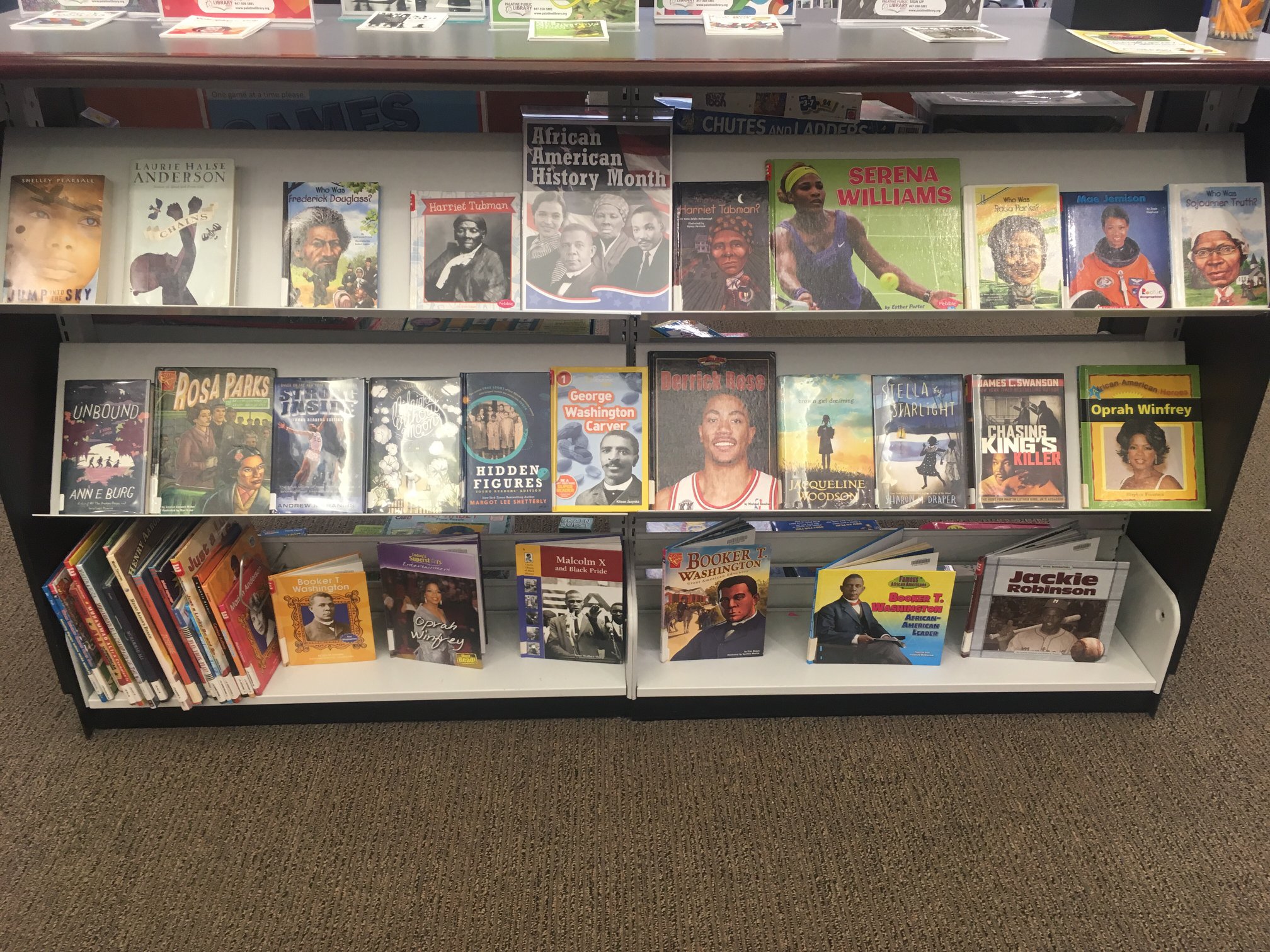
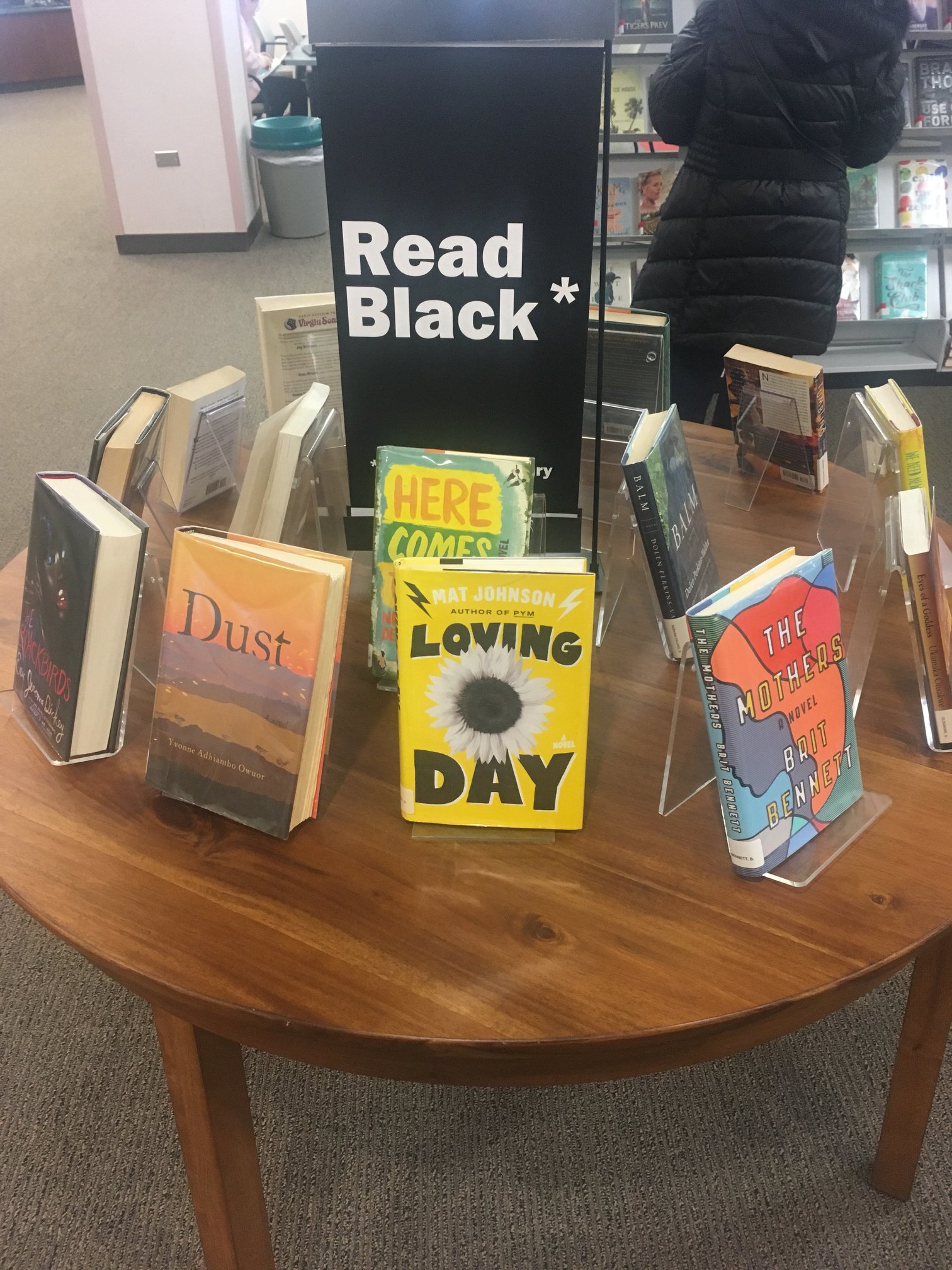
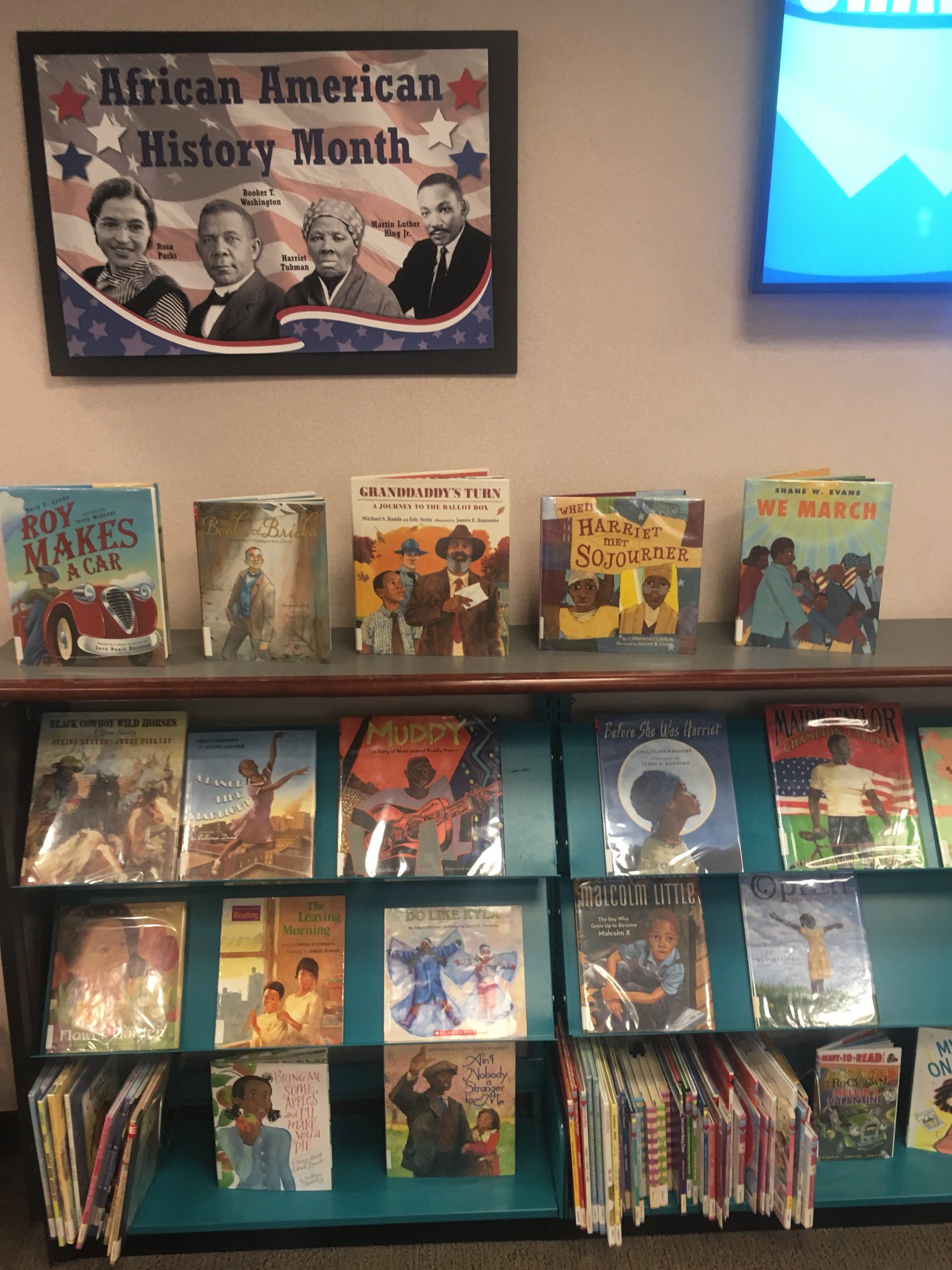
February 8, 2018 at 1:17pm
February is African American History Month. Next time you visit, check out our book displays dedicated to African American history, culture, and authors.[photos and text credit to Kiel via Palatine Public Library’s Facebook page.]
January 29, 2018 at 10:05am
Way to go, Palatine Public Library readers! Together, we reached our goal of 5,000 books during the Winter Reading Challenge, with more than a week to spare!You still have until Wednesday to log your books. If you’ve read at least two, you’ll be entered into the gift basket raffle.
Happy winter reading, neighbors!
Update: Click on the photo to read the Winter Reading wrap-up news.
January 20, 2018 at 5:13pm
Have you used Palatine Public Library’s Book Club In a Bag service (for adults and children)? My friend Mary’s book club has been using it for years. Today, I picked up my neighborhood book club’s first BCIaB!The kit includes the books, discussion questions, and the handy tote. Extended lending period can be arranged. It’s so easy! Complete the form here.
Thanks, Palatine Public Library!
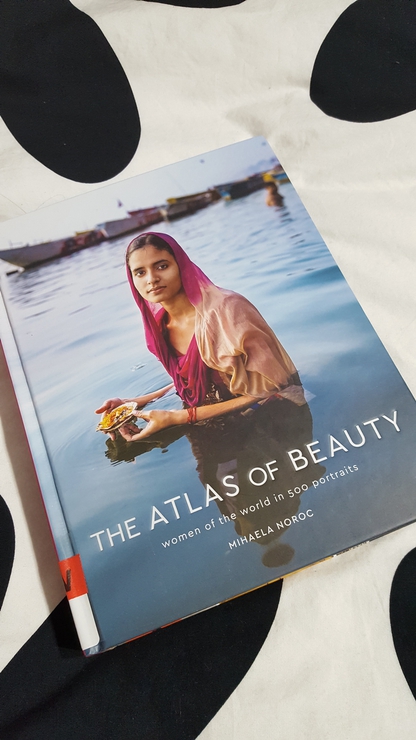
December 20, 2017 at 4:30pm
Imagine my excitement today when a friend posted this video. This project resulted in a book that is currently in my possession—I borrowed it from the PPLD collection! Thanks, Palatine Public Library, for your excellent and comprehensive collection management skills!P.S. I was able to borrow this book so quickly after it entered the collection because I have an alert set for new additions in portrait photography. Try setting an alert for something that floats your boat!
December 15 at 5:00pm
Happy Winter Reading Challenge launch day! Register online or in-person at any branch. Don’t dawdle picking up your registration prize (penguin plush for kids/soup mug for adults)—they’re going like hotcakes! Don’t forget to pick up some fresh reads, too. I am ready for the weekend!November 29 at 10:59am
The Palatine Public Library District Board of Trustees is pleased to announce our new Executive Director. Please welcome Jeannie Dilger to our community!November 16 at 8:29pm
The Absolutely True Diary of a Part-Time Indian is still on my daunting to-be-read list. Its appearance on the attached list reminded me of Alexie’s Reservation Blues, which I read in the fall/winter of 2000 for a book discussion group at Palatine Public Library, led by Gwenyth Udd. Check out these interesting stats about Native American Heritage Month.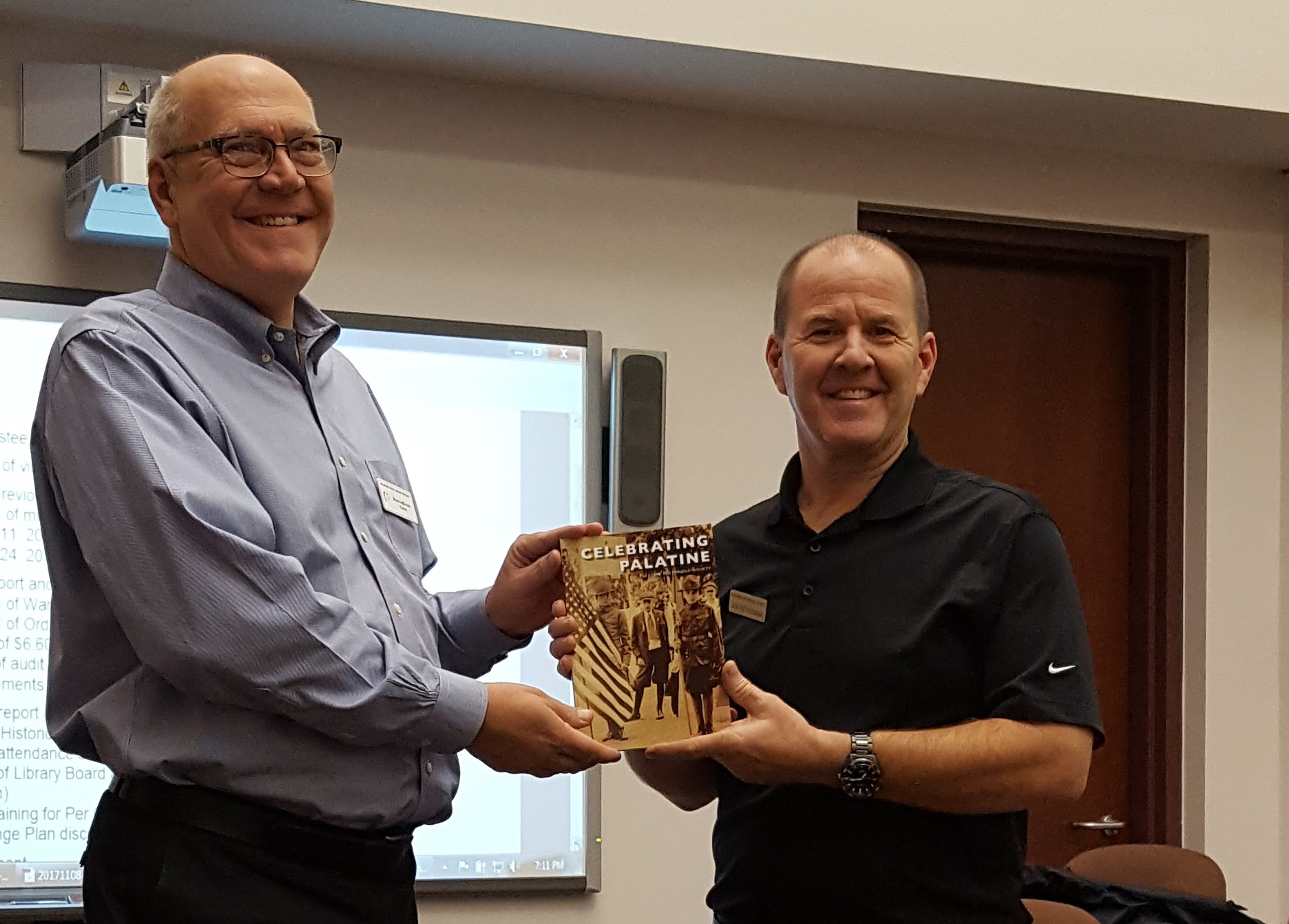
November 9 at 11:09am
Among our visitors to last night’s Palatine Public Library board meeting were three members of the Palatine Historical Society’s board: Joe Petykowski, Sue Minott, and Linni Pesch. In honor of our organizations’ longstanding close relationship, Historical Society board president Petykowski (right) presented “Celebrating Palatine”—consisting of 117 of the articles that appeared last year in the Daily Herald in celebration of Palatine’s 150th anniversary—to Library board president Bruce Jefferson. Ms. Minott thanked the library trustees and staff for service to the community; Ms. Pesch added warm thoughts and extended a Clayson House tour invitation. Thank you, Palatine Historical Society, for your gift, kind words, and continuing collaboration!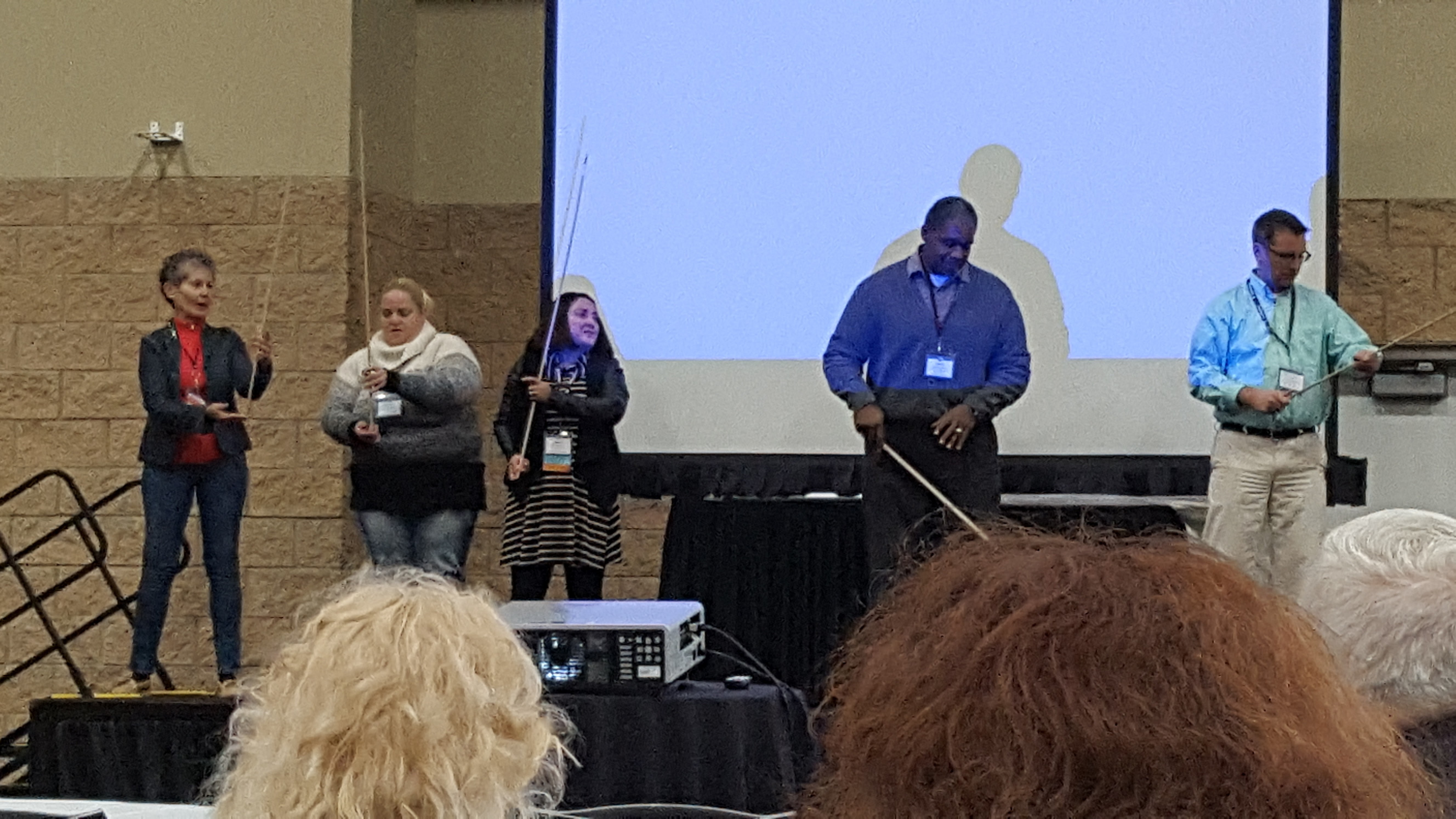
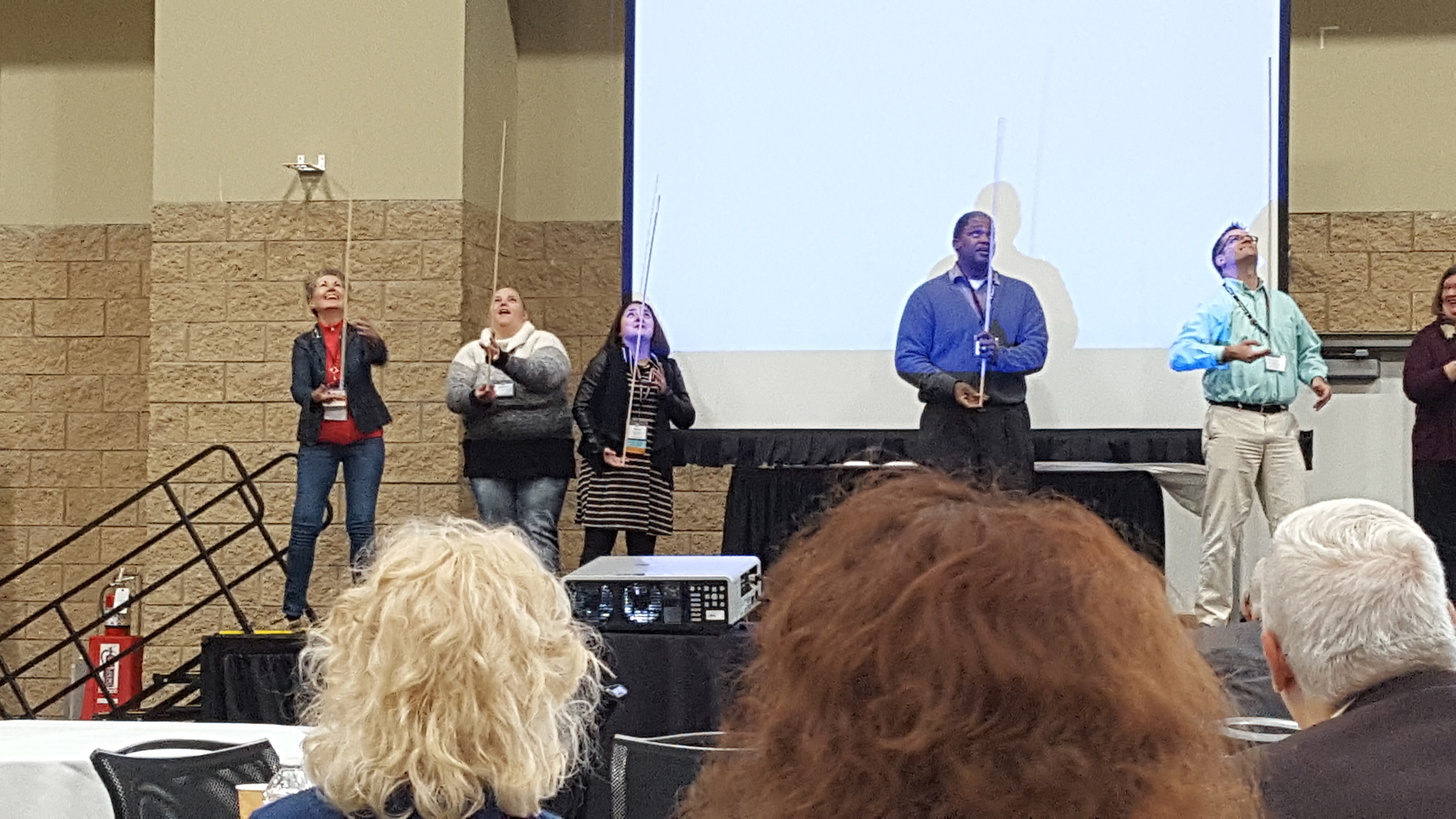
October 12 at 8:30pm
Illinois Library Association Trustee Day was inspiring and informative. I enjoyed meeting and learning with trustee and staff colleagues from across the state. Thanks, Illinois Library Association, for putting on a well-organized program with excellent content! #ILAAC17 #librariesrock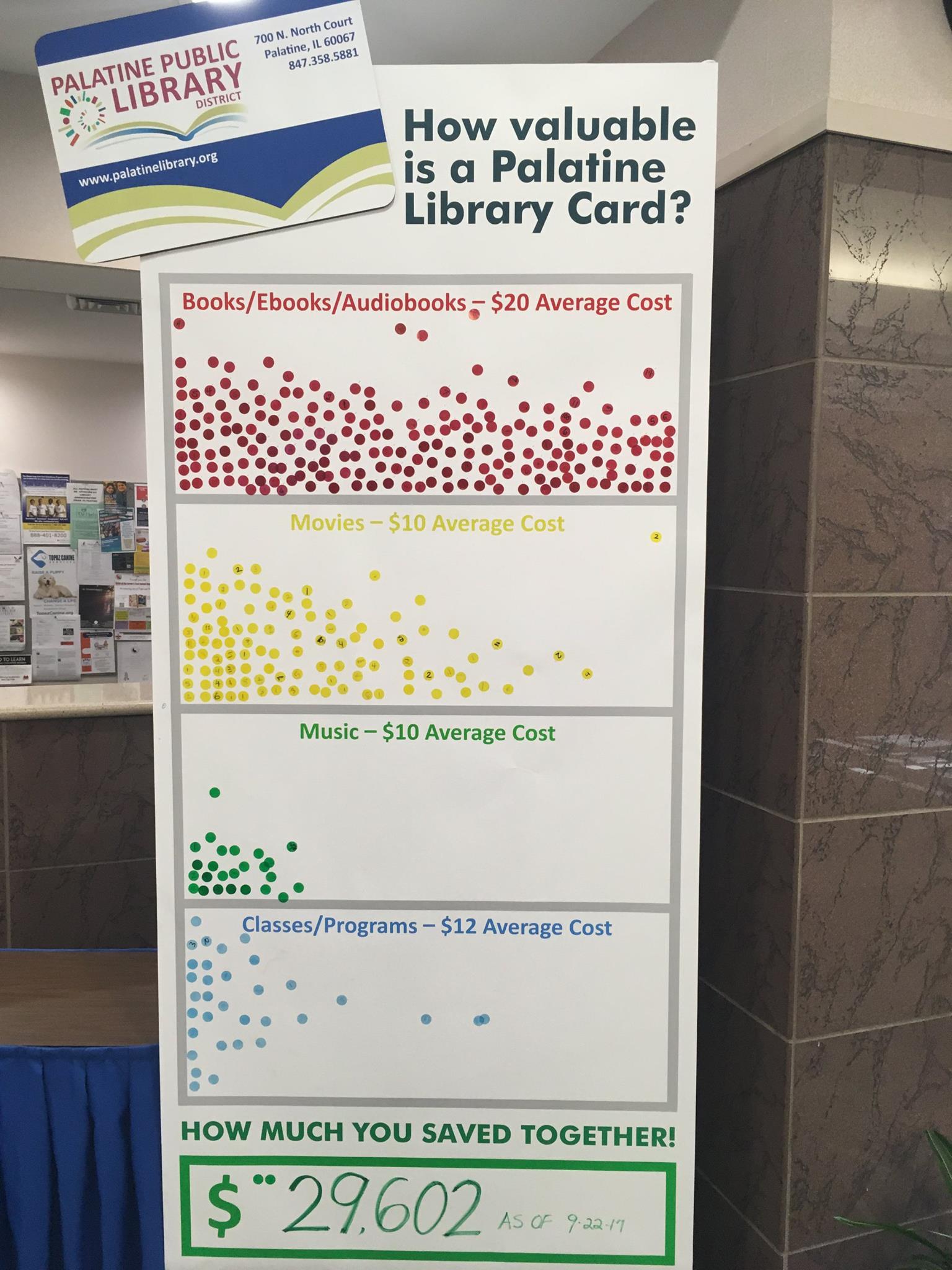
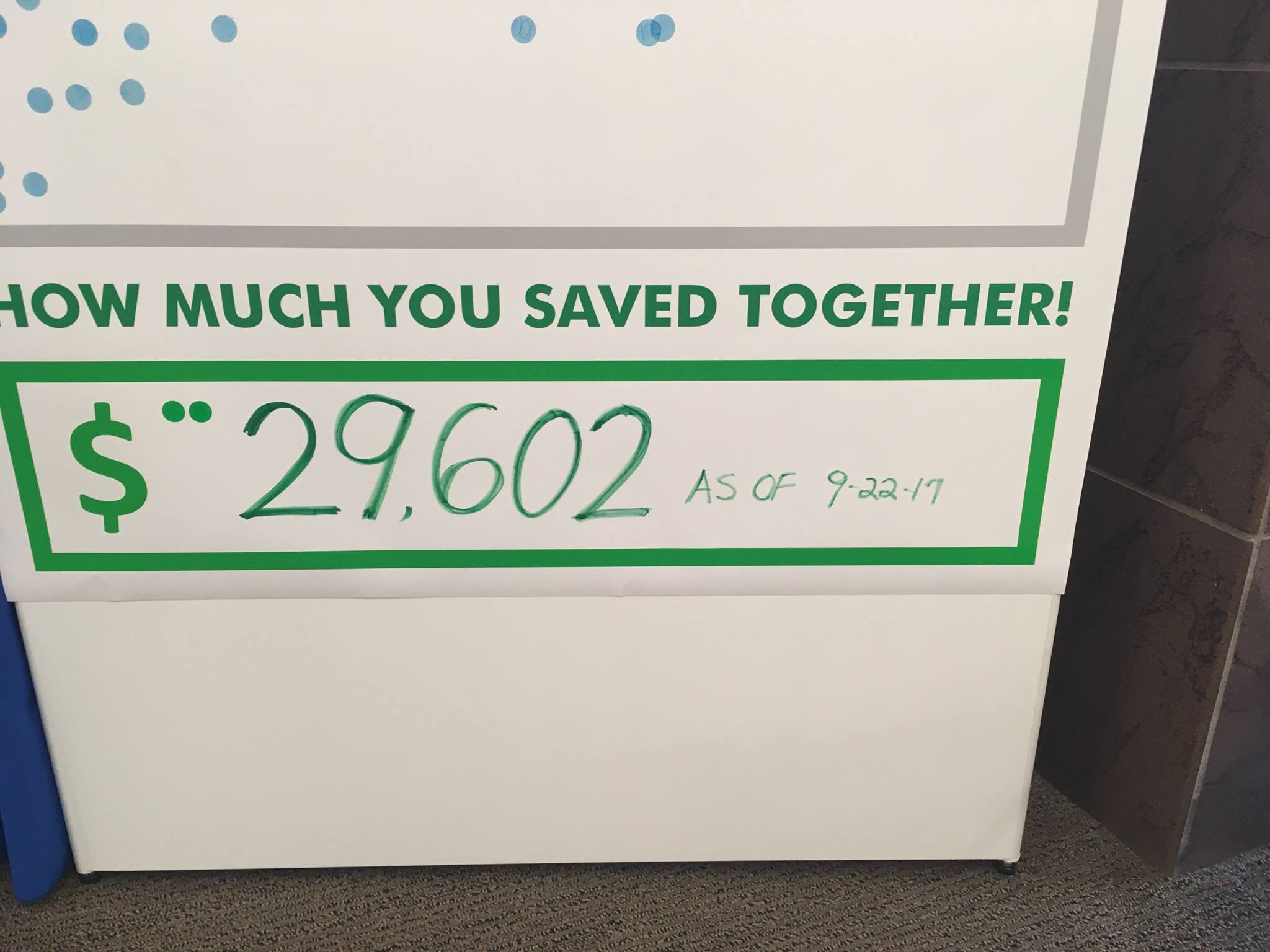
September 25 at 4:03pm
Check it out—as a community, we enjoyed Palatine Public Library to the tune of almost $30,000 last week alone! I enjoyed adding my stickers to the display during two visits last week. [Truth be told: I had to stand on my tippy-toes to apply my red stickers!]There’s always a lot going on at PPLD. Here’s just a taste of the week ahead, which happens to be National Banned Books Week:
Throughout the week, there are storytimes. Fun! In case you missed it last week, PPLD launched the 1000 Books Before Kindergarten program. Sign up at any branch.
9/28 History of Harper College program 7 pm, including a brand new book celebrating Harper’s 50th anniversary [book available for purchase].
9/29 Staff Development Day—LIBRARY CLOSED. While we’ll miss visiting that day, we’ll all enjoy the fruits of the staff’s development program.
9/30 Visit from Palatine Fire Department 10:30 am, weather permitting.
As always, see the calendar. You can register for many programs online.
Have a great week, all!


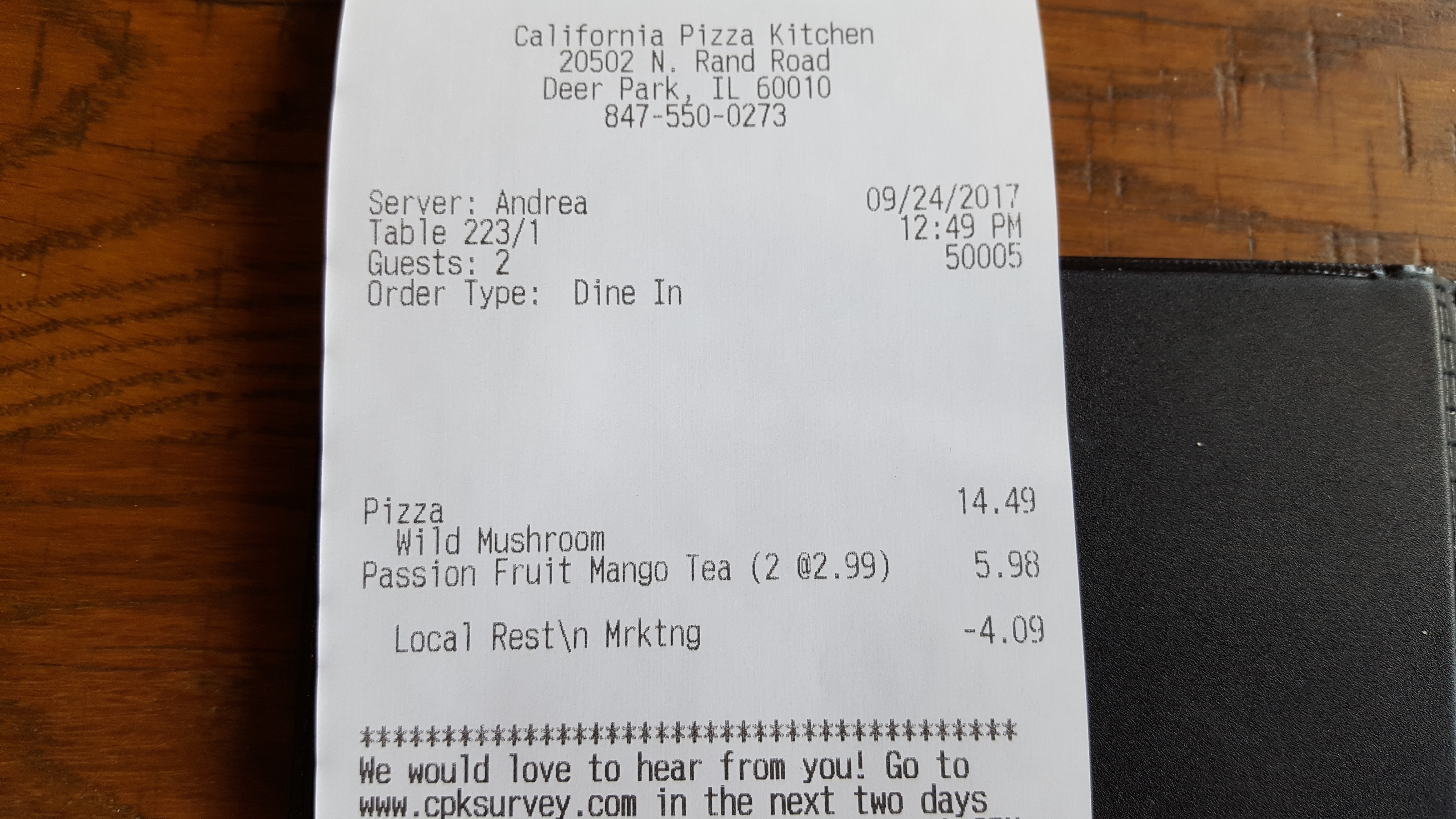
September 24 at 1:01pm
We had yummy lunch at California Pizza Kitchen and saved by showing my Palatine Public Library card. Where have you shown your card? There's still time to save. See details here.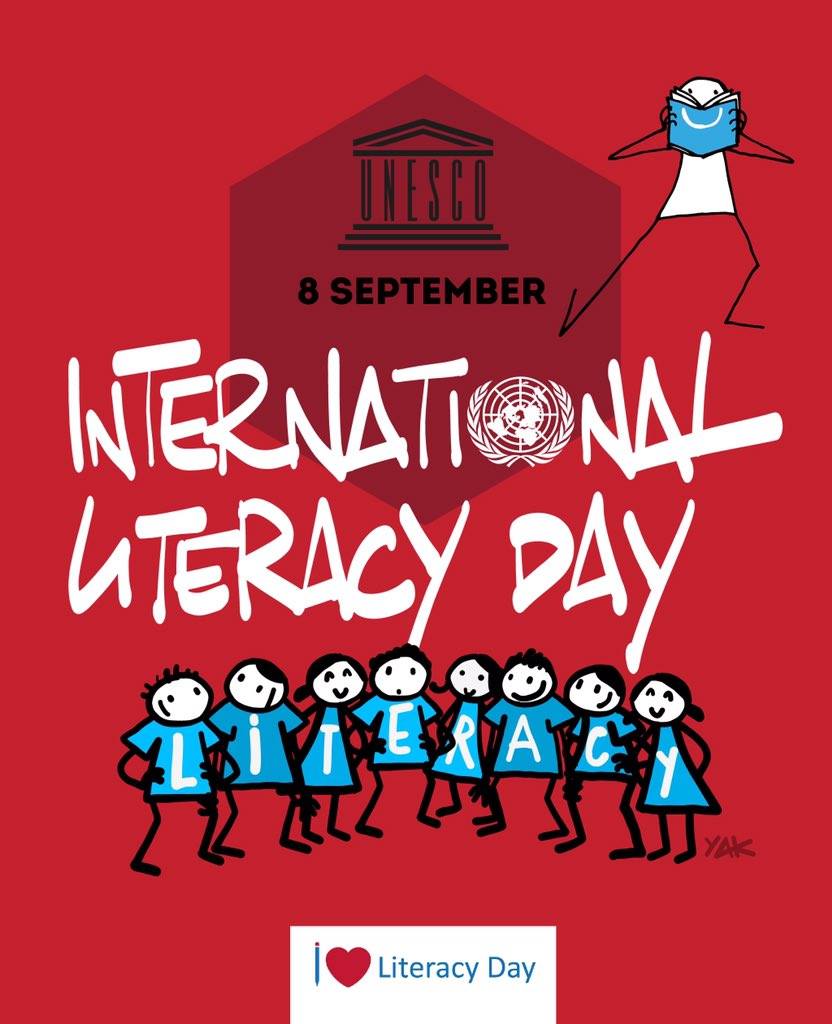
September 8 at 3:04pm
From UNESCO (United Nations Educational, Scientific and Cultural Organization): “September 8 is International Literacy Day! Let’s break the barriers of illiteracy and empower people’s lives!” Learn more here.
September 1 at 2:57pm
Happy September! Show your Palatine Public Library card for sweet savings throughout the month. See the list of participating businesses here.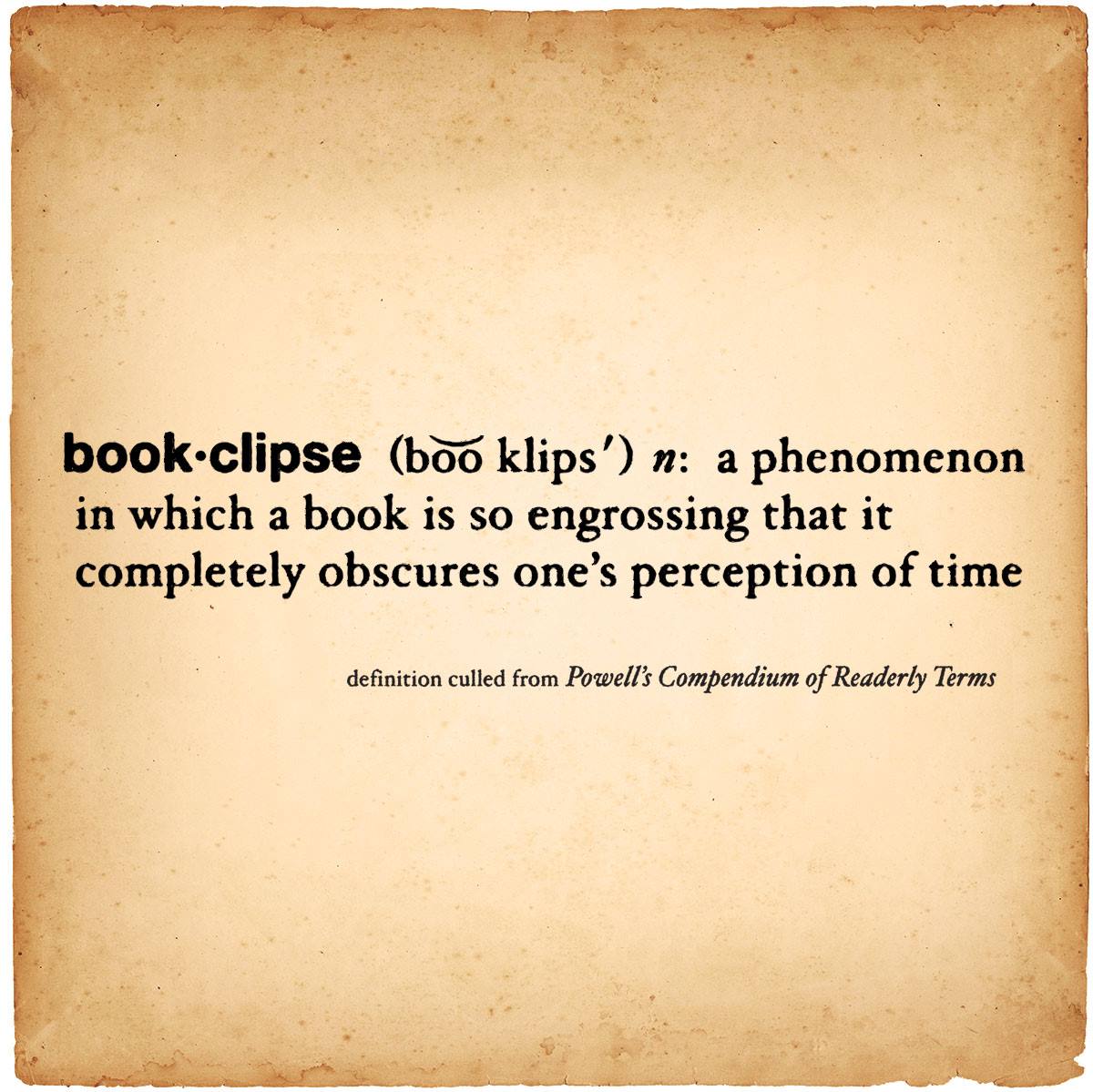
August 21 at 3:29pm
Do you relate? What book/books has/have caused a bookclipse in your life? Did you safely view the eclipse today?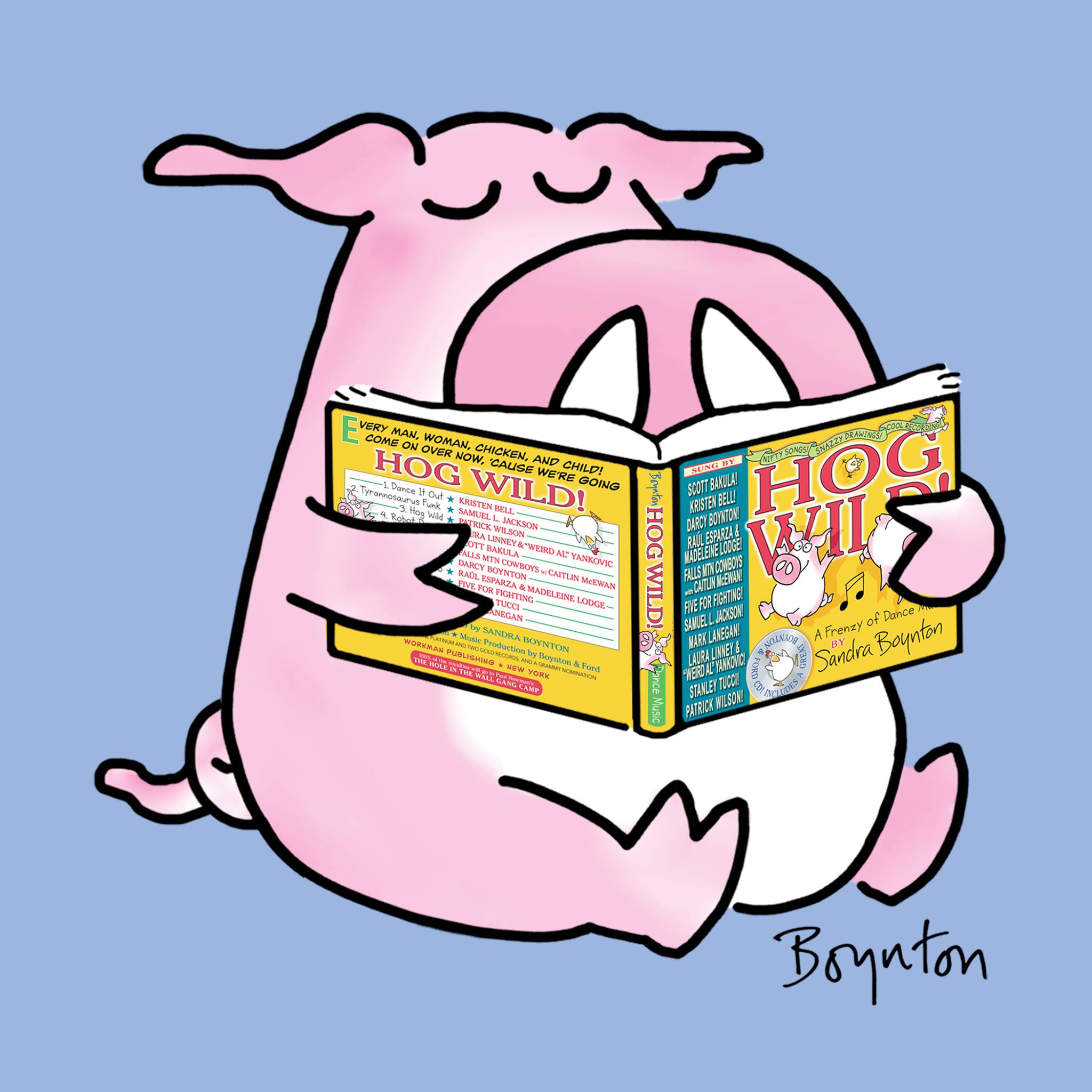
August 9 at 10:19am
Isn’t every day Book Lovers Day? From one book lover to another, I hope your day’s reading replenishes you!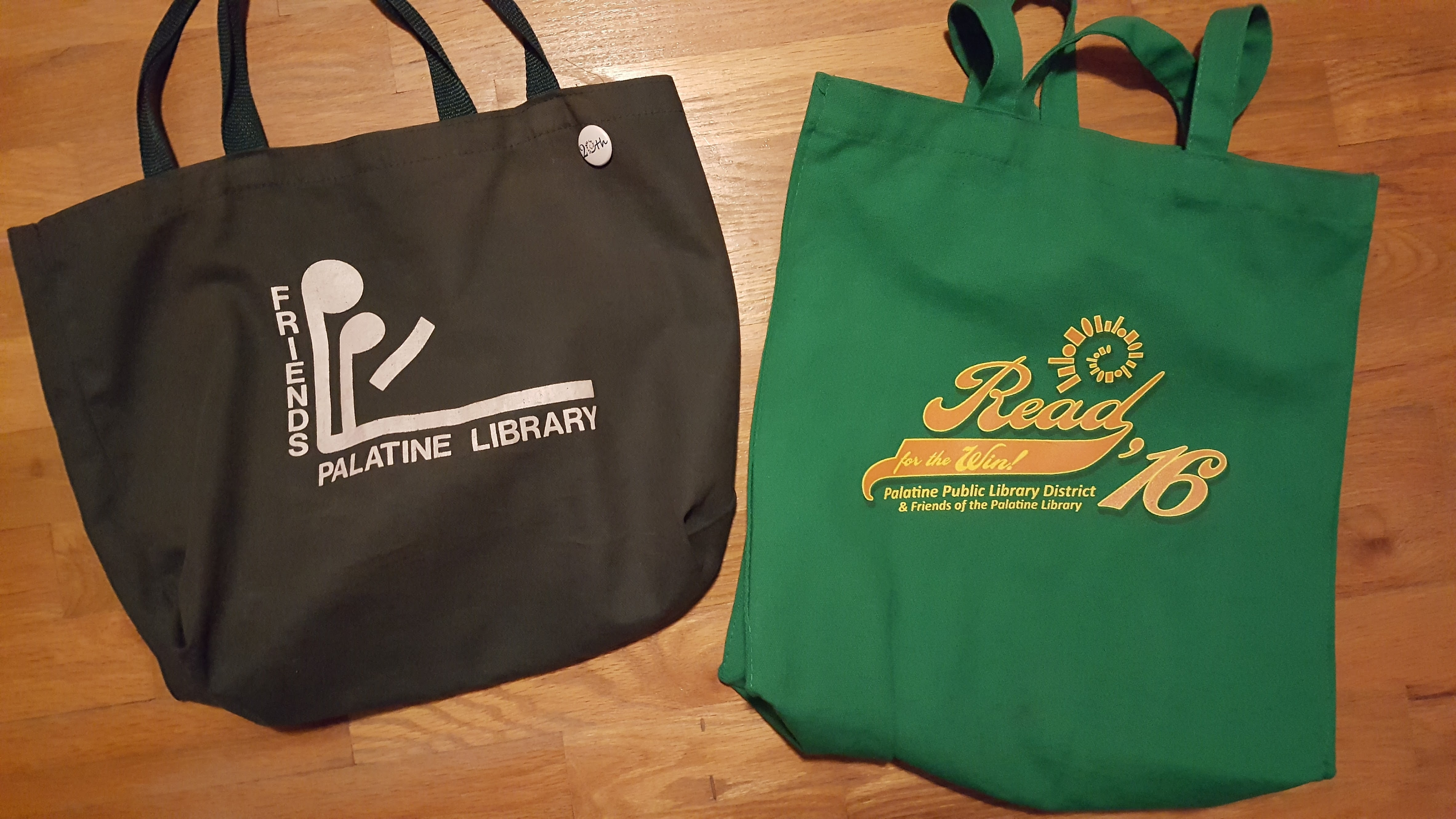
August 5 at 8:12pm
Tom has been ribbing me lately because of the state of my beloved Friends of PPLD tote bag (left)—the one I use every time I visit the library. I won it I-don’t-know-how-many years ago, during a winter family reading program. It’s a little holey, at least one seam is starting to rip, and it’s not the same hunter green as when it was new. In other words, it has served me well! So, today, I started using my summer reading tote from last year. I have to admit, it’s going to take a while to get used to it. 😉July 31 at 7:20pm
One of my current loans from our library is the subject of this recent Washington Post piece. Both the article and the book may be of special interest to those of you who are, like I, “of a certain age.” Even if you aren't, you may be interested in how cataloging of collections developed—and, how the card catalog's structure relates to the Internet.
July 25 at 3:25pm
Palatine Public Library’s Vending Café has been updated and improved. Get refueled while you work, study, or visit.July 18 at 7:29pm
Palatine Public Library has you covered in all five of these library power-user areas! Here’s just a sample:- summer reading, classes (art, cooking, and more), lectures/performances (film, author visits, music)
- museum passes (and local discounts in September for National Library Card Sign-up Month)
- borrow how-to books for repairs, hobbies, cooking, and travel
- our "library of things" includes Go-Pro cameras for loan
- borrow a Roku or e-reader for streaming, or use one of two PS4 units in the library

July 1 at 10:30am
We’re assembling and ready to rock! Don’t the teen volunteers and the new van from Friends of the Library look fantastic?
June 30 at 9:10am
I’ll be among the trustees in the PPLD parade contingent. Make some noise when we get to you on the route! Most of all, have a safe and fun holiday weekend.
June 15 at 10:04pm
Last night, the five newly elected (and re-elected, in Trustee Jefferson’s case) trustees were installed and conducted our first meeting. Thank you, again, for electing me to serve you. Please visit me here often, email me with your questions, and invite your friends and neighbors to do the same.The summer reading program is underway. The attached article has some ideas for making the most of summer reading. The Friends of the Library are having their summer book sale this weekend. Friday 6/16, 6-9 pm, admittance is $5/person, free for Friends members (you may join at the door). Saturday 9:30-3:00 and Sunday 12:30-3:00 are free admittance.
6 Summer Reading Challenges to Hook Kids on Books over the Break
Motivate your family to hit the books this summer with some friendly competition, and take on one of these reading challenges for kids.












June 1 at 10:14am
It’s Summer Reading sign-up day—one of my favorite days of the year (no kidding)!Sign up in-person at any branch, or online.
What counts as reading? Anything! Books, newspapers, magazines, audiobooks, ebooks, non-fiction, work reports, online articles, and more all count toward the program.
In answer to librarian Kiel’s question on Tuesday, I wrote this: “Kiel: That 2011 dragon is pretty fantastic! My first year participating was 1997. I’ll always be a little sad, I think, that I didn’t participate in 1996 (when I was exhausted with a brand-new baby). Our only household member to have that Olympic T-shirt is Number One Son, who was a preschooler at the time. Other favorite designs: 1999 stained-glass castle, 2001 Egyptian theme, 2008 read . . . naturally, and 2009 read on the wild side. I can hardly wait for Thursday . . . or this year’s T-shirt!”
Please comment on my Facebook post with *your* favorite Summer Reading designs. Inquiring minds want to know!

May 29 at 7:43pm
According to the ALA, “The average student loses a month’s worth of learning over the summer. Libraries offer summer learning opportunities that stop the summer slide.” Be sure to visit Palatine Public Library throughout the summer, for the summer reading program and special STEAM-themed programming.May 18 at 12:41pm
T minus 2 weeks until summer reading sign-up starts at Palatine Public Library. It’s the kickoff event of the summer (IMHO)! Who’s with me?
May 15 at 12:00pm
Jackpot in my mailbox today! What programs look good to you? Let me know—maybe I’ll join you.
May 14 at 7:52am
Are you Team Digital or Team Print? [No judgment. We’ve got you covered, either way!]How real books have trumped ebooks
The digital revolution was expected to kill traditional publishing. But print books are ever more beautifully designed and lovingly cherished.

May 12 at 2:00pm
Got my Friday afternoon Zen on. [mandala stone painting program at PPLD]


May 9 at 3:28pm
Carla Hayden—the first woman and first African-American librarian of Congress—threw out the first pitch at yesterday’s game between the Baltimore Orioles (her hometown team) and the Washington Nationals.
May 8 at 4:53pm
Tom and I attended this informative and delicious demonstration yesterday. We’re looking forward to increasing the number of Indian recipes in our repertoire. Thanks Anupy!Connect with Indian as Apple Pie on Facebook or their website.

April 30 at 8:08pm
It’s been a couple weeks since I’ve attended to the cat/library combo fans out there. This seems like a truly cat-like request to me.


April 23 at 8:22pm
Thank you to Ensemble of Ragas with Saraswathi Ranganathan at Cutting Hall for entertaining us beautifully tonight, and to Palatine Public Library, The Friends of Palatine Public Library, and Palatine Park District for making it possible. This was a delightful way to finish the weekend. See/hear a short excerpt here.
April 23 at 1:53pm
Books, check! Music, check! Movies, check! Newspapers, check! Programs, check! Knowledgeable librarians, check! Palatine Public Library has so many of our education and entertainment needs covered!
April 21 at 10:04am
Get hungry! This coming Wednesday, please eat at Photo’s in Palatine and mention the Palatine Public Library District Foundation. Your lunch and/or dinner will help support the library.
April 19 at 2:50pm
The library is an arena for lifelong learning!April 13 at 9:09am
Why am I sharing a cat video?I posted this last night, to Dear Husband’s attention. We are unlikely, ever, to have a cat—we’re both terribly allergic. But I love cats, and we both love hockey.
I promised a new PPLD acquaintance I’d keep my eyes open for cat/library combo images. [She beat me to the punch last week, with a more direct item. I’ll keep working on it.]
The video made me wonder if PPLD has any cat training books in its collection. A search of the catalog reveals at least 4 such books, 3 of which are currently checked out. I’d be interested to hear how the patron’s (or patrons’; but, I suspect it’s just one patron, based on the due dates) training is going. I’ve never considered cats to be good candidates for compliant behavior.
Voila—cats and libraries mix! Thanks to Jeannie for the inspiration, and to our Palatine Library for having our cat training needs covered.
Today is the first-ever Take Action for Libraries Day, part of #NationalLibraryWeek. Learn more, and take action, here.
[As difficult as it is for some of us, please ignore the video title’s grammatical error for the sake of viewing enjoyment.]

April 11 at 2:57pm
Happy National Library Workers Day to the Palatine Public Library staff and library workers everywhere!
April 4 at 10:17pm
I am happy to report that I am one of the new Palatine Library Trustees! I am very much looking forward to joining the continuing (Hal Snyder and Tracy Boland), reelected (Andrea Vanderhoek and Bruce Jefferson), and other new trustees (Jeffrey Westhoff and Valerie Sherman) in doing good work for the library and the community.I am thankful to all of you who have joined me on this journey: family, friends old and new (and their friends, too), and neighbors throughout the district. I had lots of physical help: people collecting signatures, passing out bookmarks, and hosting events. I also had lots of emotional support: encouragement and brainstorming sessions. Thanks for being enthusiastic with me!
Now, the real work (and FUN) begins! Please continue to join me here on the page and in the community. I’m looking forward to serving you!

April 4 at 5:50am
It’s election day, folks! You know what to do.
April 3 at 12:03pm
We’re coming down the homestretch to election day! This morning, I played a little while eating breakfast. Pictured is my message for today.Early voting concludes today (until 5 pm or 7 pm, depending on location).
Tomorrow, vote at your regular polling place from 6 am until 7 pm (find it by entering your voter information here).
If you haven’t "met" me yet, read my Daily Herald candidate profile here and my Cook County Clerk candidate statement here.
I would be honored to have your vote, and to serve our library as trustee. Thank you for taking an active role in your community!

April 1 at 8:44pm
This is one of the community benefits of having a strong public library that I mentioned in my candidates forum opening statement.How public libraries help build healthy communities
March 30 at 7:59am
Good morning, neighbors! I was glad to start my Thursday sharing bookmarks and conversation with some of you at the Palatine Metra station, including a gentleman who told me that the library’s online reference resources were invaluable to him during his job search.Early voting (and registration) continues today through Monday (except Sunday) at any suburban Cook County early voting location. Find one right for you here.
Tuesday, April 4, is Election Day. Find your regular polling place and hours here.
I’m first on the ballot for library trustee. I’d love your vote and the opportunity to serve you.
This is definitely a "bring your own sunshine" kind of day. Let’s do this!
March 29 at 12:50pm
We’re lucky to have a fantastic public library anchoring our community. As you’ll see in this short video, some areas aren’t so lucky—they have no library at all. [That’s not exclusive to Columbia. It’s the case in the US, as well.]Please vote for me April 4 (or sooner) to be one of your library trustees. I’m first on the ballot. As library trustee, I will contribute creative problem-solving and sound resource management, and balance fiscal responsibility with the needs of the community, so our library can continue its strong performance and adapt to the community’s needs as they change.

March 27 at 5:07pm
I can’t say that I remember ever being bored. That is, I always have a long list of fun and/or interesting things I want to do or learn or read. In any event, if someone you know *does* claim boredom this week, the Palatine Public Library will fix that for them (and you). Have a great spring break!See the event schedule here.

March 25 at 4:38pm
I voted today! No lines, just in and out. Afterward, we went to the library (where else?), not only to return and borrow, but to read the Wall Street Journal front page article that one of last week’s forum attendees brought to my attention. I had mentioned that some libraries have nontraditional collections (including useful items like sewing machines, baking pans, and bicycles). Good timing!Here’s the article link, for the WSJ subscribers among you.

March 23 at 1:05pm
This is one of the articles to which I referred during the LoWV candidates forum. It’s important for the library to have a range of media formats, to facilitate both abilities and preferences.Children prefer to read books on paper rather than screens

March 22 at 3:14pm
Early voting is underway! I’ve heard from friends that it’s been a breeze. Click here to check your voter registration status and see a sample ballot (including candidate statements for those who chose to submit).Then, click "Early Voting" in the left-side menu for information about registering and voting, along with locations. You may register and/or vote at any of the early voting locations.
Please vote #DebbyForPPLD, first on the ballot for Palatine Library Trustee (Ballot #151). Thank you for your support!
March 22 at 2:38pm
Didn’t have a chance to attend the League of Women Voters candidate forum on Saturday, but are interested in hearing from the candidates? Check out the event video (<45 minutes).If you have any questions or thoughts, please contact me via e-mail or Facebook message (click Connect in my site menu). I’m happy to connect with you!
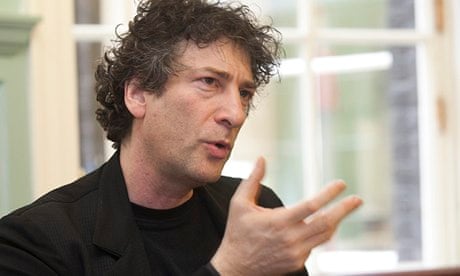
March 20 at 9:24pm
I’ve been a fan of Neil Gaiman’s fiction for years. Last May, when he published The View from the Cheap Seats: Selected Nonfiction, I devoured it. The first essay in the book (below) is a fantastic discussion of the value of books, reading for pleasure, libraries, and imagination. Enjoy!Neil Gaiman: Why our future depends on libraries, reading and daydreaming
A lecture explaining why using our imaginations, and providing for others to use theirs, is an obligation for all citizens
March 16 at 10:30am
Is this what happens at PPLD after hours? I’m on a mission to find out! Please vote for me April 4.
March 14 at 1:57pm
Happy Pi Day, PPLD residents! The Toronto Public Library says, "On Pi Day 3/14, take the opportunity to choose books about math to read with your kids. Here's 5 to get you started."PPLD has three of these in its collection. While it doesn't have "Teddy Bear Patterns," it does have "Teddy Bear Counting" and "Teddy Bear Subtraction." I’m looking forward to reading "Sir Cumference and the Dragon of Pi." "Math Curse" was in our home library when the boys were younger.

March 13 at 11:48am
Avoid this problem in your home by utilizing your public library. You get many more choices for much less money, and *you* don’t have to dust the books! ;-)
March 8 at 2:18pm
My happiness today *will* include a visit to my local library to return a DVD and attend the Palatine Public Library board of trustees meeting. Please vote for me on (or before) April 4, so I can have the pleasure of serving you from the other side of the trustee table.
March 2 at 9:06pm
Bookmarks are here! Get yours (and maybe a few to share with friends and neighbors) by emailing me. We deliver!
February 28 at 5:14pm
The library as travel aid: 1. Borrow books in advance of a trip, to help in planning. 2. I like to borrow related books when I get back from a trip, so I can learn more about the places and things that especially piqued my interest (which is why I make a trip wish list while we’re away). These books are souvenirs from our recent road trip. I’m especially excited about The Soul of Baseball.
February 27 at 11:12am
We’ve returned from a terrific road trip, during which I was *not* deprived of library use. We stopped in the Kansas City, Kansas main library near closing time, when there were still patrons flowing in and out. I picked up a copy of the KCKPL newsletter, showing a schedule chock-full of art exhibits and programs for all ages: salsa lessons, jazz performances, speakers & forums (including an appearance by internationally known teacher/lecturer Jane Elliot, presenting "The Anatomy of Prejudice"), book clubs galore, college & career workshops, writer’s group, arts & crafts, movies, language learning, tech classes, storytimes, and more—much like our wonderful library! In addition to this local library, we visited three presidential libraries—Clinton, Truman, and Lincoln—and we perused (and purchased from) the Central Arkansas Library System’s River Market Books & Gift store in Little Rock. I was happy to see vibrant libraries in other states, *and* I’m ever-so-happy to be back home to our PPLD, which we visited yesterday (our first day home).About
I got my first library card at age 4, at the Blackstone Branch of the Chicago Public Library, and have been a regular user of public and university libraries ever since. I am a trustee of the Palatine [Illinois] Public Library District in my second term, currently serving as board president.
I read books for all age groups, from all time periods, and from practically all genres, though my all-time favorite genre is mystery. I love to talk about books with others, so please join me in conversation about a book we both read or tell me about a book you think I'd like.
I'm never not reading.


